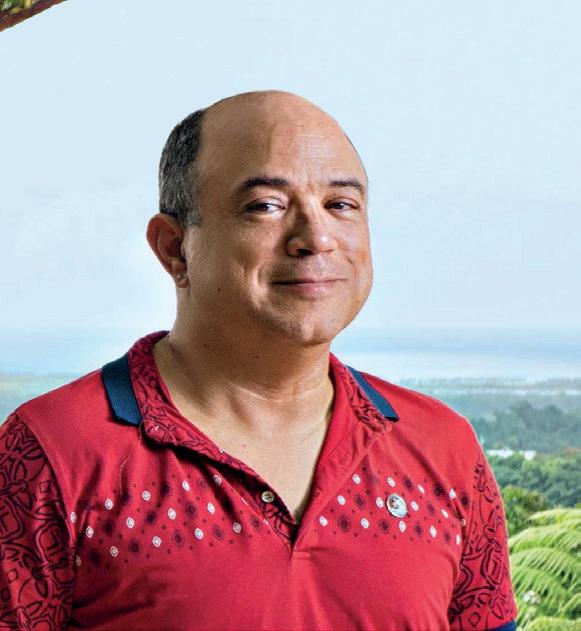
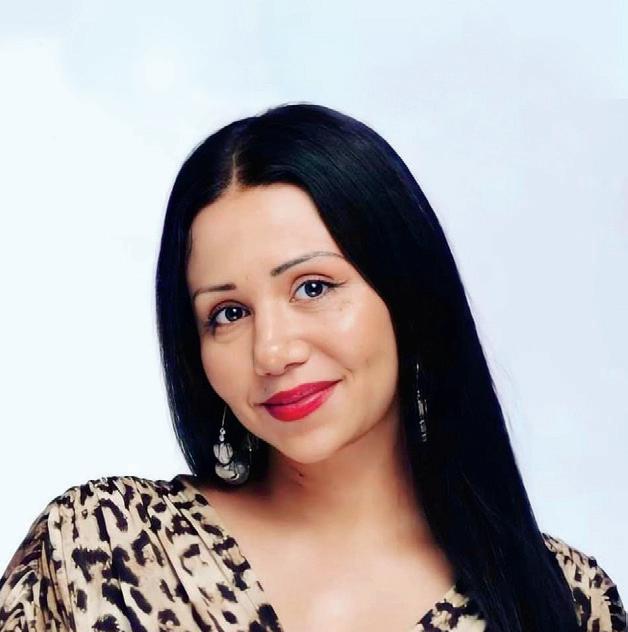

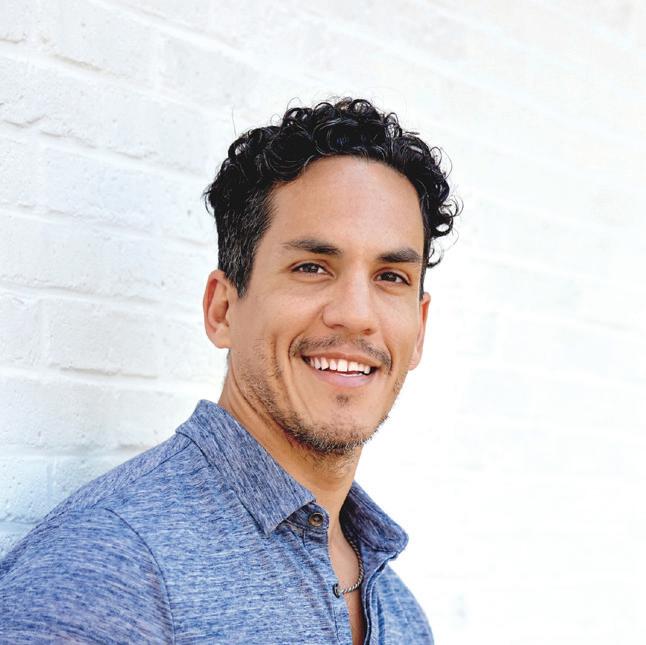
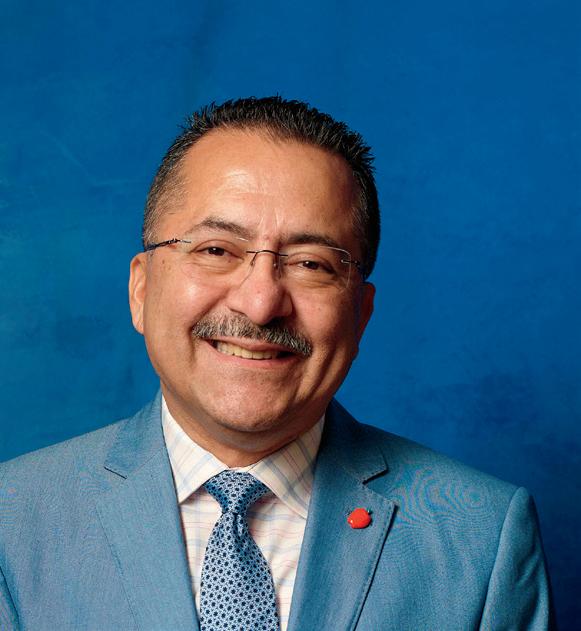
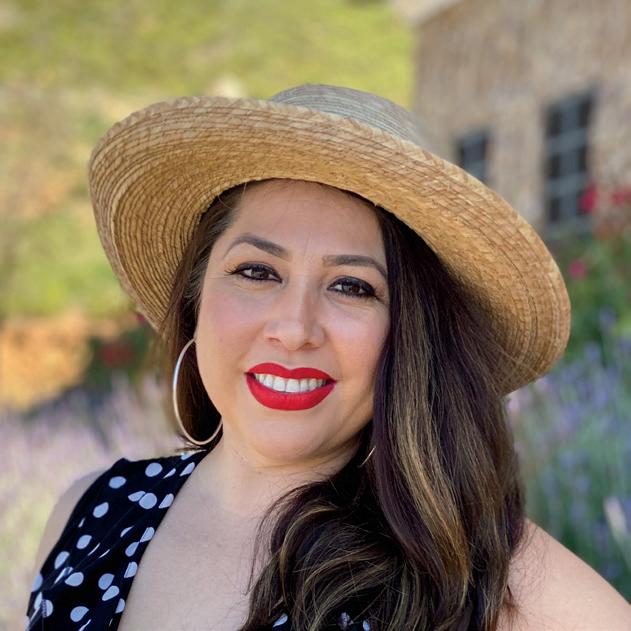
A SMART+STRONG PUBLICATION DECEMBER 2022 POZ.COM $3.99 HEALTH,
HIV Celebrating Latino Advocates
LIFE &
LIFE & HIV





A SMART+STRONG PUBLICATION DECEMBER 2022 POZ.COM $3.99
Celebrating Latino Advocates
HEALTH,
Left page, clockwise from top left: Anselmo Fonseca, Maria Louise RomanTaylorson, Francisco Ruiz, Guillermo Chacón and Maria Mejia; right page, clockwise from top: Charles Sanchez, Julio Fonseca, Lillibeth Gonzalez, Natalie Sanchez and Ben Cuevas

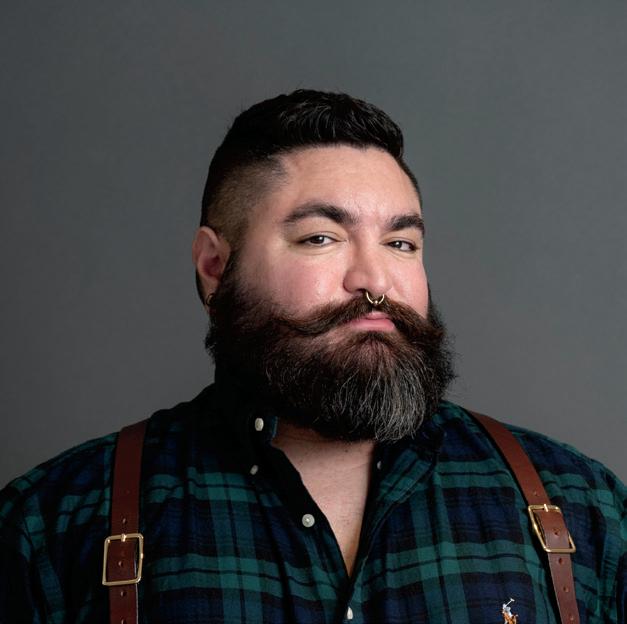
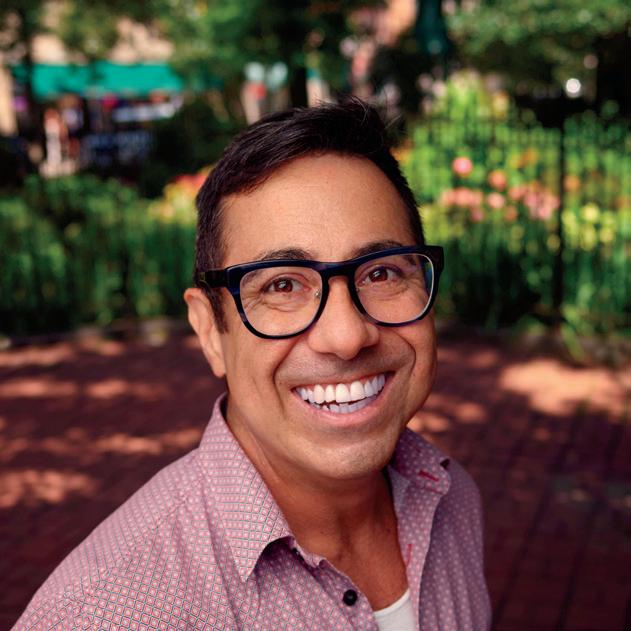
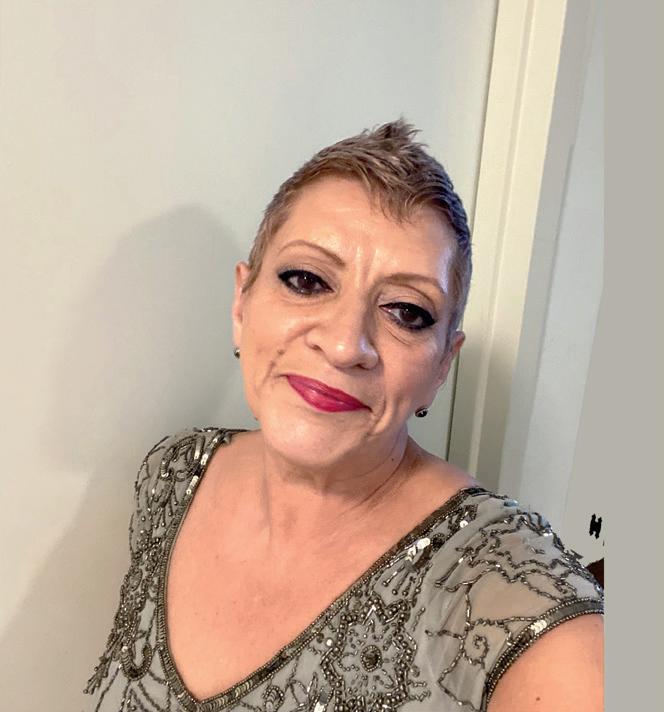


A HEALTHIER LIFE CAN START WITH HIV TREATMENT.
A HEALTHIER LIFE CAN START WITH HIV TREATMENT.
It’s important to start HIV treatment as soon as possible and stick with it. When you do, it helps stop the damage HIV causes. Plus, doctors and scientists have found that it can help reduce the risk of some infections, certain cancers, and even AIDS.
It’s important to start HIV treatment as soon as possible and stick with it. When you do, it helps stop the damage HIV causes. Plus, doctors and scientists have found that it can help reduce the risk of some infections, certain cancers, and even AIDS.
TREATMENT HELPS PREVENT
THE SPREAD OF HIV.
TREATMENT HELPS PREVENT THE SPREAD OF HIV.

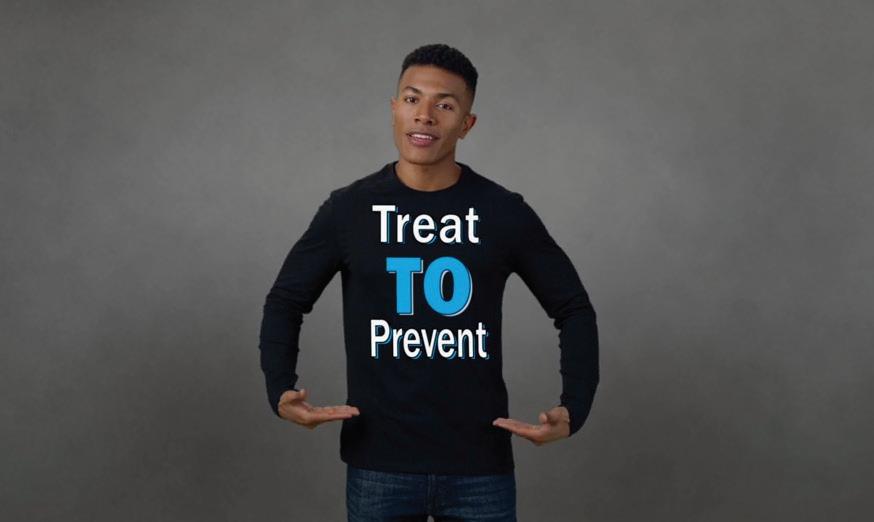

If you’re living with HIV, a major goal is to get your viral load to undetectable. This means that there is so little virus in the blood that a test can’t measure it. How can you get to and stay undetectable? By taking HIV treatment every day. Current research shows that getting to and staying undetectable prevents the spread of HIV to others through sex.
If you’re living with HIV, a major goal is to get your viral load to undetectable. This means that there is so little virus in the blood that a test can’t measure it. How can you get to and stay undetectable? By taking HIV treatment every day. Current research shows that getting to and staying undetectable prevents the spread of HIV to others through sex.
TALK TO YOUR HEALTHCARE PROVIDER.
TALK TO YOUR HEALTHCARE PROVIDER.
Have an open conversation. There’s no cure for HIV, but when you work together it helps your healthcare provider find the treatment that’s right for you.
Have an open conversation. There’s no cure for HIV, but when you work together it helps your healthcare provider find the treatment that’s right for you.
Treatment
Treatment
Learn about Treatment see how staying and the people YouTube.com/
Learn about Treatment see how staying and the people YouTube.com/
WITH
STOPPING THE CAN START
STOPPING THE CAN START WITH
Watch videos, share information, see how we can all help
Watch videos, share see how we can all help
HelpStopTheVirus.com YouTube.com/HelpStopTheVirus
HelpStopTheVirus.com YouTube.com/HelpStopTheVirus
GILEAD and the GILEAD Logo are trademarks the property of their respective owners.
UNBC7277 08/20
WATCH “ HIV
“
WATCH
HIV
UNBC7277 08/20
GILEAD and the GILEAD Logo are trademarks the property of their respective owners.
HIV: It’s Called Treatment as Prevention“
HIV: It’s Called Treatment as Prevention“
Treatment as Prevention (TasP) and staying on treatment can help protect you people you care about.
Treatment as Prevention (TasP) and staying on treatment can help protect you people you care about.
YouTube.com/ HelpStopTheVirus
YouTube.com/ HelpStopTheVirus
THE VIRUS
WITH YOU. information, and help stop the virus.
THE VIRUS WITH YOU. information, and help stop the virus.
HelpStopTheVirus.com YouTube.com/HelpStopTheVirus
HelpStopTheVirus.com YouTube.com/HelpStopTheVirus
trademarks of Gilead Sciences, Inc. All other marks are owners. © 2020 Gilead Sciences, Inc. All rights reserved.
trademarks of Gilead Sciences, Inc. All other marks are owners. © 2020 Gilead Sciences, Inc. All rights reserved.
START
START HELP PROTECT YOUR HEALTH.
HIV TREATMENT.
HIV TREATMENT.
HELP PROTECT YOUR HEALTH.
There is no cure for HIV, but find out how treatment helps make it possible to live a healthier life.
There is no cure for HIV, but find out how treatment helps make it possible to live a healthier life.
SEE
INSIDE
SEE
INSIDE
EXCLUSIVELY ON POZ.COM
POZ BLOGS
Our roster of bloggers spans the diversity of the HIV community. Go to poz.com/blogs to read varying points of view from people living with the virus as well as from HIV-negative advocates. Join the conversation in the comments section. Visit the blogs to find hope and inspiration from others.
D
POZ OPINIONS
Advocates, researchers, politicians, thought leaders and folks just like you all have ideas worth sharing. Go to poz.com/ opinions to read about topics such as living with HIV, improving care and treatment, increasing prevention efforts and fighting for social justice.



#UNDETECTABLE
The science is clear: People who have an undetectable viral load don’t transmit HIV sexually. In addition to keeping people healthy, effective HIV treatment also means HIV prevention. Go to poz.com/undetectable for more.
POZ DIGITAL
Scan the QR code (left) with your smartphone camera or go to poz.com/digital to view the current issue and read past issues online.
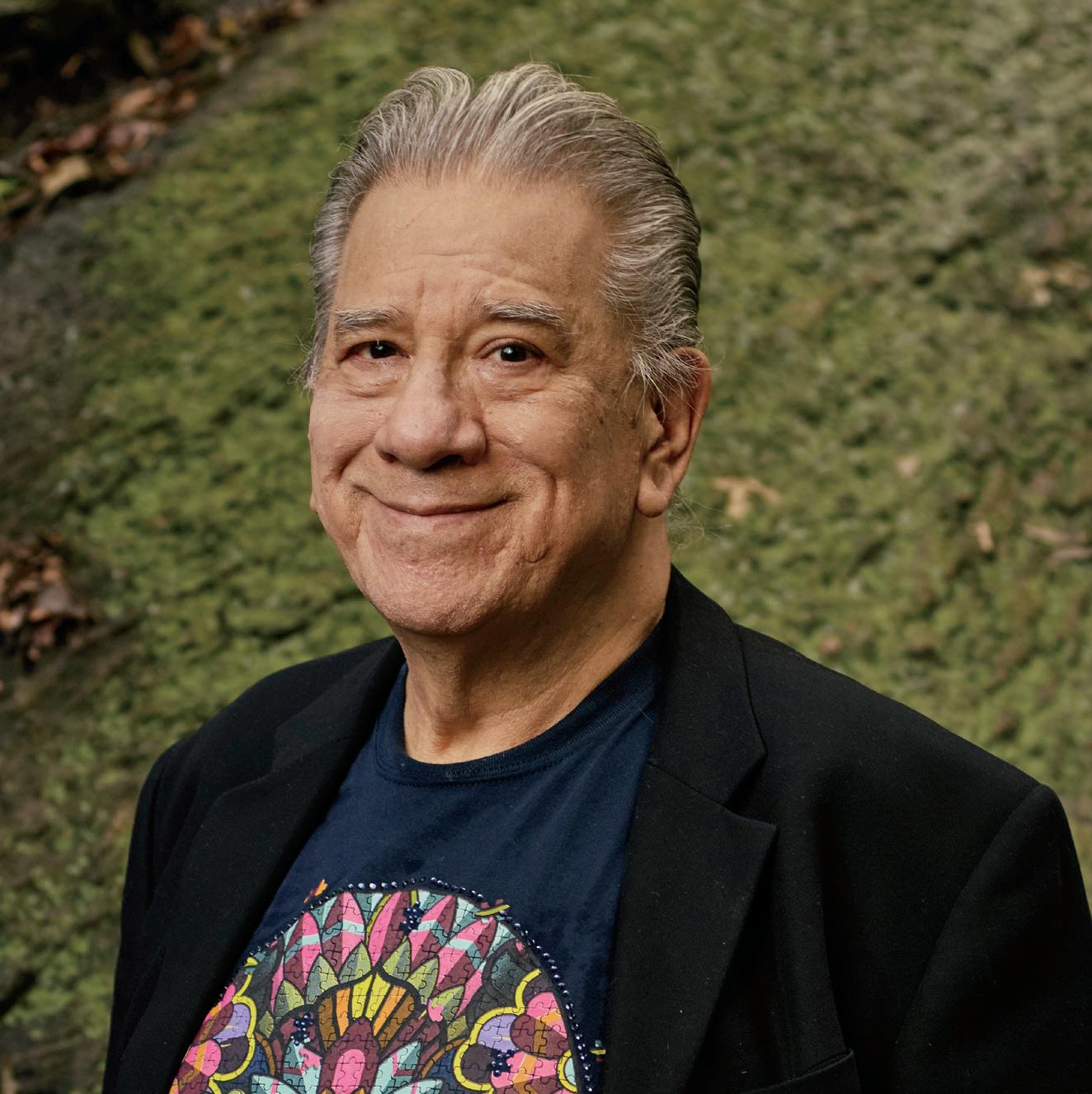

26 THE POZ 100: CELEBRATING LATINO ADVOCATES
This year’s list highlights individuals—both HIV positive and HIV negative—who are addressing the social and structural barriers facing Latinos in an effort to achieve health equity.
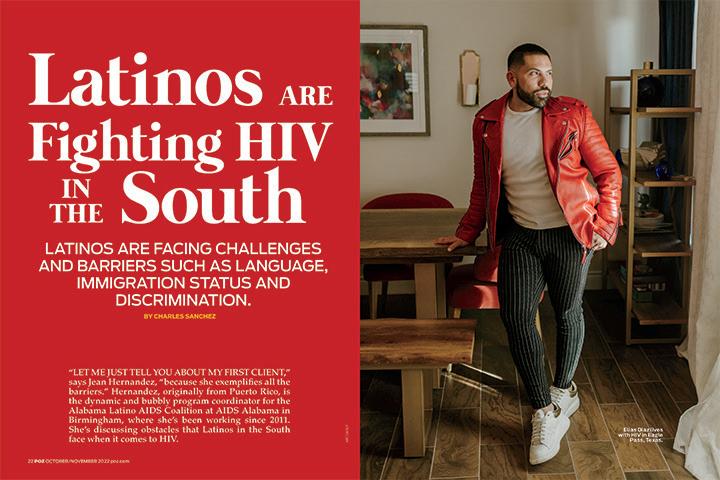
POZ Q & A
POZ PLANET
Elton John gets medal for his HIV advocacy
• Sheryl Lee Ralph wins an Emmy Award • a new program aims to deliver 1 million free rapid HIV tests • allowing people with HIV to enlist • helping community health centers end HIV • POZ Stories: Rene Cotto-Lewis
• Everyday: milestones in the HIV epidemic
galas 14 VOICES
NMAC shares why USCHA proceeded, and the National AIDS Memorial details the next film in its oral history project.
RESEARCH NOTES
woman with HIV maintains undetectable viral load 15 years after stopping treatment
heart attack risk
CONTENTS POZ (ISSN 1075-5705) is published monthly except for the January/February, April/May, July/August and October/November issues ($19.97 for an 8-issue subscription) by Smart + Strong, 157 Columbus Avenue, Suite 525, New York, NY 10023. Periodicals postage paid at New York, NY, and additional mailing offices. Issue No. 264 POSTMASTER: Send address changes to POZ/Smart + Strong, 157 Columbus Avenue, Suite 525, New York, NY 10023. Copyright © 2022 CDM Publishing, LLC. All rights reserved. No part of this publication may be reproduced, stored in any retrieval system or transmitted, in any form by any means, electronic, mechanical, photocopying, recording or otherwise without the written permission of the publisher. Smart + Strong® and POZ® are registered trademarks of CDM Publishing, LLC. 18 NUTRITION & FITNESS Guacamole • how do I start to exercise? 20 BASICS HIV drug resistance 22 CARE
Long
HIV •
•
•
24
•
•
48 HEROES Gonzalo
3 FROM
EDITOR Family Affair 4
A
& TREATMENT
COVID and people with
treating substance use improves HIV care
monkeypox declines, but disparities persist
progress on long-acting HIV treatment
Prenatal PrEP • a new formulation may allow self-administration of a long-acting injectable
Aburto, the founding editor of POZ en Español, is now the director of the Latin America Initiative at the Sero Project.
THE
new film about the late AIDS activist Pedro Zamora, who starred in TheRealWorld 6
12 SPOTLIGHT The return of in-person HIV
Gonzalo Aburto is the founding editor of POZ en Español.
COVER: (FONSECA) ANGEL VALENTÍN; (ROMAN-TAYLORSON) JONATHAN TIMMES; (RUIZ) KEN RICHARDSON; (CHACÓN AND SANCHEZ) BILL WADMAN; (CUEVAS) SEAN BLACK; (ALL OTHERS) COURTESY OF SUBJECTS THIS PAGE:(ABURTO) BILL WADMAN; (MEGAPHONE AND SPEECH BUBBLES) THINKSTOCK; (MAGNIFIER) ISTOCK
EDITOR-IN-CHIEF ORIOL R. GUTIERREZ JR.
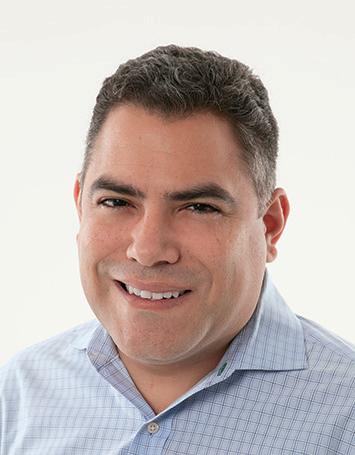
MANAGING EDITOR
JENNIFER MORTON
DEPUTY EDITOR TRENT STRAUBE
SCIENCE EDITOR LIZ HIGHLEYMAN
COPY CHIEF JOE MEJÍA
EDITORIAL ASSISTANT LAURA SCHMIDT
ART DIRECTOR DORIOT KIM
ART PRODUCTION MANAGER MICHAEL HALLIDAY


CONTRIBUTING WRITERS
SHAWN DECKER, OLIVIA G. FORD, ALICIA GREEN, MARK S. KING, TIM MURPHY, CHARLES SANCHEZ
CONTRIBUTING ARTISTS
JOAN LOBIS BROWN, LIZ DEFRAIN, ARI MICHELSON, JONATHAN TIMMES, BILL WADMAN
FOUNDER SEAN STRUB LEGACY ADVISER MEGAN STRUB
ADVISORY BOARD



A. CORNELIUS BAKER, GUILLERMO CHACÓN, SABINA HIRSHFIELD, PHD, KATHIE HIERS, TIM HORN, PAUL KAWATA, NAINA KHANNA, DANIEL TIETZ, MITCHELL WARREN PRESS REQUESTS NEWS@POZ.COM
SUBSCRIPTIONS HTTP://ORDER.POZ.COM UNITED STATES: 212-242-2163 SUBSCRIPTION@POZ.COM
FEEDBACK EMAIL WEBSITE@POZ.COM OR EDITOR-IN-CHIEF@POZ.COM
SMART + STRONG
PRESIDENT AND COO IAN E. ANDERSON
EDITORIAL DIRECTOR ORIOL R. GUTIERREZ JR. CHIEF TECHNOLOGY OFFICER CHRISTIAN EVANS
VICE PRESIDENT, INTEGRATED SALES DIANE ANDERSON
INTEGRATED ADVERTISING MANAGER JONATHAN GASKELL
INTEGRATED ADVERTISING COORDINATOR SARAH PURSELL
SALES OFFICE 212-938-2051; SALES@POZ.COM


CDM PUBLISHING, LLC
CEO JEREMY GRAYZEL
CONTROLLER JOEL KAPLAN
Family Affair
IHAD THE GREAT PRIVILEGE of attending the 2022 United States Conference on HIV/AIDS (USCHA), which took place in San Juan, Puerto Rico, in October. Because of COVID-19, USCHA hadn’t been held in person since 2019. I was happy to reconnect with so many people I hadn’t seen in years.
I was mostly struck by how much it felt like a family reunion. Of course, part of that was seeing folks after a long time being separated. But it was more than that.
I realized that for me, the HIV community has become like an extended family. And there are good reasons for that. I marked three decades this year since I tested HIV positive. This year also marks 10 years since I became editor-in-chief of POZ. It has truly been my honor to serve the HIV community through this magazine.
When I tested HIV positive in 1992, POZ didn’t exist. Back then, reliable information about the virus wasn’t easy to find. So when POZ launched in 1994, I became an avid reader. That perspective continues to guide me every day. I know I’m not alone, since, thankfully, many folks from the early days are still around with the same passion.
Being in Puerto Rico also underscored how much the HIV community—particularly Latinos—still needs both support and affirmation. In that spirit, I am pleased to introduce this special issue of POZ dedicated to celebrating Latino advocates through our annual POZ 100 list.

Latinos make up about 19% of the U.S. population but account for 25% of people living with HIV and 29% of new diagnoses, according to the Centers for Disease Control and Prevention. Latinos have a lower likelihood of receiving care (74%), remaining in care (59%) and achieving viral suppression (65%) compared with people living with HIV overall. Latinos are also less likely to be taking pre-exposure prophylaxis (PrEP) to prevent HIV. There is plenty of work to do to make things better for Latinos.
This year’s POZ 100 honorees—both HIV positive and HIV negative—are addressing the social and structural barriers facing the Latino community in an effort to achieve health equity. Go to page 26 to read more.
One of the first issues I ever saw of POZ, from 1994, had the late Pedro Zamora of MTV’s TheRealWorld:SanFranciscoon the cover. Pedro died that November at age 22, just months after the issue was published and only hours after the last episode of TheReal Worldaired. Despite having lived such a short life, his contributions continue to inspire.
In fact, Pedro is the subject of a new documentary titled KeeptheCamerasRolling:The PedroZamoraWay, which revisits his life and legacy. Leo Rocha is one of the film’s writers. He was born five years after Pedro died. Go to page 4 to read how Pedro’s example resonates with Leo and a new generation of advocates.
Gonzalo Aburto is the founding editor of POZ en Español, which published quarterly from 1997 to 2004 and is currently published annually. Go to page 48 to catch up with him.

ORIOL R. GUTIERREZ JR. EDITOR-IN-CHIEF editor-in-chief@poz.com
Want to read more from Oriol? Follow him on Twitter @oriolgutierrez and check out blogs.poz.com/oriol.
FROM THE EDITOR
poz.com DECEMBER 2022 POZ 3 (ILLUSTRATION) ISTOCK; (GUTIERREZ) JOAN LOBIS BROWN POZ.COM/FACEBOOKPOZ.COM/TWITTER POZ.COM/INSTAGRAM
REVISIT A LATINO AIDS ICON
A new film honors Pedro Zamora, who starred in The Real World and died hours after the final episode aired.


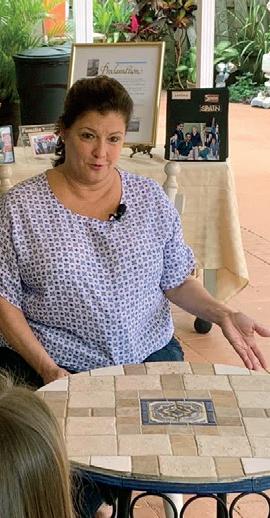
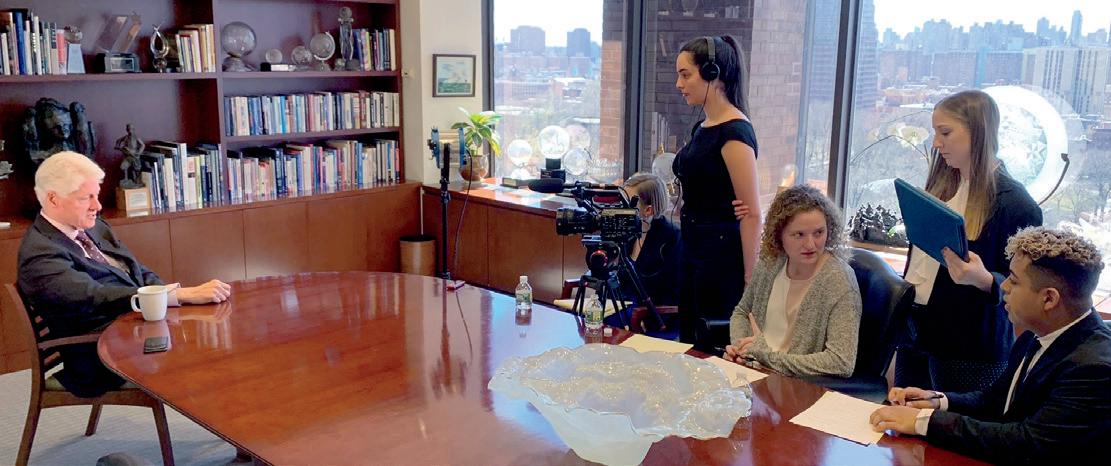

PEDRO ZAMORA WAS A CUBAN-AMERICAN AIDS EDUCATOR IN Miami when he was cast in the third season of MTV’s reality TV show The Real World: San Francisco, which aired in 1994. One of the first openly gay and HIV-positive people depicted on television, Zamora won over viewers with his charisma, smarts and, yes, movie-star looks. “I thought being on the series would be a great way to show how a young person actually deals with HIV and AIDS,” he told POZ in our third issue, dated August/September 1994. He also showed the world that a gay person with HIV could fall in love and get married. In another groundbreaking cultural moment, the series broadcast the (then-illegal) wedding of Zamora and Sean Sasser, a fellow HIV-positive AIDS educator whom Zamora met at an LGBT march in Washington, DC. Alas, Zamora died of AIDSrelated illness just hours after the final episode aired in November. He was 22. Fast-forward to today. Leo Rocha is a 23-year-old gay Colombian American who grew up in Texas and now lives in New York City, where he works for the news site Mic. While earning his journalism degree from the University of Missouri, Rocha was part of a documentary film team that wrote, filmed and edited Keep the Cameras Rolling: The Pedro Zamora Way (Method M Films), which revisits the life and legacy of the iconic figure. The documentary has been playing the film festival circuit, including a virtual screening through the New Fest, New York City’s LGBTQ film festival, and it will hopefully be available to stream soon. POZ spoke with Rocha, who is one
of the film’s nine writers, to learn more about his experiences making the movie. Our interview has been edited for length and clarity.
You were born five years after the 1994 season of The Real World was broadcast. Did you know about Pedro before joining your university’s film project? I had not heard about him before. Since I was like 12 or 13, I’ve been very interested in social justice issues and have been adamant about the importance of representation—queer and Latino—so the fact that I had never heard about him was shocking to me. And the fact, too, that this season of The Real World had the first gay marriage on TV—in 1994! I was shocked that this happened— I don’t want to say “so long ago” but that early on. It made me feel like I was robbed of having this inspirational figure to look up to. There wasn’t much queer or Latino representation when I
4 POZ DECEMBER 2022 poz.com
BY TRENT STRAUBE POZ Q & A
Clockwise from far left: the poster for Keep the Cameras Rolling: The Pedro Zamora Way; the documentary crew interviews former President Bill Clinton about Zamora’s impact; Zamora on the cover of POZ, August/September 1994; Zamora’s sister Mily and Real World roommate Judd Winick interviewed for the documentary
was growing up. We had, like, Glee, which was predominantly white. In terms of Latino representation, there was Ugly Betty and Jane the Virgin. That was pretty much it.
How did you first learn about HIV?
Being that I grew up in Texas, I was not taught about it in school at all. Maybe in seventh-grade health class it was like a bullet point on a PowerPoint slide on sexual health. I didn’t really know much. I first heard about it through the internet, maybe in 2008 or 2009. I was like 8 or 9 and frequenting chat rooms—a time when I should not have been allowed on the internet [Laughs]. That’s how I was first exposed to the topic of HIV.
What was the context?
It was very negative, unfortunately. I didn’t know what it meant. After I googled it, I knew it was a virus, but it wasn’t until I was in high school and a little older and got more educated on social justice issues through Tumblr that I learned the full context and significance of HIV and the horrible impact it has had on the queer community.
When did you come out?
I came out at a very young age to my mom. I was 12. I remember because I wanted her to vote for Obama for his reelection—so it was 2012 or 2011—she was leaning toward voting for Mitt Romney, and I was like, I need to nip this in the bud. My mom was a little taken aback. Like, “Oh you must be confused.” But it never got worse than that. She’s very accepting now and proud of the work I’ve done.
How did you research the film?
We studied the history of HIV in the ’80s and ’90s and the political response to it and the pop culture context. We found episodes of The Real World on some obscure site—someone had taped it on their VCR and uploaded it digitally—but now you can watch them on Paramount+.
What surprised you or affected you the most as you worked on the film?
Obviously, that Pedro even existed and I didn’t know of him. And all that he accomplished, especially the aspect of representation—the importance of a healthy interracial relationship with two people of color. For me, being a person of color, growing up, all I saw was white gay guys and white faces and relationships. You internalize that as a little kid, and I struggled with a lot of self-esteem issues, like “Why do I have this Afro hair?” Maybe if I had learned of Pedro early on and seen him and Sean on TV, hugging and kissing and going on dates, that would have helped me a lot in my journey.
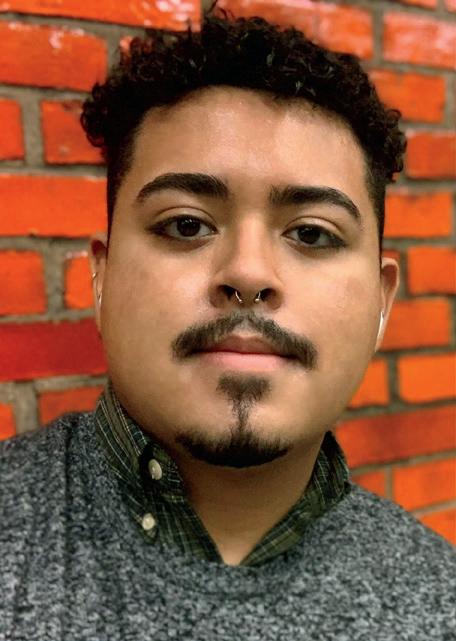
How have audiences responded during the screenings? Fantastic. The intergenerational aspect
Bill Clinton and Anthony Fauci,
national health leader. How was that? I never expected I’d interview a former president. I was 19 at the time. We went to the Clinton Foundation’s Harlem office. It was really cool. It’s funny how in 2018 [when we started the project], weweremostexcitedaboutinterviewing Clinton, but now, amid the COVID-19 pandemic, Fauci is more relevant. It’s interesting to me, because I love learning about history and seeing how one thing leads to another. In this massive COVIDpandemicandnowmonkeypox, we’reseeingalotofconnectingthreads, like seeing Dr. Fauci in the 1980s spearheading the AIDS response and now spearheadingtheCOVIDresponse.You see history repeating. And not just the connection between AIDS and COVID.
Leo Rocha
has come up at every screening, in terms of there being younger people who never knew about Pedro and then some who grew up watching him. And they’d discuss [the importance] of preserving this history and teaching it to another generation.
We’ve also had a lot of people who are either living with HIV or had loved ones die of HIV and who come and watch the movie and have been blown away and are appreciative of what we did. There have been a lot of tears at the screenings.
For the film, you and the team interviewed former Real World castmates, Pedro’s sister and father, President
Butalso[gayrightsandmarriageequality]. There’s the “Don’t Say Gay” law in Florida,andaTexasjudgejustruledthat [a company’s health insurance plan] doesn’t have to cover HIV prevention medication.
And I want to thank the Zamora family. I was the only Latino person and native Spanish speaker on the team,soIwaskindoftheintermediary. They were incredibly welcoming and supportive.Whenwewenttointerview them,hissisterMilyhadthisbigCuban breakfast ready for us and kept feeding us. It was really special to experience that. I made it clear to them how important Pedro’s story was to me and that we’d get it right. ■
MD, the
poz.com DECEMBER 2022 POZ 5
“I had not heard of Pedro Zamora before. It made me feel like I was robbed of having this inspirational figure.”
(POSTER) COURTESY OF METHOD M FILMS; (PRODUCTION STILLS AND ROCHA) COURTESY OF LEO ROCHA
ELTON JOHN GETS MEDAL FOR HIS HIV ADVOCACY
Pop music legend and AIDS advocate Elton John certainly felt the love in September as he performed an intimate concert at the White House.
During the set, President Joe Biden surprised the “Rocket Man” scribe by presenting him with the National Humanities Medal for his work advocating and fundraising for HIV and advancing “the simple truth that everyone deserves to be treated with dignity and respect.”

“I’m never flabbergasted,” John told the crowd on the South Lawn as he was moved to tears. “But I’m flabbergasted and humbled and honored by this incredible award from the United States of America. I will treasure this so much.”

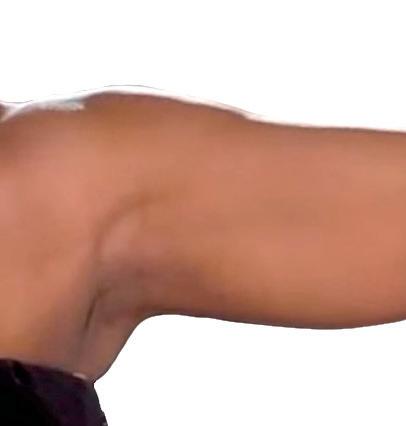




John, a global celebrity since the
1970s, performed a mini-concert of his classic hits—including “Tiny Dancer,” “I’m Still Standing,” “Rocket Man” and “Your Song”— as part of the White House’s “A Night When Hope and History Rhyme,” which honored everyday history makers, including teachers and frontline workers.
A longtime advocate for HIV causes, John has tirelessly raised funds and shone a global spotlight on the epidemic through concerts, speeches and star-studded fundraisers, like his annual Oscars party, which this year brought in $8.6 million. In 1992, he established the Elton John AIDS Foundation, which has raised over $525 million worldwide and supported more than 3,000 projects to date.
John last performed at the White House in 1998 at a state dinner hosted by President Bill Clinton, according to NPR. President Donald Trump invited John to perform at his 2017 inauguration, but the singer-songwriter declined, saying he felt it was inappropriate for him, as someone from Britain, to play at the event.


—Trent Straube
Sheryl Lee Ralph Wins an Emmy Award


The longtime HIV advocate sang during her thank-you speech.


HIV-positive characters and AIDS television dramas might have been absent from the 74th Primetime Emmy Awards, but the HIV community still had reason to cheer: Longtime HIV advocate and first-time Emmy nominee Sheryl Lee Ralph won the Emmy for Outstanding Supporting Actress in a Comedy Series.
The actress, 65, who took home the award for her role as kindergarten teacher Barbara Howard in Abbott Elementary, began her speech by singing—no, belting—lines from the Dianne Reeves song “Endangered Species.”
“I am an endangered species,” Ralph sang, “but I sing no victim’s song. I am a woman, I am an artist, and I know where my voice belongs.”
She then stated, “To anyone who has ever, ever had a dream and thought your dream wasn’t, wouldn’t, couldn’t come true, I am here to tell you that this is what believing looks like. This is what striving looks like. And don’t you ever, ever give up on you.”
Television viewers who have watched Ralph for decades—as matriarch Dee Mitchell in family sitcom Moesha and Felicia Hollingsworth in season 2 of the cancer-themed comedy One Mississippi, for example—may have been surprised that she sang. But not Broadway fans. Ralph originated the role of Deena Jones in the 1983 musical Dreamgirls (Beyoncé played Jones in the movie version), for which she was nominated for a Tony Award
(Ralph lost to costar Jennifer Holliday).
Throughout her career, Ralph has made the time to champion HIV awareness. In a 2007 profile, “Call Me Miss Ralph,” in POZ, she jokingly referred to herself as in the running for “the most fabulous AIDS diva ever to wear a red ribbon.” She told POZ that by the time Dreamgirls closed in 1985, she estimated that one third of the cast and crew had died of AIDS-related illness, including the director, Michael Bennett.
In 1990, she founded The D.I.V.A. (Divinely Inspired Victorious Award) Foundation to fight HIV stigma and raise awareness. And in 2018, Ralph was honored for her AIDS activism with an award at the annual 365 Black Awards presented by McDonald’s.
UPDATES ON HIV & AIDS POZ PLANET
6 POZ DECEMBER 2022 poz.com
(JOHN AND BIDEN) YOUTUBE/C-SPAN; (RALPH) YOUTUBE/TELEVISION ACADEMY; (HIV TEST) ISTOCK;’ (QUILT) COURTESY OF NATIONAL AIDS MEMORIAL
President Biden surprised the iconic rocker during a White House concert.
Elton John (left) with President Joe Biden
Sheryl Lee Ralph has championed HIV awareness throughout her career.
—TS
OUT FOR DELIVERY
AIDS Memorial Quilt Goes South
Testing yourself for HIV—for free and in the privacy of your own home—is about to get a lot easier and more common, thanks to the largest HIV self-testing program in U.S. history. The Together TakeMeHome program aims to deliver 1 million rapid HIV tests across the country starting in early 2023.
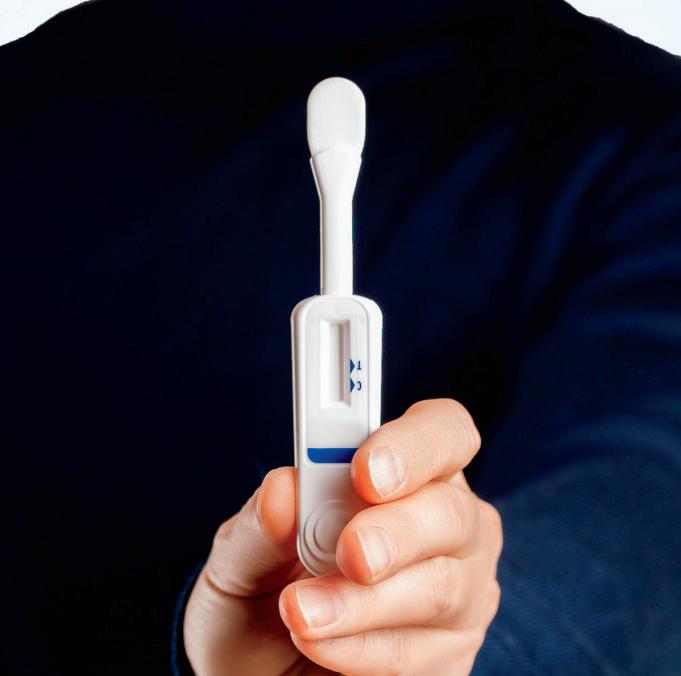
The federal government, via the Centers for Disease Control and Prevention (CDC), has awarded $8.3 million per year to Together TakeMeHome for its five-year project (for a total of $41.5 million), according to a press release from Emory University, which will oversee the program.
One in eight people with HIV are unaware of their status.
Orders placed on the program’s website will be processed by Amazon, which will deliver the tests in discreet packages, according to the press release. OraSure will provide the tests, which will be available in all 50 states, Washington, DC, and Puerto Rico.
Nearly 40% of new HIV cases are transmitted by people unaware of their positive status, according to the CDC, which estimates that about 1.2 million people in the United States are living with HIV, including 158,500 who don’t know they have it.
Put another way, about one in eight people with HIV are unaware of their status, according to HIV.gov. “Knowledge of status is the gateway to engaging in prevention or treatment services that enable individuals, regardless of their status, to live a long and healthy life,” said Harold J. Phillips, MRP, director of the White House Office of National AIDS Policy, on HIV.gov.
In other words, it’s important to know whether you have HIV. If you’re positive, then you can take medication—daily pills or long-acting injections—that stop disease progression and reduce your viral load. People living with HIV that is undetectable not only live longer and healthier lives, they also do not transmit HIV sexually, a fact referred to as Undetectable Equals Untransmittable, or U=U.
“HIV self-testing is a key innovation that supports the national goal to diagnose all people with HIV as early as possible,” said Robyn Neblett Fanfair, MD, MPH, acting director of the CDC’s Division of HIV Prevention, in the press release. “Evidence demonstrates high demand for HIV self-tests— particularly among people who have never previously tested for HIV and populations that are not equitably reached by HIV testing, effective treatment and prevention tools.”
The Change the Pattern initiative kicks off.
Sections of the AIDS Memorial Quilt are touring the Southern United States as part of an initiative to honor Black and brown lives lost to HIV and to raise awareness of racial disparities that continue to fuel the epidemic.
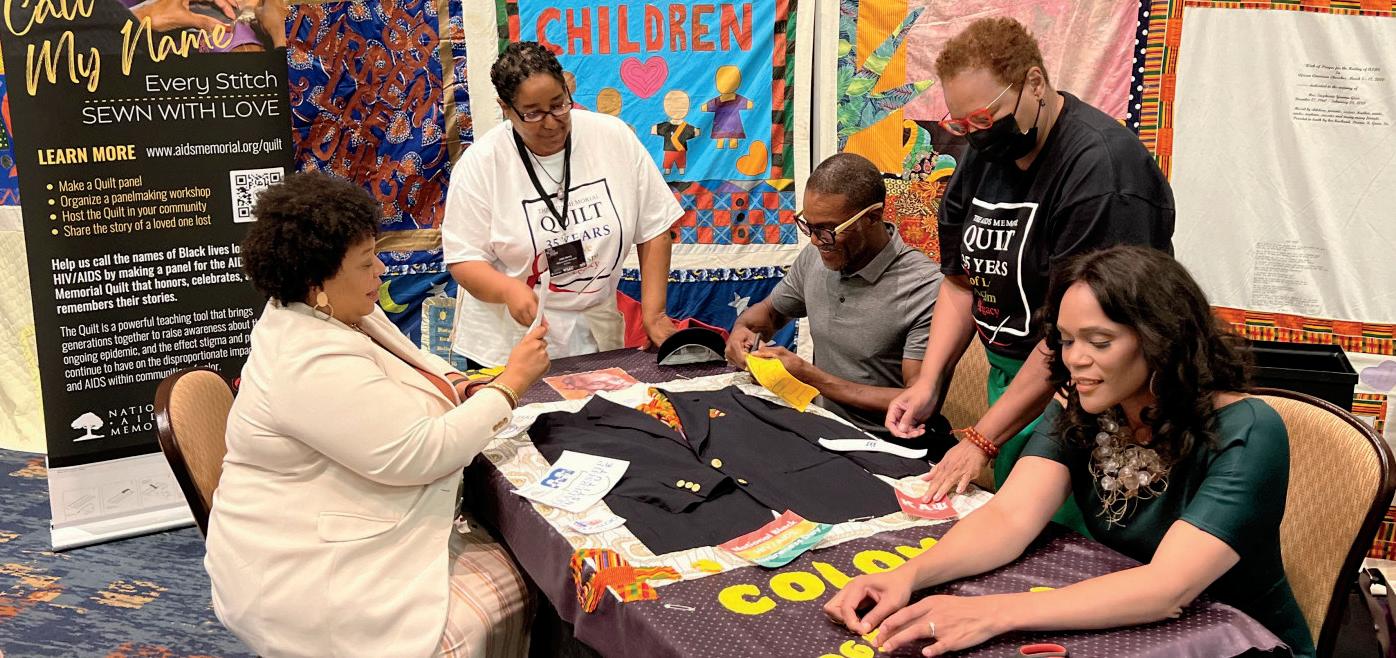
The Change the Pattern initiative launched in Jackson, Mississippi, September 28 to October 4, with Quilt displays, educational forums, storytelling, advocacy, panel-making and other free programs. The Change the Pattern display and events then moved to other Southern locations.
The multicity initiative is funded by a $2.4 million grant from Gilead Sciences, which manufactures many HIV medications, in partnership with the National AIDS Memorial (NAM), which is the custodian of the Quilt, and the Southern AIDS Coalition.
Eligible organizations received up to $5,000 each to support hosting local quilt-making workshops to ensure that the stories of lost Black and brown lives are captured in newly sewn panels on the Quilt through the Memorial’s Call My Name program.
“By creating an empowering message and safe spaces for conversation, we can uplift, inspire, make progress toward ending the HIV epidemic, challenge cultural stigmas and continue the legacy of advocacy that the Quilt represents,” said John Cunningham, CEO of NAM, in a press statement.
The events in Jackson included a display of more than 500 hand-stitched panels, many from the region, which marked the largest display of the Quilt in the state. Each block of the Quilt measures 12 feet by 12 feet and is made up of eight 3-foot-by 6-foot panels. Roughly the size of a grave, each panel represents someone lost to the virus.
“Quilt-making has such a deep cultural connection in the Black community and in the South,” said Dafina Ward, executive director of the Southern AIDS Coalition, in a press statement. “We recognize that the disproportionate impact of HIV and AIDS on our communities is woven together by systemic injustices and historic wrongs that must be corrected. The sharing and telling of these powerful stories through the Quilt, coupled with advocacy and open dialogue, can help end HIVrelated stigma and bring the stories of those we’ve lost to light.” —TS
Volunteers stitch new panels for the Quilt.

As part of the new program, a team at Emory University will monitor how many tests are ordered, how many diagnoses are made and how many people are linked to care or, if negative, enrolled in pre-exposure prophylaxis, or PrEP, the pills and long-term injections that prevent people from acquiring HIV.
—TS
poz.com DECEMBER 2022 POZ 7
A new program aims to deliver 1 million free rapid HIV tests.
IMPORTANT FACTS FOR BIKTARVY®
This is only a brief summary of important information about BIKTARVY and does not replace talking to your healthcare provider about your condition and your treatment.




MOST IMPORTANT INFORMATION ABOUT BIKTARVY
BIKTARVY may cause serious side effects, including:
` Worsening of hepatitis B (HBV) infection. Your healthcare provider will test you for HBV. If you have both HIV-1 and HBV, your HBV may suddenly get worse if you stop taking BIKTARVY. Do not stop taking BIKTARVY without first talking to your healthcare provider, as they will need to check your health regularly for several months, and may give you HBV medicine.

ABOUT BIKTARVY
BIKTARVY is a complete, 1-pill, once-a-day prescription medicine used to treat HIV-1 in adults and children who weigh at least 55 pounds. It can either be used in people who have never taken HIV-1 medicines before, or people who are replacing their current HIV-1 medicines and whose healthcare provider determines they meet certain requirements.

BIKTARVY does not cure HIV-1 or AIDS. HIV-1 is the virus that causes AIDS.



Do NOT take BIKTARVY if you also take a medicine that contains:
` dofetilide


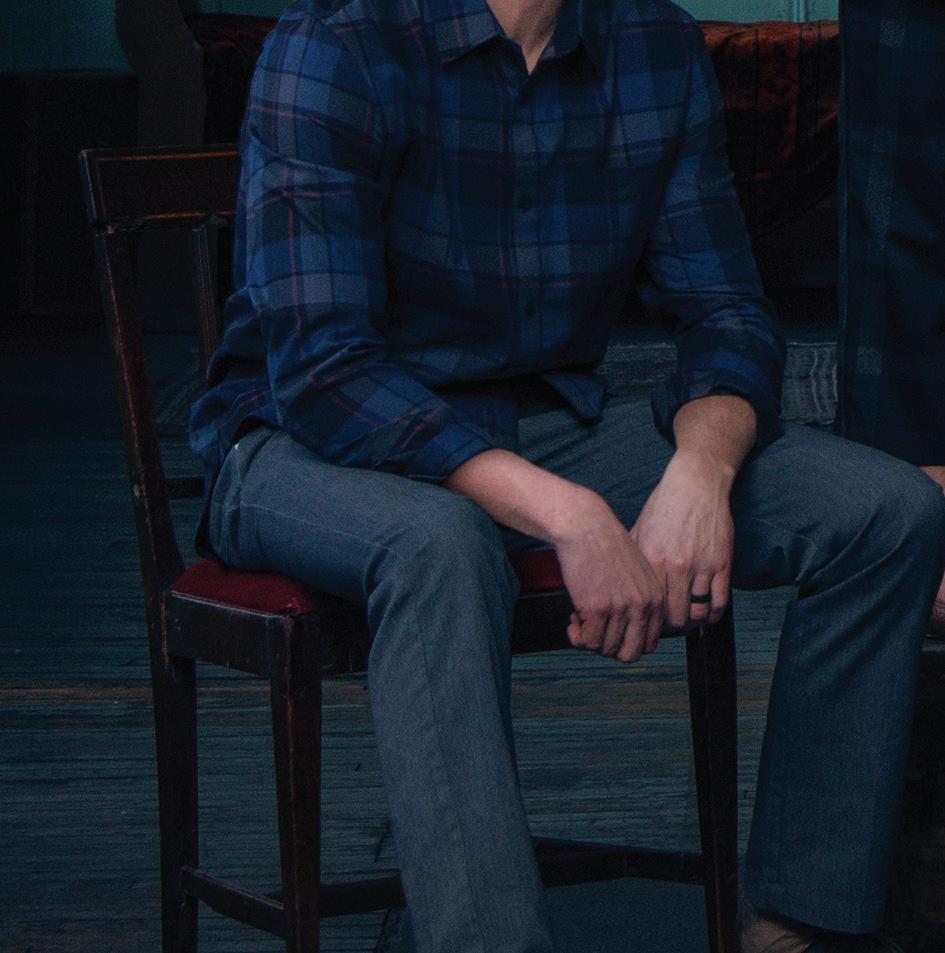





` rifampin
` any other medicines to treat HIV-1
BEFORE TAKING BIKTARVY
Tell your healthcare provider if you:
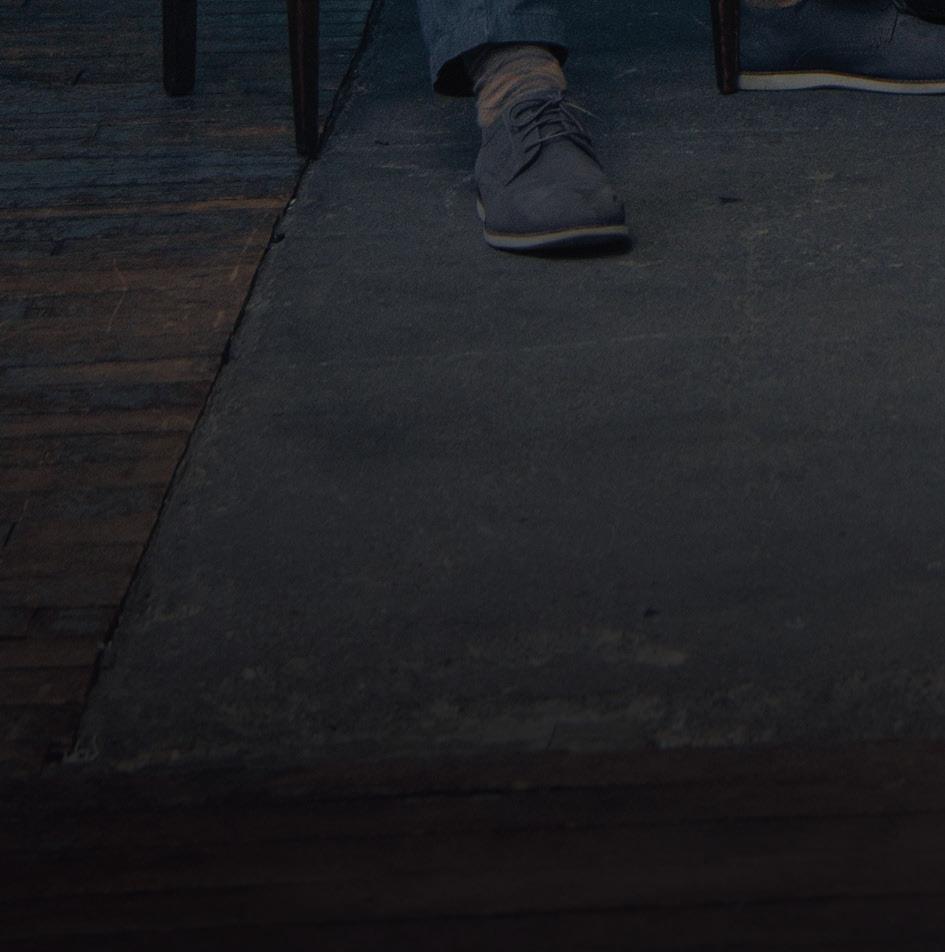
` Have or have had any kidney or liver problems, including hepatitis infection.
` Have any other health problems.
` Are pregnant or plan to become pregnant. It is not known if BIKTARVY can harm your unborn baby. Tell your healthcare provider if you become pregnant while taking BIKTARVY.
` Are breastfeeding (nursing) or plan to breastfeed. Do not breastfeed. HIV-1 can be passed to the baby in breast milk.
Tell your healthcare provider about all the medicines you take:
` Keep a list that includes all prescription and over-thecounter medicines, antacids, laxatives, vitamins, and herbal supplements, and show it to your healthcare provider and pharmacist.
` BIKTARVY and other medicines may affect each other. Ask your healthcare provider and pharmacist about medicines that interact with BIKTARVY, and ask if it is safe to take BIKTARVY with all your other medicines.
POSSIBLE SIDE EFFECTS OF BIKTARVY
BIKTARVY may cause serious side effects, including: ` Those in the “Most Important Information About BIKTARVY” section.
` Changes in your immune system. Your immune system may get stronger and begin to fight infections that may have been hidden in your body. Tell your healthcare provider if you have any new symptoms after you start taking BIKTARVY.
` Kidney problems, including kidney failure. Your healthcare provider should do blood and urine tests to check your kidneys. If you develop new or worse kidney problems, they may tell you to stop taking BIKTARVY.
` Too much lactic acid in your blood (lactic acidosis), which is a serious but rare medical emergency that can lead to death. Tell your healthcare provider right away if you get these symptoms: weakness or being more tired than usual, unusual muscle pain, being short of breath or fast breathing, stomach pain with nausea and vomiting, cold or blue hands and feet, feel dizzy or lightheaded, or a fast or abnormal heartbeat.
` Severe liver problems, which in rare cases can lead to death. Tell your healthcare provider right away if you get these symptoms: skin or the white part of your eyes turns yellow, dark “tea-colored” urine, light-colored stools, loss of appetite for several days or longer, nausea, or stomach-area pain.
` The most common side effects of BIKTARVY in clinical studies were diarrhea (6%), nausea (6%), and headache (5%). These are not all the possible side effects of BIKTARVY. Tell your healthcare provider right away if you have any new symptoms while taking BIKTARVY.
You are encouraged to report negative side effects of prescription drugs to the FDA. Visit www.FDA.gov/medwatch or call 1-800-FDA-1088.
Your healthcare provider will need to do tests to monitor your health before and during treatment with BIKTARVY.
HOW TO TAKE BIKTARVY
Take BIKTARVY 1 time each day with or without food.
GET MORE INFORMATION
` This is only a brief summary of important information about BIKTARVY. Talk to your healthcare provider or pharmacist to learn more.
` Go to BIKTARVY.com or call 1-800-GILEAD-5
` If you need help paying for your medicine, visit BIKTARVY.com for program information.
(bik-TAR-vee)
BIKTARVY, the BIKTARVY Logo, GILEAD, the GILEAD Logo, GSI, and KEEP BEING YOU are trademarks of Gilead Sciences, Inc., or its related companies. Version date: February 2021 © 2022 Gilead Sciences, Inc. All rights reserved. US-BVYC-0008 01/22







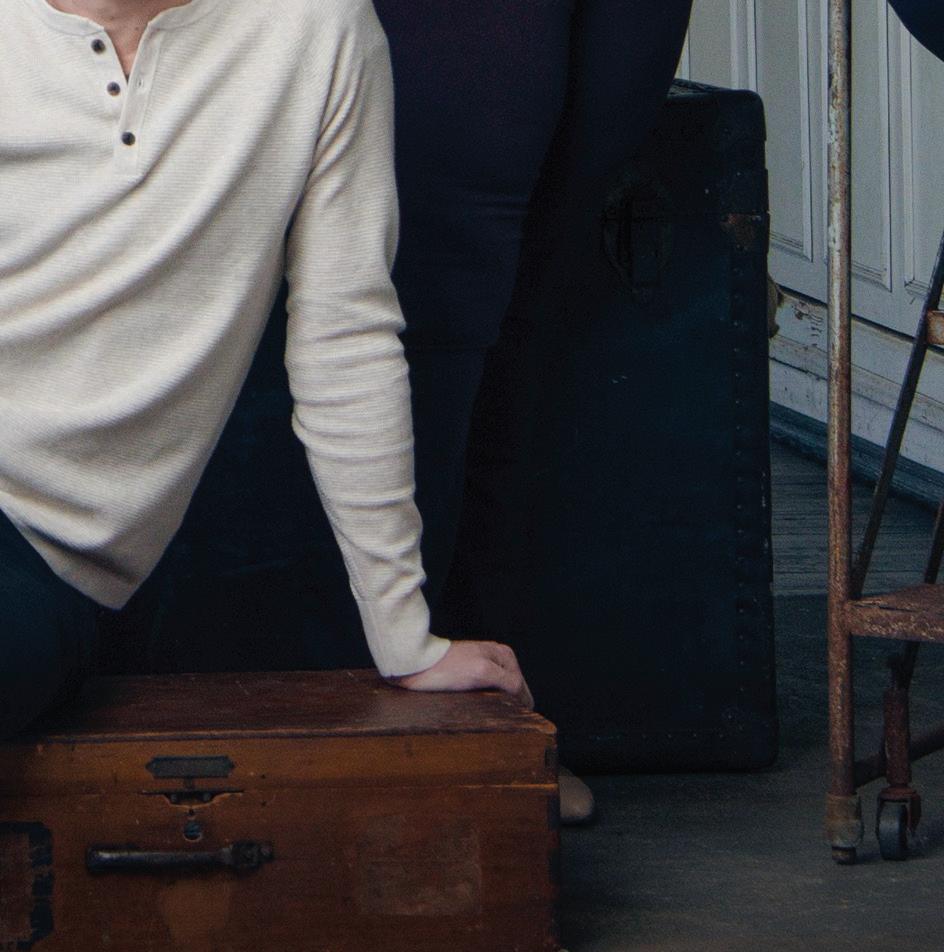


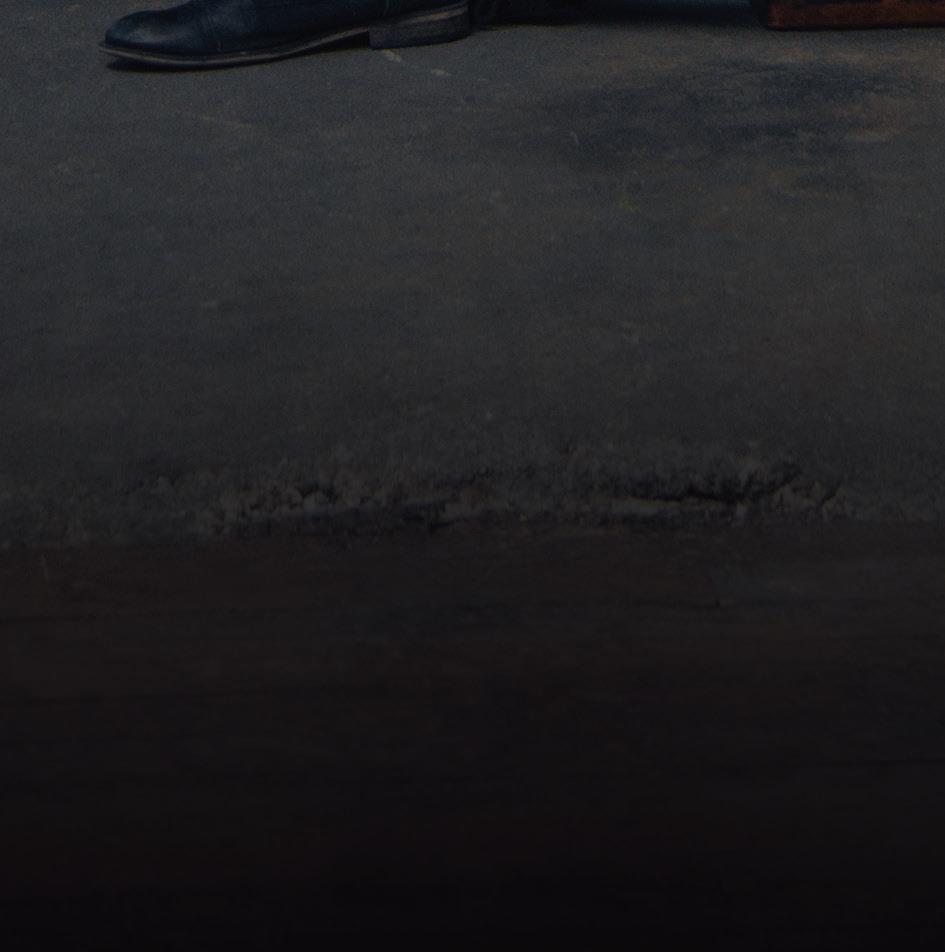



















Please see Important Facts about BIKTARVY, including important warnings, on the previous page and visit BIKTARVY.com. BIKTARVY® is a complete, 1-pill, once-a-day prescription medicine used to treat HIV-1 in certain adults. BIKTARVY does not cure HIV-1 or AIDS. Ask your healthcare provider if BIKTARVY is right for you. Because HIV doesn’t change who you are. ONE SMALL PILL, ONCE A DAY #1 PRESCRIBED HIV TREATMENT * *Source: IQVIA NPA Weekly, 04/19/2019 through 05/28/2021. Pill shown not actual size (15 mm x 8 mm) | Featured patients compensated by Gilead. Scan to see their stories. KEEP BEING YOU.
ALLOWING PEOPLE WITH HIV TO ENLIST
Two identical congressional letters—one signed by six senators; the other by 34 representatives—urge President Joe Biden to direct the Department of Defense (DoD) to allow people with “well-managed” HIV and hepatitis B virus (HBV) to enlist, seek appointment and otherwise serve in the military, according to a press release from Representative Mike Quigley (D–Ill.).
Quigley led the effort in the House, along with Representatives Sara Jacobs (D–Calif.) and Barbara Lee (D–Calif.). Senators Chris Coons (D–Del.) and Kirsten Gillibrand (D–N.Y.) spearheaded the call to action in the Senate.
“People living with HIV and HBV can manage their condition with as little as one pill a day and are able to lead very full, long lives,” Quigley’s press release states. “Particularly given the advancements in medicine for both HIV and HBV, these viruses do not in and of themselves make an individual less able to serve, and the risk of battlefield transmission is near zero. There is no longer any plausible argument to deny these individuals the ability to serve their country.”
The lawmakers’ letters arrive at the White House after a “landmark victory” court ruling in April 2022 for service members living with HIV and after the DoD in June 2022 updated and modernized its HIV policy.
In the court ruling, a federal judge struck down
discriminatory Pentagon policies that discharge and deny promotions to service members living with HIV. The ruling applied to people who contracted HIV while in service; it’s estimated that about 2,000 people in the military have HIV. Currently, people with HIV are not allowed to enlist.
In its June policy update, the DoD clarified that service members whose viral load is undetectable can continue to serve and are deployable. The new policy also allows cadets and midshipmen—young people already on the path to military careers— who test positive for HIV to continue their commissioning program.
In the letters to Biden, lawmakers build their arguments on these recent developments.
The military members involved in the HIV lawsuit that led to the overturn of the Pentagon policy had been deemed healthy and fit to serve. Thus, they claimed the policy was discriminatory and based on outdated science. The court agreed, adding that the Pentagon’s policy was “unlawful, arbitrary and capricious—and unconstitutional,” in the words of Lambda Legal’s Scott Schoettes.

“We urge President Biden to take swift action to ensure that all who wish to serve in the military can do so unimpeded,” said Chari Cohen, DrPH, MPH, president of the Hepatitis B Foundation, in Quigley’s press release. —TS
Helping Community Health Centers End HIV
Some 64 community health centers will receive a total of more than $20 million in federal funding to expand their efforts to prevent, test for and treat HIV. The funds were awarded by the Health Resources and Services Administration, a division of the Department of Health and Human Services (HRSA). The funding supports the federal Ending the HIV Epidemic initiative, which aims to reduce new HIV cases in the country by 75% by 2025 and by 90% by 2030.

2025 and 90% 2030
the National HIV/AIDS Strategy (NHAS), which was updated in 2021. Although the national strategy and the Ending the Epidemic initiative share similar goals, they take different paths.
the rest of society to come together and activate and accelerate like President Biden called us to do to end the HIV epidemic.”
The national strategy, which builds on previous ones was updated on World AIDS Day, December 1, 2021, and offers a road map for fighting HIV from 2022 to 2025. The first one was launched in 2010 by the Obama administration.


HIV news, the House implementa tion for

In related HIV news, the White House recently published a federal implementation plan for
Harold J. Phillips
“Our National HIV/AIDS Strategy included goals and objectives and some strategies for how we can end the HIV epidemic in the United States, but the implementation plan captures some of the major activities that our federal partners will engage in up to the year 2025 to help move us forward,” explained Harold J. Phillips, MRP, the director of the White House Office of National AIDS Policy, in an HIV.gov video.
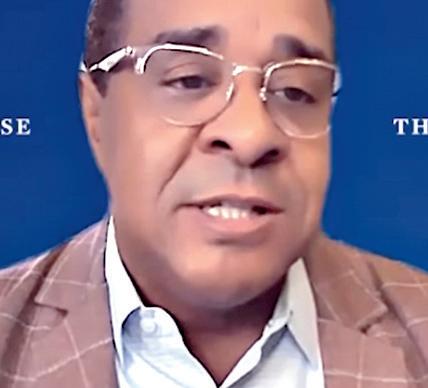
“I hope that this document inspires our private sector, our academic institutions [and] our faith-based partners to really understand what the federal government plans to do,” he added. “The implementation plan is a companion document to the [NHAS]. So [we have] the framework, and then we [have] federal action; now we need
According to HIV.gov, centers that receive funding “will leverage it to expand access to medication to prevent HIV (including pre-exposure prophylaxis, or PrEP, and related services), connect people to care and ensure care services are well coordinated. They will also leverage it to strengthen partnerships with community organizations, such as HRSA’s Ryan White HIV/AIDS Program–funded organizations and health departments. Stronger partnerships speed up patients’ connections to prevention services, including testing and PrEP.”
(SOLDIER) ISTOCK; (PHILLIPS) YOUTUBE/HIV.GOV UPDATES ON HIV & AIDS POZ PLANET 10 POZ DECEMBER 2022 poz.com
Congress members seek a change to a federal defense policy.
—TS
The U.S. health department releases over $20 million in funding.
KING
Rene Cotto-Lewis
HIV risk between 96% and greater than 99% for people who take it every day. [Editor’s note: PrEP is also now available as a long-acting injectable.]



Every day in 2003, an estimated 14,000 people globally were newly infected with HIV, according to the World Health Organization. I was one of them.
I know that many people say, well, HIV is not what it was in 2003, and today, we have medications that work better. That’s true, but if I had the opportunity in 2003 to take a pill that would have reduced the chances of me being positive, I would be all over it.
That pill exists today, and it’s called PrEP, which is short for pre-exposure prophylaxis. PrEP effectively reduces





Keeping It Real December



WORLD AIDS DAY

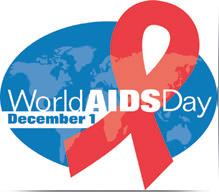

We can help people get on PrEP to prevent HIV and to use condoms to prevent other STDs [sexually transmitted diseases]. Taking PrEP to prevent HIV outweighs feeling frustrated, scared, unsure or anxious every time you have a hookup with someone. Hookups are a reality if you’re not in a committed, monogamous relationship, and sometimes even then. Tell the truth; keep it real.

PrEP is widely available, and you can get help to get on PrEP regardless of insurance. PrEP is available for everyone and anyone who is sexually active and HIV negative.
Control your destiny, or your destiny will control you.

What person in the HIV community do you most admire? Phill Wilson, the previous director of
the Black AIDS Institute. With grace, passion and commitment, he has empowered a generation of advocates to educate those of us most affected and infected by HIV.
What keeps you up at night?
Not much. I believe in doing my best each day, so when I go to sleep, I don’t worry about myself personally; instead, I focus on how I can express gratitude for the day and impact others.
What is the best advice you ever received?
You have the potential to transform the world, but you have to believe in yourself. My mother told me this right before she passed away.

Read other POZ Stories or share your own at poz.com/stories.
poz.com/aidsiseveryday
The United States Postal Service issues a 29-CENT COMMEMORATIVE STAMP to raise awareness of AIDS. Available nationwide, the stamp features a red ribbon symbolizing compassion and awareness. (1993)

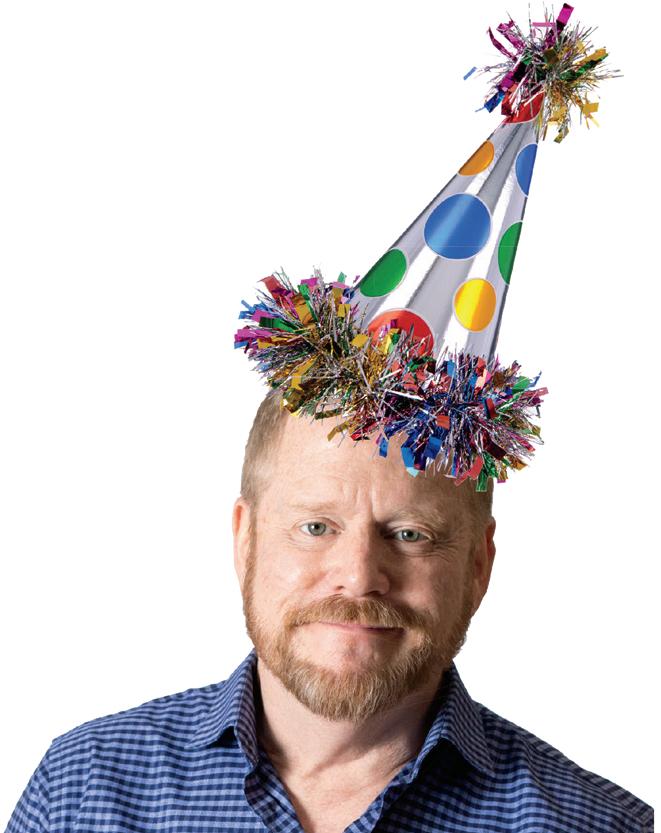
The U.S. Department of Health and Human Services launches READY, SET, PREP, a national program that makes medications for pre-exposure prophylaxis (PrEP), taken to prevent HIV, available at no cost to people without prescription drug insurance coverage. (2019)
10San Francisco nurse BOBBI CAMPBELL writes a column for the San Francisco Sentinel about his experiences living with Kaposi sarcoma (KS) and dubs himself the “KS Poster Boy.” Two months earlier, he had posted photos of his lesions in the window of a local drugstore to alert the community about the disease. (1981)
ELIZABETH TAYLOR’S JEWELRY COLLECTION
is auctioned off at Christie’s for $115.9 million. Proceeds from the sale benefit The Elizabeth Taylor AIDS Foundation. (2011)
KIMBERLY BERGALIS, one of five patients who made national headlines for allegedly contracting HIV from a dentist in Florida, dies of AIDS-related causes. (1991)
16HIV advocate MARK S. KING throws a virtual 60th birthday bash during the COVID-19 pandemic to raise funds for The Reunion Project. (2020)
(COTTO-LEWIS) COURTESY OF RENE COTTO-LEWIS (STAMP, PILL AND DIAMONDS) ISTOCK; (KING)
COURTESY OF MARK S.
EVERYDAY
These dates represent milestones in the HIV epidemic. Visit
to learn more about the history of HIV and AIDS. BY JENNIFER MORTON
wishes PrEP had been around in 2003.
8
Rene CottoLewis
13
3 1
TOGETHER AGAIN
Thanks to the decline in COVID-19 infections and deaths brought about by highly effective vaccines and boosters, September 2022 marked the much-anticipated return of in-person gala celebrations honoring HIV advocates as well as the fundraising events that help sustain the nonprofits fighting to end HIV.


Not that HIV and AIDS organizations ever stopped serving people living with HIV—not even during the bleakest days of the COVID pandemic. On the contrary, such groups were quick to pivot to offer services by different means, including virtual; provided new services as needed; and found novel ways to raise money. But nothing better reminds us that we are in the fight to end HIV together, than actually being together.
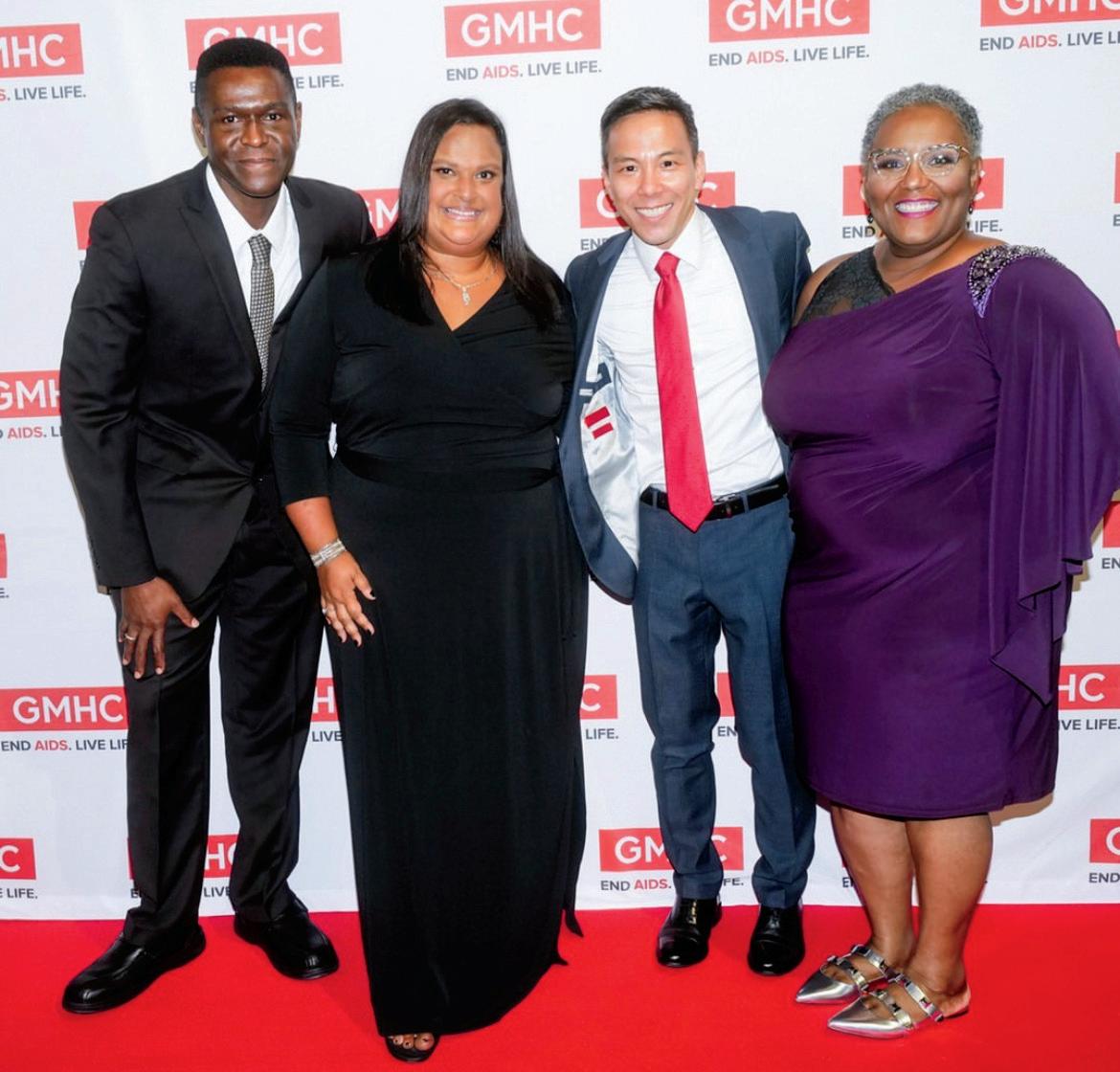
12 POZ DECEMBER 2022 poz.com BY JOE MEJÍA SPOTLIGHT (1,3) JASON CROWLEY/BFA/GMHC/INSTAGRAM (2) ROBERT RIPPS/GMHC/INSTAGRAM
2
1. Dashaun Wesley, the cohost of HBO’s voguing competition show, Legendary, and the founder of the House of Basquiat, emceed GMHC’s 40th Anniversary Gala 2. Held at New York City’s Cipriani, the event honored DJ-producer Honey Dijon with the Community Advocate Award, former GMHC CEO Kelsey Louie with the Judith Peabody Humanitarian Award and GMHC cofounder Lawrence Mass, MD, with the Founders Award for Activism. 3. For seven years, Louie (third from left) served as the CEO of GMHC, where he revived the Buddy Program and expanded mental health and substance use counseling services, among other accomplishments.
3 1
4. Grammy winner Thelma Houston serenaded attendees at the Elizabeth Taylor Ball to End AIDS hosted by the Elizabeth Taylor AIDS Foundation (ETAF) and presented by Gilead Sciences and Bulgari. 5. Colin Farrell (center), a longtime ETAF ambassador, who received an Elizabeth Taylor Commitment to End AIDS Award at the event, posed with ETAF officers Quinn Tivey (left) and Tim Mendelson (right). 6. Emmy Award winner Sheryl Lee Ralph received an Elizabeth Taylor Commitment to End AIDS Award in recognition of her three decades of AIDS advocacy. In her acceptance speech, Ralph declared, “Forty years later, AIDS in America is still here. Raise your voice, do the work, decriminalize it and open up your heart and your minds to people who do not look like you.” (Charlize Theron, who was unable to attend, was also honored with an award.)
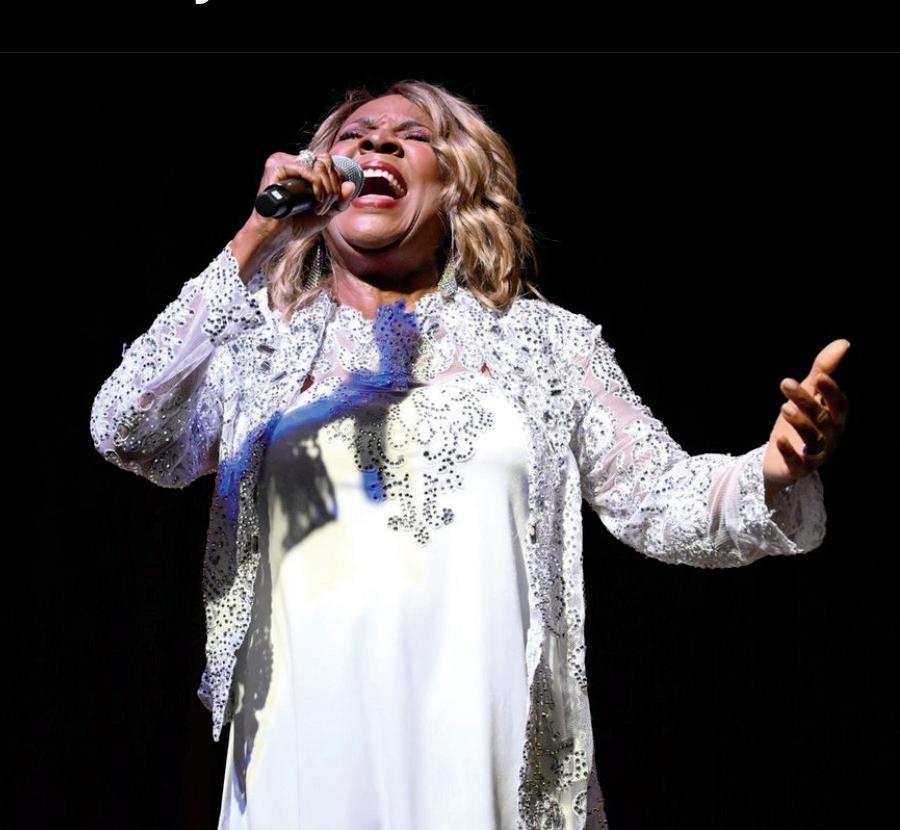
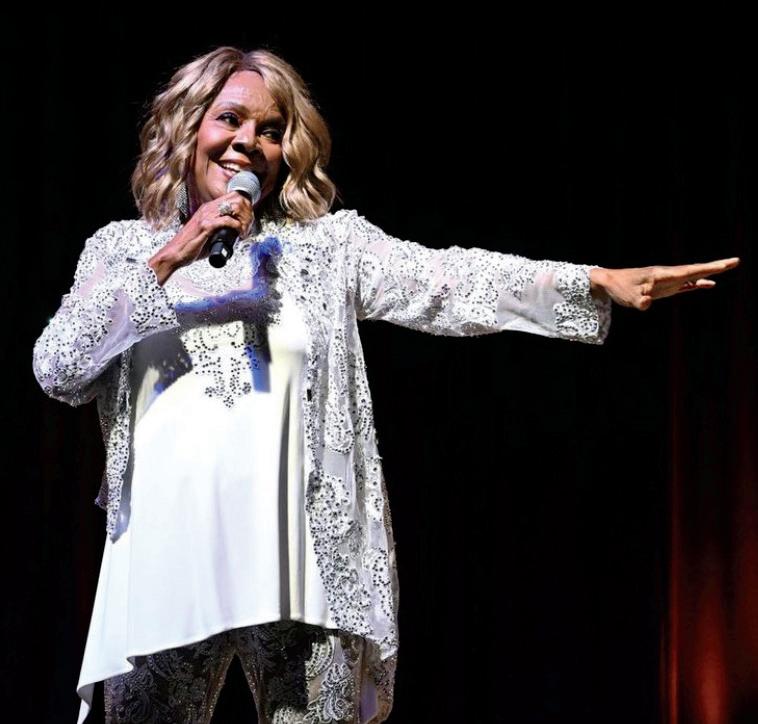


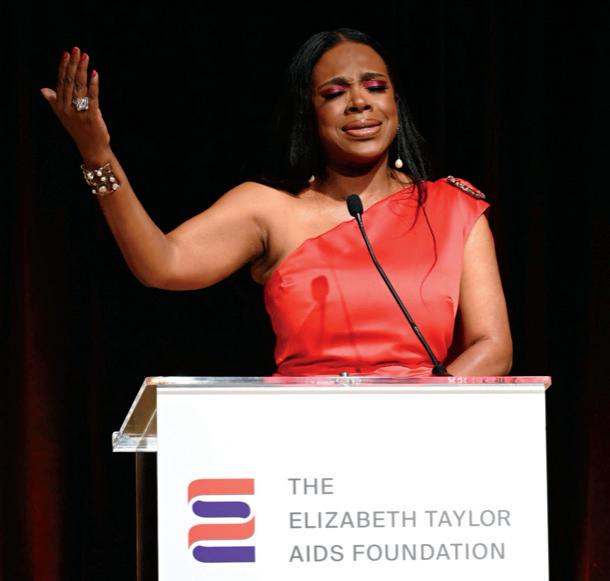
7. Housing Works CEO Charles King hyped up fellow cyclists at a Braking AIDS Ride. The one-day, 80-mile ride from Fishkill, New York, to New York City raised $350,000 for the nonprofit.

8. The three-day, 275-mile Boston–to–New York City bike ride Cycle for the Cause raised $1,643,592 for HIV and AIDS services at The Center, NYC’s LGBTQ community center.
Send your event photos to POZ at website@ poz.com or tag us on Facebook, Instagram or Twitter. For a list of community events, visit poz.com/calendar.

(4,5,6) ELIZABETH TAYLOR AIDS FOUNDATION/INSTAGRAM; (7) BRAKING AIDS RIDE/INSTAGRAM; (8) CYCLE FOR THE CAUSE/INSTAGRAM
4
7
5
6
8
HELLO SAN JUAN!
titled “USCHA
NMAC WOULD NEVER knowingly put constituents in danger. The decision to proceed with the 2022 United States Conference on HIV/AIDS (USCHA) was made in consultation with the members of the local host committee. They’ve spent years working to bring the meeting to their city. The host committee is sensible and empathetic with all the people affected by Hurricane Fiona, particularly people living with HIV and AIDS and their families and community-based HIV organizations and their workers.
The committee members believe that USCHA is part of the strategies for ending the HIV epidemic. They also believe that the entire HIV community in Puerto Rico would greatly benefit from all that the conference provides via exchange of strategies as well as ideas and experiences learned from struggles such as this one. Additionally, people need to feel supported, and canceling the conference would send a very different message.
USCHA is the largest meeting to happen in San Juan since COVID-19. Since the airport, convention center and our 10 hotels are ready and excited for us to arrive, NMAC and the host committee want to support the workers and the local economy—even if only modestly compared with the need—

during this difficult time. We understand that some might not be ready to travel. However, we hope you will join us and support the San Juan community and the people living with HIV and their communities outside the capital city.
A few constituents shared concerns about the optics of visitors traveling to San Juan while so many are suffering. The host committee said optics go both ways. No question, San Juan and Puerto Rico are hurting. Is it better to cancel and avoid those optics or carry on and support the local economy? The meeting will pull the curtain back so attendees can learn about the real San Juan.
The region was in trouble before Fiona; the storm only exacerbated the inequities. According to The Atlantic, “approximately 43% of all Puerto Ricans live below the poverty line and struggle to find work. The median household income is $21,058, less than half the median income in Mississippi, the poorest American state.”
We also understand that, once again, the world has changed. USCHA won’t be the same meeting. Here are some of the ways we are pivoting:
In the aftermath of Hurricane Fiona, it was important to also support HIV service organizations impacted by the storm, especially those on the west and south sides of the main island. Gilead Sciences has committed $500,000 to
this effort. AIDS United will oversee the fund to help rebuild agencies. Together, we will approach other HIV donors to rally support for nonprofit communitybased HIV services.
Coaí, a local AIDS service organization, created a fund that directly supports people living with HIV who were impacted by Fiona. We are asking the HIV community, particularly people attending USCHA, to consider donating. NMAC will match the money raised by conference participants. Corporate money will help rebuild organizations; community support will go directly to people living with HIV and AIDS.
One of the biggest challenges to leadership is making the right decision when the pathway is not clear. NMAC will never put constituents in danger, but we also don’t shy away from a fight, especially when it’s a fight for community. The HIV movement is so much more than AIDS Inc.
We are a family whose members look out for one another. While thoughts and prayers are nice, as you have read, locals need the jobs that USCHA helps support. Local small businesses, particularly LGBTQ bars and restaurants, will also greatly benefit during USCHA. Attendees also need to be sensitive to the reality that this is a community in trauma. Now more than ever, we all need and deserve kindness. ■
BLOGS AND OPINIONS FROM POZ.COM VOICES ISTOCK 14 POZ DECEMBER 2022 poz.com
Puerto Rico Convention Center
In a blog post
Is On!” NMAC executive director Paul Kawata shared the news that the 2022 United States Conference on HIV/AIDS would proceed despite Hurricane Fiona. Below is an edited excerpt.
:
HIV & BLACK PEOPLE
In a blog post titled “National AIDS Memorial Releases Newest Mini-Documentary: The Black Community & AIDS,” the organization details the seventh film in its oral history project. Below is an edited excerpt.
THE NATIONAL AIDS Memorial has released its latest mini-documentary, The Black Community & AIDS, the seventh film in its oral history series, Surviving Voices*. In The Black Community & AIDS, nearly two dozen survivors and advocates from across the United States who are thriving share their hopes and struggles about the HIV and AIDS epidemic and its disproportionate impact on the Black community.
The film opens with powerful words from Phill Wilson, founder of the Black AIDS Institute, who says, “My grandmother used to say, ‘When white people get a cold, Black people get pneumonia.’ And so I thought, If white people are getting the plague, what in the hell are we going to get?”
The 17-minute film can be viewed on the National AIDS Memorial website and its YouTube channel. In addition to the mini-documentary, viewers can watch individual interview segments featuring candid, deeper conversations with the film’s participants.
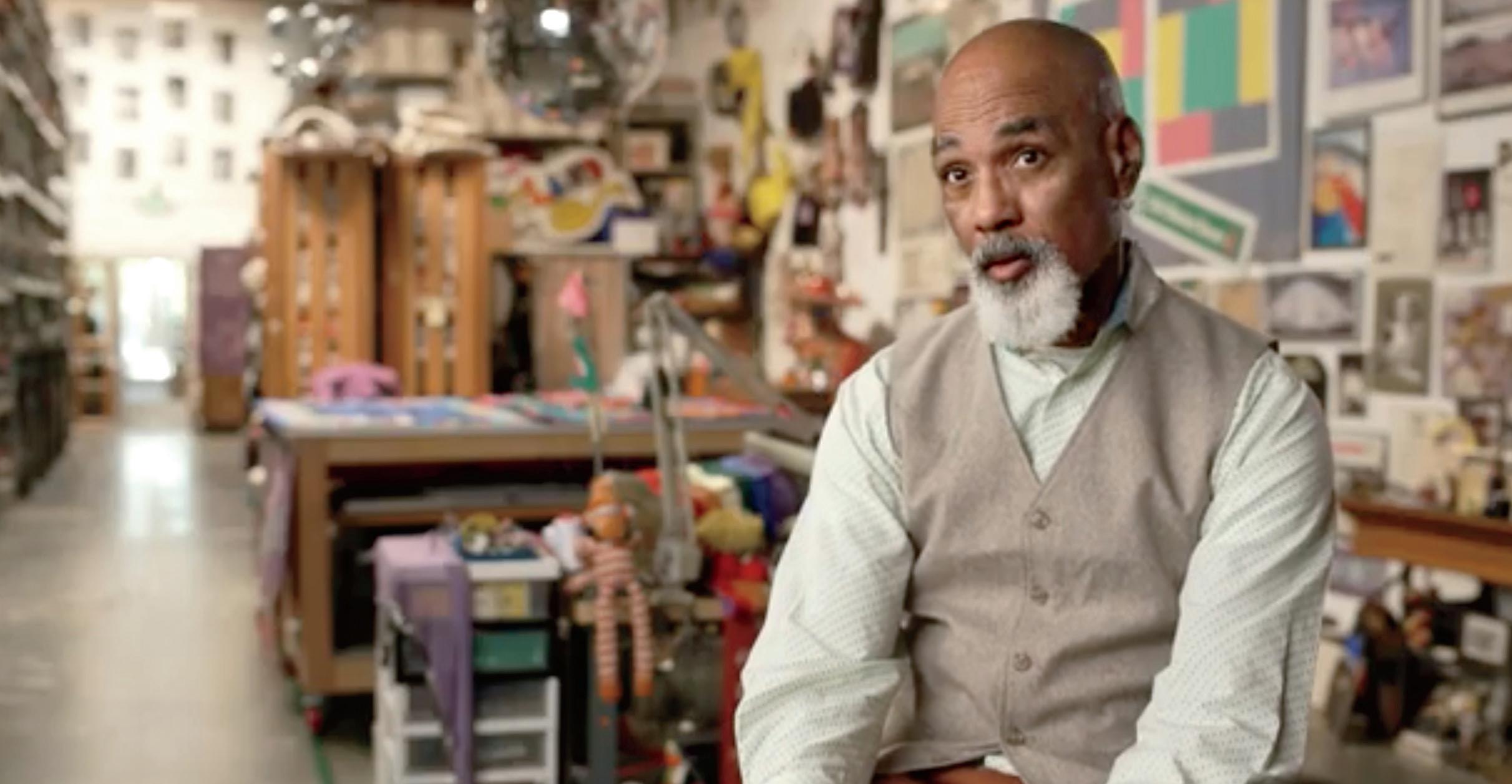

Advocate Tori Cooper says, “To talk about HIV in the Black community in the present day, you have to really look at the history of HIV and Black people. Black people have been villainized and stigmatized around not just having an HIV diagnosis but as being pushers of the virus. That stigma that was perpet-
uated 40 years ago still exists and still impacts the way society thinks about people who are living with HIV.”
Dázon Dixon Diallo, founder and president of SisterLove, the first women’s HIV and sexual reproductive justice organization in the Southern United States, says, “For this epidemic, men opened the door—on the advocacy, on the activism. But it will be women who close the door on this epidemic. Because once women own it, we change things, and when we change things, we change things for everybody.”
Sharing her truth and powerful story, advocate Sharron Chatman emotionally says, “My mother made me eat off of paper plates and plastic forks, and that was hurtful because it was my mom. Mothers aren’t supposed to reject or feel that way towards their child. Through SisterLove, I began to understand that me being HIV positive was no longer fearful in my life. I became a warrior.”
These are just a few of the important topics the film addresses through the powerful stories of interviewees.
The Black Community & AIDS was produced and directed by Jörg Fockele. Chevron, a long-standing partner of the National AIDS Memorial, is the presenting partner and has provided major funding for the program annually during the past five years.
“These films really bring to the
forefront the power of storytelling and the lessons that can be taught for current and future generations,” says Huma Abbasi, general manager of health and medical at Chevron. “Our longtime support for this program is part of our commitment to sharing the very human experiences that have shaped four decades of the AIDS epidemic. These stories demonstrate the devastating impact that continues today, the hope and the work that still lie ahead.”
Community partners include the San Francisco AIDS Foundation, Black Brothers Esteem, the New York City LGBT Community Center, Oasis Florida, W.O.M.E.N. Inc., GLAAD, MOBI, GMHC, Frontline Legal Services, Native Son, SisterLove, AIDS Project of the East Bay, Positive Women’s Network–USA and Thrive SS. ■
*Created in 2015, this multiyear AIDS oral history project helps ensure that stories and lessons of the epidemic are captured, curated and retained for future generations.
Additional featured films include Substance Users, TheRecovery Community & AIDS, The Transgender Community & AIDS, Asians & Pacific Islanders & AIDS, Women & AIDS, The Hemophilia Community & AIDS and The San Francisco Leather Community & AIDS.
poz.com DECEMBER 2022 POZ 15 (WILSON) COURTESY
THE NATIONAL
MEMORIAL
OF
AIDS
Phill Wilson as interviewed in The Black Community & AIDS
HOW DO I START AN EXERCISE PROGRAM?



Before starting a new exercise regimen, check with your health care provider, especially if you are older or have existing health conditions. Almost everyone can find a level and type of activity that is safe and beneficial for them.
If you’re just starting out, build up slowly— for example, by bicycling several more minutes each day or lifting a bit more weight each time you work out. Joining a gym or taking a class gives you access to equipment you don’t have at home and can motivate you to exercise regularly.
Community gyms, such as the YMCA, may offer free or low-cost memberships. A personal trainer or fitness coach can help design an exercise program that’s right for you.
Exercise is generally safe, but it’s important to know your limits. Overtraining can lead to muscle pain and fatigue, and pushing yourself too hard—for example, by lifting too much weight or not paying attention to your form and posture—can increase the risk for injury. If you’re not feeling well, skip a day or more.
If you’re just starting to exercise, take it slow and increase your activity gradually. To reduce the risk for injury, stretch and warm up at the beginning of every exercise session.
Don’t forget to get enough sleep, eat a healthy diet and drink plenty of water before, during and after exercising. Listen to your body: It will tell you when you can step up the pace or need to slow down or take a break.
This is an excerpt from the “HIV and Exercise” Basics page on POZ.com.
GUACAMOLE
This is one of the easiest, most nutritious snacks to throw together on short notice.
WITH PLENTY OF HEART-HEALTHY FAT, guacamole is a great calorie-dense choice for those who are going through medical treatment and need to make every bite count.


SERVINGS: 6 / INGREDIENTS: 7 / PREP: 15 MINUTES
INGREDIENTS
3 ripe avocados, halved and pitted 2 tablespoons white or red onion, finely chopped ½ cup lime juice or to taste Salt, to taste
DIRECTIONS
2 tablespoons cilantro, chopped 6 cherry tomatoes, chopped (optional)

1 jalapeño, deseeded and minced (optional)
1. Use a spoon to scoop out the avocado flesh into a medium bowl. 2. Add the onion, lime juice, salt, cilantro, tomatoes and jalapeño, if you decide to use it.
3. Mix together, breaking up the avocado with the spoon, leaving it chunky (or blending until smooth, if preferred). Taste for seasoning. Serve immediately with tortilla chips, or cover with plastic wrap touching the guacamole and chill until ready to serve.
NUTRITION FACTS (per serving)
Calories: 170; fat: 15 g; saturated fat: 2 g; polyunsaturated fat: 2 g; monounsaturated fat: 10 g; carbohydrates: 11 g; sugar: 2 g; fiber: 7 g; protein: 2 g; sodium: 324 mg
©2022 Fred Hutchinson Cancer Research Center, a 501(c)(3) nonprofit organization. Used by permission.
18 POZ DECEMBER 2022 poz.com (BOARDS AND GUACAMOLE) ISTOCK
ADVICE ON DIET AND EXERCISE NUTRITION & FITNESS
“Staying in care and on treatment helps me to be the best mother, wife, and HIV prevention educator I can be. I tell other women living with HIV: You can overcome your fear. You deserve to live life to the fullest.” — ANGIE FROM LOGANVILLE, GEORGIA
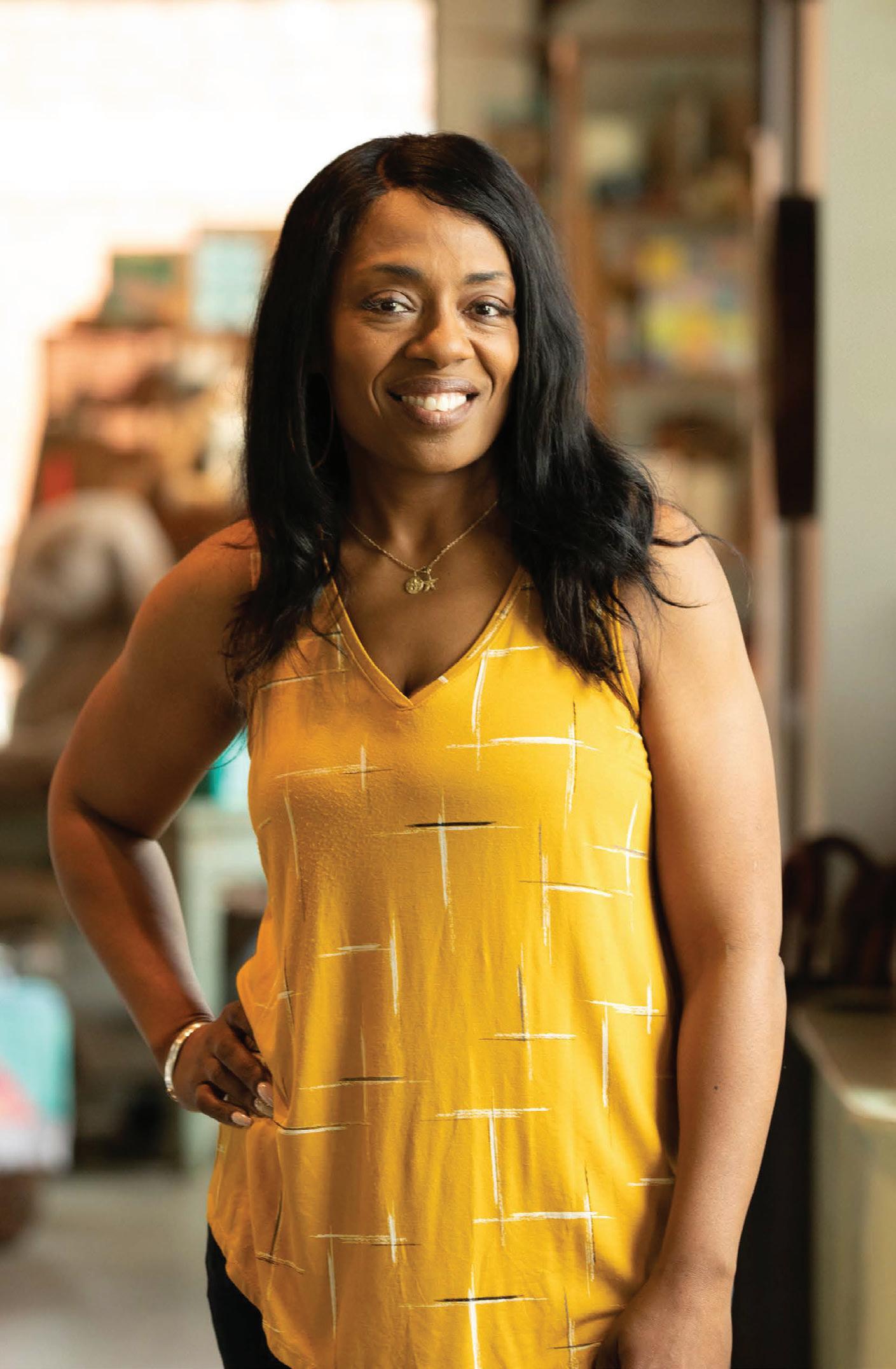












GET IN CARE, STAY IN CARE, LIVE WELL, AND LET’S SUPPORT OTHERS TO DO THE SAME.

LET’S STOP HIV TOGETHER
’
cdc.gov/HIVTreatmentWorks
“ “
’
HIV DRUG RESISTANCE
EFFECTIVE ANTIRETROVIRAL therapy has made the fight against HIV much easier, but treatment still involves challenges, including drug resistance. When resistance occurs, medications can stop working, leading to disease progression and raising the risk for HIV transmission. What’s more, some mutations confer cross-resistance to related drugs, limiting future treatment options.
Fortunately, modern antiretrovirals are more potent, so the virus is not able to defeat them as easily. But it’s still important to take your HIV medications as directed and to receive recommended monitoring tests to ensure your treatment is working.
Drug resistance refers to HIV’s ability to continue multiplying in the presence of drugs that usually disable it. This occurs when the virus develops mutations, or changes in its genetic code. These changes alter HIV proteins, including the reverse transcriptase, protease and integrase enzymes the virus uses to replicate. Certain antiretroviral classes have a higher barrier to resistance, meaning HIV must mutate more to compromise their effectiveness.
In some cases, people acquire a strain of HIV that already has resistance mutations. In other cases, they initially have nonresistant, or “wild type,” virus
that later develops these mutations. This is most likely to happen if a person doesn’t always take their antiretrovirals on schedule. Missing doses can lead to low drug levels, which allows the virus to replicate and accumulate mutations.
Resistance can also occur when HIV meds are not properly absorbed, resulting in drug levels that are too low to fully control the virus. Certain drugs, for example, must be taken with food or on an empty stomach to be fully absorbed. Drug interactions can interfere with absorption too.
Finally, resistance mutations can evolve if a person uses only one drug that is active against the virus, known as monotherapy. Combining drugs that target different steps of the HIV life cycle makes it harder for the virus to overcome the meds. Some people who used less potent antiretrovirals one at a time early in the epidemic have multidrug-resistant HIV, making it harder to construct a fully suppressive regimen.
A viral load test often gives the first indication of drug resistance. If your HIV RNA level does not drop soon after starting therapy or if it starts going up while on treatment, this may be due to resistance.
Resistance testing can help determine whether HIV is no longer susceptible to your medications. Tests may also be done before starting treatment or

when switching to a new regimen to help determine which drugs are most likely to work well. Genotypic tests examine HIV’s genetic sequence to see whether it contains known resistance mutations, while phenotypic tests show whether HIV in a blood sample can still replicate when exposed to drugs in a laboratory.
People living with HIV can take steps to reduce the likelihood of drug resistance. Start treatment with a potent combination regimen, which offers the best chance of fully suppressing the virus. When switching meds, pick a potent new regimen that is well tolerated and easy to use. Take your medications exactly as prescribed, which usually means every day. Tell your health care provider if you struggle with adherence—some meds are more forgiving of occasional missed doses. Get regular monitoring tests to ensure that your treatment is working.
Today’s antiretrovirals are very effective if taken consistently. Most people starting treatment for the first time can find a regimen that keeps their viral load suppressed over the long term, which minimizes the risk of resistance. Putting together an effective regimen is more challenging for treatment-experienced people, but most can still get their HIV under control with modern meds. ■
ISTOCK 20 POZ DECEMBER 2022 poz.com BY LIZ HIGHLEYMAN BASICS
Taking medications consistently is the best way to avoid resistance mutations.
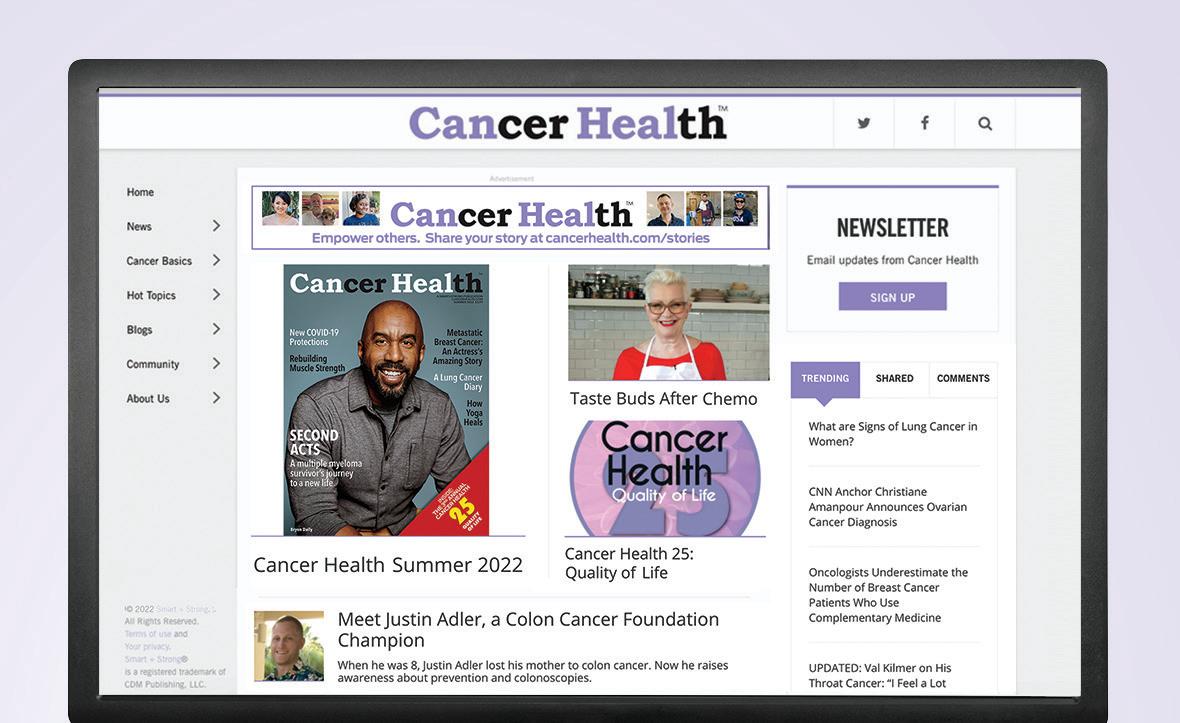







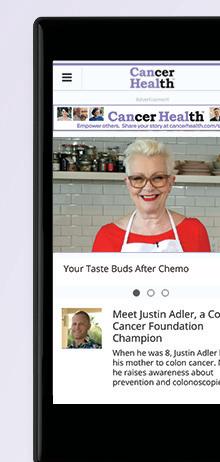









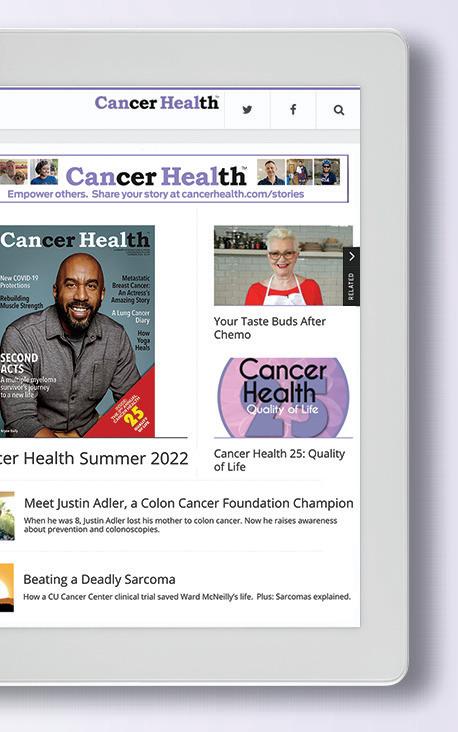
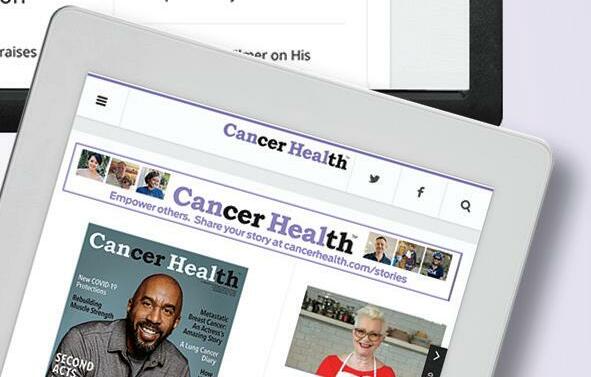





FIND US AT A SMART + STRONG PUBLICATION Award-winning consumer health care information • A daily resource for people living with and affected by cancer • Clear, comprehensive prevention and treatment information • News, personal stories, blogs, cancer-specific resources and more • Sign up online to receive free treatment and lifestyle email newsletters Follow us on: CancerHealth.com TM
LONG COVID AND PEOPLE WITH HIV
People living with HIV may be more likely to develop long COVID, and this might be related to differences in immune function, according to a recently published study.
Long COVID, also known as post-acute sequelae of SARS-CoV-2 (PASC), refers to symptoms that last months or years after a bout of COVID-19. These may include shortness of breath, fatigue, brain fog and muscle and joint pain. The causes are not fully understood, but lingering organ damage, persistent SARS-CoV-2 infection and lasting immune system changes may play a role.
Michael Peluso, MD, of the University of California, San Francisco, and colleagues compared symptoms and measured SARS-CoV-2specific immune responses in 39 HIV-positive people and 43 HIV-negative people recovering from COVID. They were diagnosed between April and December 2020 and had not yet received COVID vaccines. The HIV-positive participants were on antiretroviral therapy, most had an undetectable viral load and the median CD4 count was approximately 600.
Overall, people with HIV were about four times more likely to have long COVID. Some of the most common symptoms were at least twice as frequent in HIV-positive people compared with HIV-negative people, including fatigue (42% versus 23%) and concentration problems (42% versus 19%). Both groups had broadly similar antibody and T-cell responses, but people with HIV had lower levels of SARSCoV-2-specific memory CD8 T cells and higher PD-1 expression, a marker of immune cell exhaustion, on SARS-CoV-2-specific CD4 T cells. People with HIV also had higher levels of certain inflammatory cytokines, which were associated with long-lasting symptoms. The researchers noted that long COVID may be driven in part by ongoing inflammation, and people with HIV are already prone to persistent immune activation and chronic inflammation.
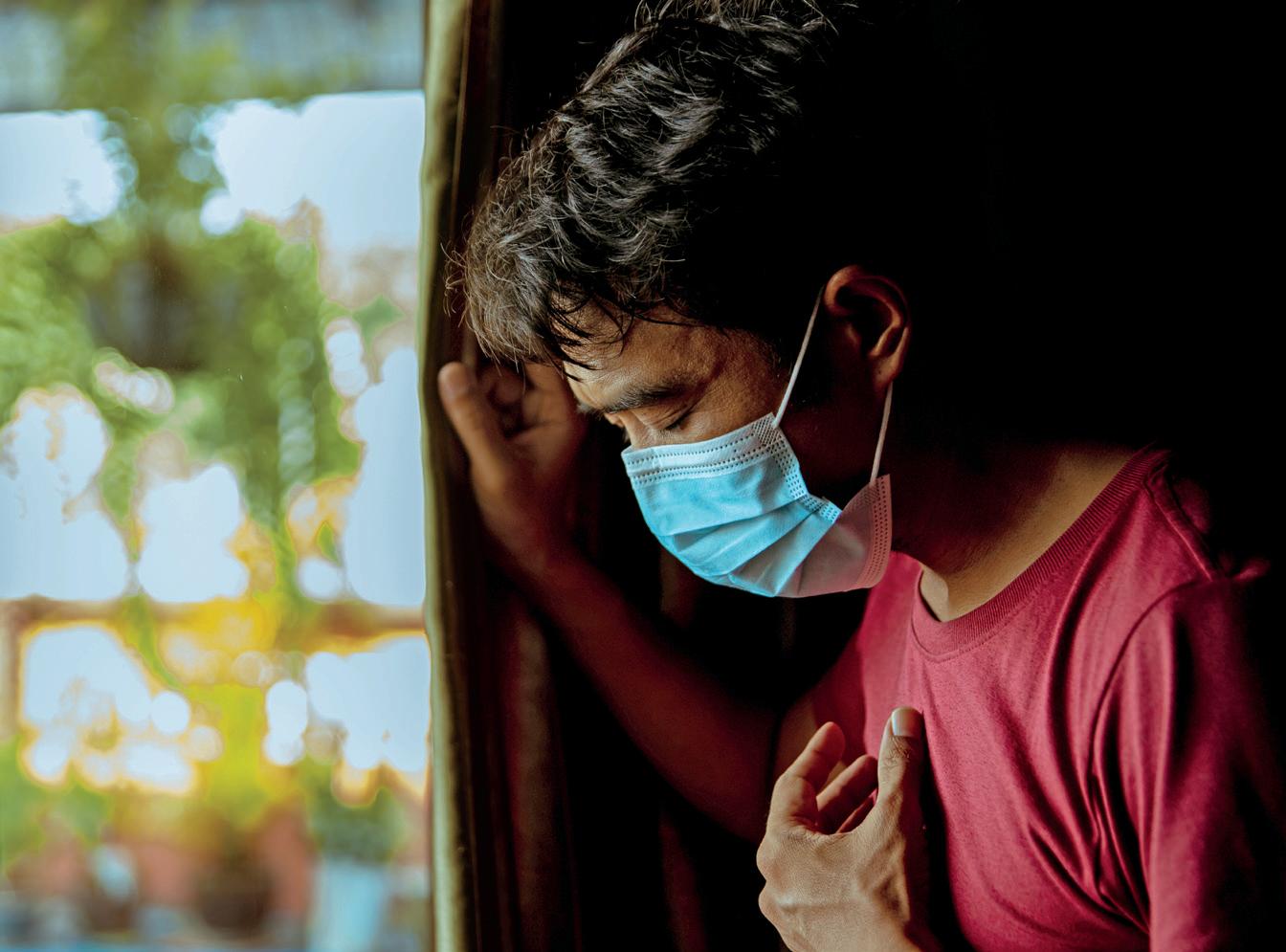
“We observed that HIV status was strongly associated with PASC, raising concerns that this condition might be common among people with HIV recovering from COVID-19,” the authors wrote. “Larger and more detailed studies of PASC in people with HIV are urgently needed.”
Treating Substance Use Improves HIV Care
People who use drugs face barriers that can make it difficult to start and stay on antiretroviral treatment, including unstable schedules, stigma, poverty and homelessness. But those who receive opioid substitution therapy to manage drug addiction are more likely to receive HIV treatment and achieve viral suppression, according to a recent study in Vancouver.
Opioid agonist therapy (OAT), which uses medications such as methadone or buprenorphine to prevent withdrawal symptoms and ease cravings for heroin and other opioids, can help people reduce or stop drug use.

Stephen Juwono and colleagues from the British Columbia Centre on Substance Use assessed the impact of OAT on progression through the HIV cascade of care, which involves linkage to care, initiation of antiretroviral therapy, retention in care, ongoing adherence to treatment and achieving and maintaining an undetectable viral load. British Columbia provides opioid agonist medications at communitybased clinics; some HIV-positive people receive directly observed antiretrovirals along with OAT.
The study included 639 people with HIV who used opioids at least once daily. About a third were homeless, 16% had been incarcerated and 16% reported sex work. At the start of the study, about 70% were on OAT, mostly methadone.
People on OAT were more likely to be linked to HIV care, though the difference did not reach statistical significance. However, people on OAT were significantly more likely than those who were not to start antiretroviral therapy (91% versus 78%), adhere to treatment (77% versus 54%) and achieve an undetectable viral load (63% versus 42%). After adjusting for other factors, people on OAT were nearly four times more likely to start antiretrovirals, about three times more likely to take their meds consistently and more than twice as likely to achieve viral suppression.
“These findings are encouraging and support calls for greater integration of OAT and HIV services as well as for interventions to reach people with HIV not on OAT to maximize the clinical and community benefits of antiretroviral therapy,” the study authors wrote.
BY LIZ HIGHLEYMAN CARE & TREATMENT
22 POZ DECEMBER 2022 poz.com
Monkeypox Declines, but Disparities Persist

The ongoing monkeypox outbreak has slowed dramatically in the United States and Europe after peaking in late summer, but health officials and advocates say it’s too soon to declare victory. Centers for Disease Control and Prevention (CDC) director Rochelle Walensky, MD, says she is “cautiously optimistic,” but adds, “we are not done with this fight.”
The United Kingdom, which saw the first cases of this outbreak in May, was also the first to report that it had peaked. The same pattern repeated itself in the U.S. and Europe as countries and cities with early surges recorded declines. In late August, the World Health Organization reported that new cases had fallen by 21% worldwide. But while New York City, Chicago and San Francisco, among others, saw large drops, smaller U.S. cities, rural areas and countries in Latin America continued to see rising case numbers.
Five months into the outbreak, monkeypox still overwhelmingly affects men who have sex with men; cases among women and children remain uncommon. Like HIV, monkeypox has shifted toward communities of color and the South. About 40% of people with monkeypox are living with HIV. Black and Latino men now account for around two thirds of cases nationwide, but they have not received their fair share of vaccines.









The overall decline in new cases is attributable to multiple factors, including sexually active gay men developing immu-






nity after infection and the rollout of vaccines. According to a preliminary CDC analysis, vaccinated men were 14 times less likely to contract monkeypox than eligible men who were not vaccinated. Behavior change also plays a key role: A CDC survey found that half of gay men had made changes, such as having fewer sex partners.






Early adopters in large cities lined up throughout the summer to score scarce shots, but efforts are now focused on getting vaccines to others at risk, including people who may not identify as gay and those who are not connected to sexual health services. “Now we really have the hard part of the job to do,” says deputy national monkeypox response coordinator Demetre Daskalakis, MD.

Some health experts think monkeypox could be nearly eliminated in the U.S. and Europe, but others predict it will continue to circulate at a low level indefinitely, especially in vulnerable communities. Some fear it could become endemic, as it is in African countries that have dealt with monkeypox for decades but do not have access to vaccines or treatments.


Progress on Long-Acting HIV Treatment
Long-acting antiretrovirals are the future of HIV treatment, and new meds on the horizon could improve convenience and adherence.
On August 22, the European Commission approved Gilead Sciences’ lenacapavir, sold as Sunlenca, as a new option for treatment-experienced people with multidrug-resistant HIV. Lenacapavir, the first HIV capsid inhibitor, has a long half-life in the body and can be administered just once every six months. The Food and Drug Administration (FDA) could approve the new antiretroviral by the end of 2022.
Studies showed that more than 80% of people with highly resistant HIV were able to maintain an undetectable viral load for at least a year after switching from a failing regimen to twice-yearly lenacapavir injections plus an optimized background regimen. Lenacapavir is also being studied as a long-acting option for pre-exposure prophylaxis (PrEP).
“Lenacapavir helps to fill a critical unmet need for people with complex prior treatment histories and offers physicians a long-awaited twice-yearly option for these patients who are at greater risk of progressing to AIDS,” says Jean-Michel Molina, MD, of Université Paris Cité. In other news, Merck announced in September that it plans to start new clinical trials using a lower dose of its long-acting nucleoside reverse transcriptase translocation inhibitor islatravir. Merck and Gilead also agreed to resume a Phase II trial of once-weekly low-dose oral islatravir plus lenacapavir.
Last year, the FDA placed a clinical hold on trials of islatravir after HIV-positive study participants experienced declines in their CD4 T-cell counts and HIV-negative people taking it for PrEP showed decreased total lymphocyte counts. Merck hopes the lower islatravir dose will solve the safety issue for treatment, but studies of once-monthly oral islatravir PrEP have been discontinued.
poz.com DECEMBER 2022 POZ 23 ALL IMAGES: ISTOCK (MODELS USED FOR ILLUSTRATIVE PURPOSES ONLY)
Prenatal PrEP PREVENTION

Children born to women using oral pre-exposure prophylaxis (PrEP) showed no differences in growth or development compared with those whose mothers did not take HIV prevention pills during pregnancy. Pregnant women were excluded from early PrEP trials, and those who became pregnant stopped the drugs promptly, so the effects of PrEP exposure before birth are not fully understood; so far, however, no safety issues have been seen in real-world use. To learn more, researchers looked at outcomes among 664 mother-child pairs in a PrEP implementation study in Kenya. Of these, 17% opted to use daily tenofovir disoproxil fumarate/emtricitabine (Truvada or generic equivalents) for HIV prevention. Two years after delivery, there were no significant differences in average weight or height, the likelihood of being underweight, the rate of stunted growth or neurological development between exposed and unexposed children. The study team plans to enroll more participants and follow them for five years to assess children’s bone mineral density and other outcomes.
TREATMENT
Self-Administration
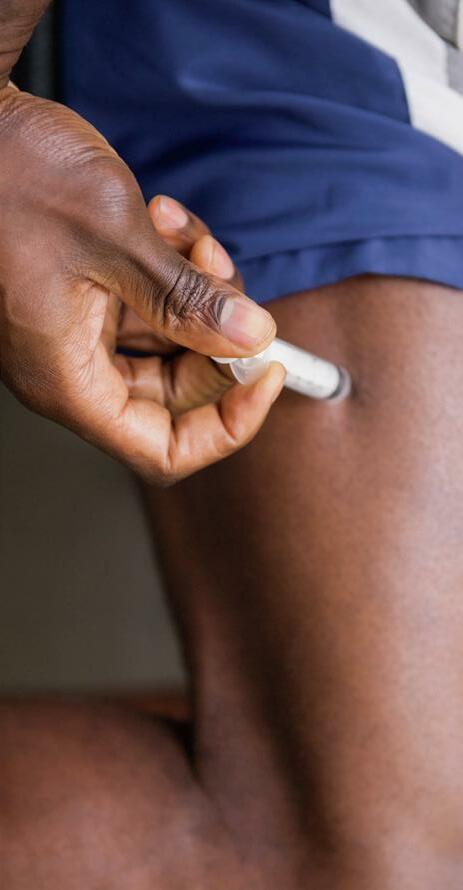
A new formulation of long-acting cabotegravir and alternative injection sites could potentially allow people to administer Cabenuva for HIV treatment or Apretude for pre-exposure prophylaxis (PrEP) at home. Currently, Cabenuva (cabotegravir and rilpivirine) is injected in the buttocks by a health care provider every month or every two months, while Apretude (cabotegravir alone) is given every other month. Scientists from ViiV Healthcare tested a high-concentration formulation of cabotegravir that contains twice as much active drug per volume, which reduces the size of the shots. In a study of HIVnegative volunteers, the experimental formulation injected into the butt, thigh or belly had similar safety and produced drug levels comparable to those of the current version. However, the drug didn’t last as long in the body, so monthly dosing would be necessary. Another study found that injecting cabotegravir and rilpivirine into the outer thigh muscle led to drug concentrations similar to those of buttocks injections, which could allow for self-administration.
CURE

15-Year Remission
A Barcelona woman has maintained an undetectable HIV viral load for more than 15 years after stopping antiretroviral treatment, researchers reported at the 24th International AIDS Conference. The woman was diagnosed with HIV during acute infection at age 59. She joined a small clinical trial testing a combination of immune-modulating therapies, including the immunosuppressive drug cyclosporine and three cytokines, chemical messengers that promote immune cell proliferation and activity. She undertook a planned treatment interruption, but her HIV did not rebound after stopping antiretrovirals. HIV RNA in her blood remained undetectable, and she experienced a progressive reduction in the hidden reservoir of inactive virus. What’s more, she had specific types of natural killer cells and CD8 T-cells that play a role in controlling HIV. The woman’s HIV is not completely eradicated—so she cannot be considered cured in the strictest sense—but her long-term remission may provide clues to help scientists develop strategies for a functional cure.
Heart Attack Risk CONCERNS
People with HIV face a rising risk for heart attack as they age, and this is magnified if they also have hepatitis C virus (HCV). Given that HIV and HCV are both associated with cardiovascular disease, researchers asked whether HIV/HCV coinfection increases the risk for type 1 myocardial infarction, the kind of heart attack caused by coronary artery disease. They analyzed data from 23,361 HIV-positive people on antiretroviral treatment; one in five also had HCV. During four years of followup, 1.7% of people with HIV alone and 1.9% with HIV/HCV coinfection had a type 1 myocardial infarction. Overall, having hepatitis C was not associated with a significantly higher heart attack rate. But the risk increased by 30% per decade for people with HIV alone, compared with 85% for those with both HIV and HCV. The researchers suggested that this might be due to increased inflammation in people with two chronic viral infections. The good news is that managing traditional cardiovascular risk factors, keeping HIV under control and getting treated for hepatitis C can reduce heart attack risk.

BY LIZ HIGHLEYMAN RESEARCH NOTES ALL IMAGES: ISTOCK (MODELS USED FOR ILLUSTRATIVE PURPOSES ONLY) 24 POZ DECEMBER 2022 poz.com
US Conference on HIV AIDS
SEPT 6-9, 2023 Marriott Marquis Washington, DC #2023uscha uscha.life




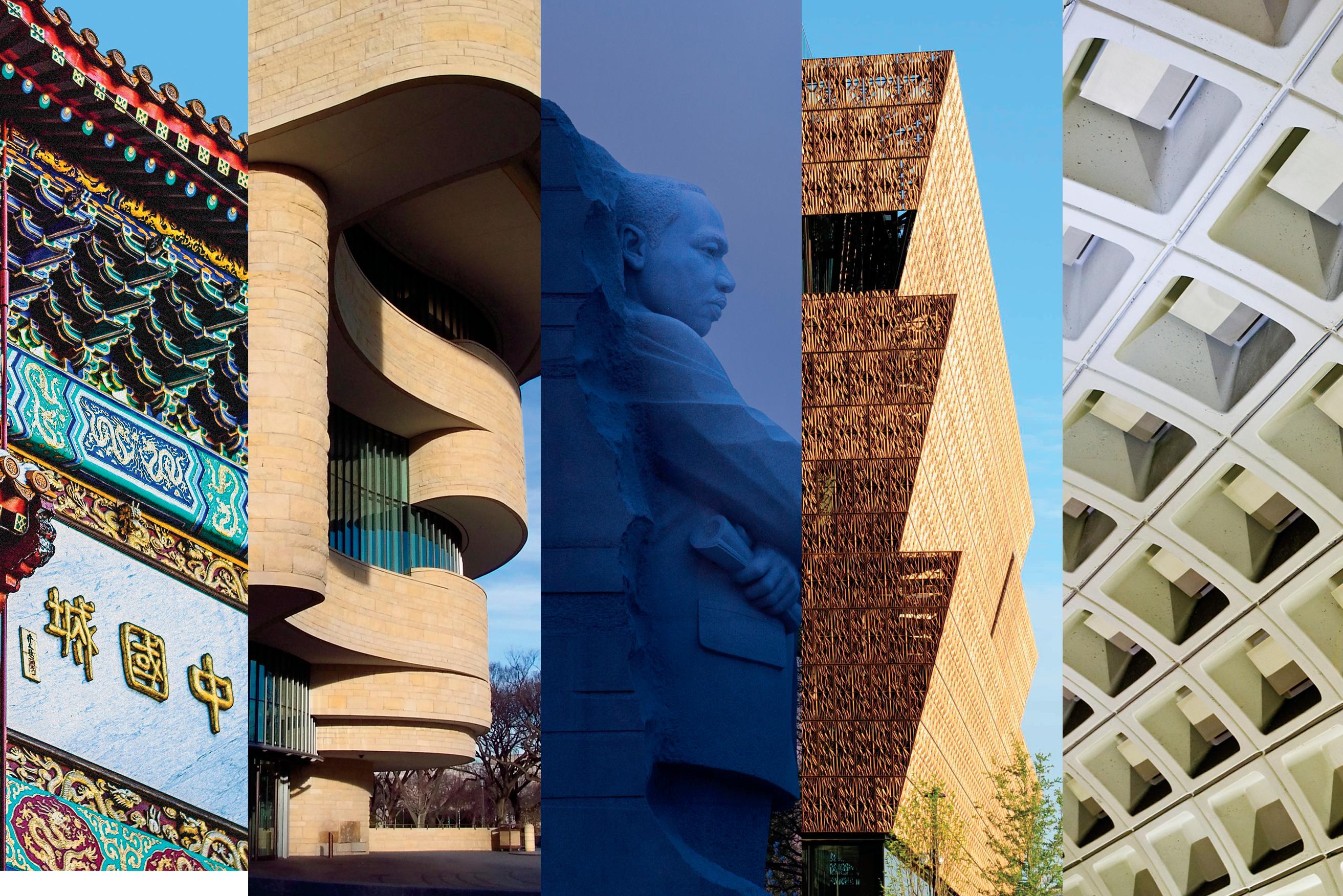
CELEBRATING LATINO ADVOCATES
THIS YEAR’S POZ 100 LIST CELEBRATES 100 LATINO ADVOCATES— both HIV positive and HIV negative—who are doing their part to end the HIV epidemic. We’re thrilled to spotlight these 100 individuals making an impact in their communities, across the country and around the world.
Latinos are disproportionately affected by HIV in the United States. They make up about 19% of the population but account for 25% of people with HIV and 29% of new diagnoses, according to the Centers for Disease Control and Prevention. Latinos have a lower likelihood of receiving HIV care (74%), remaining in care (59%) and achieving viral suppression (65%) compared with people living with HIV overall. Latinos are also less likely to be taking pre-exposure prophylaxis (PrEP) to prevent HIV.


Racism, homophobia and HIV stigma are some of the factors fueling the HIV epidemic in the Latino community. What’s more, for many Latinos, poverty, lower education levels, language barriers, mistrust of the health system and immigration status impede access to HIV care and prevention services.
This year’s POZ 100 honorees are addressing these social and structural barriers in an effort to achieve health equity. They are raising awareness about HIV and creating safe and supportive spaces for communities to come together. Whether grassroots or global, their efforts to fight HIV are making a difference.
The POZ 100 list represents only a small fraction of the work being done to combat HIV, but the individuals included on the list are as diverse as the Latino community itself. Some have been advocates since the beginning of the epidemic; others are new to the movement. We are grateful for their efforts and hope they inspire you as much as they inspire us.
26 POZ DECEMBER 2022 poz.com

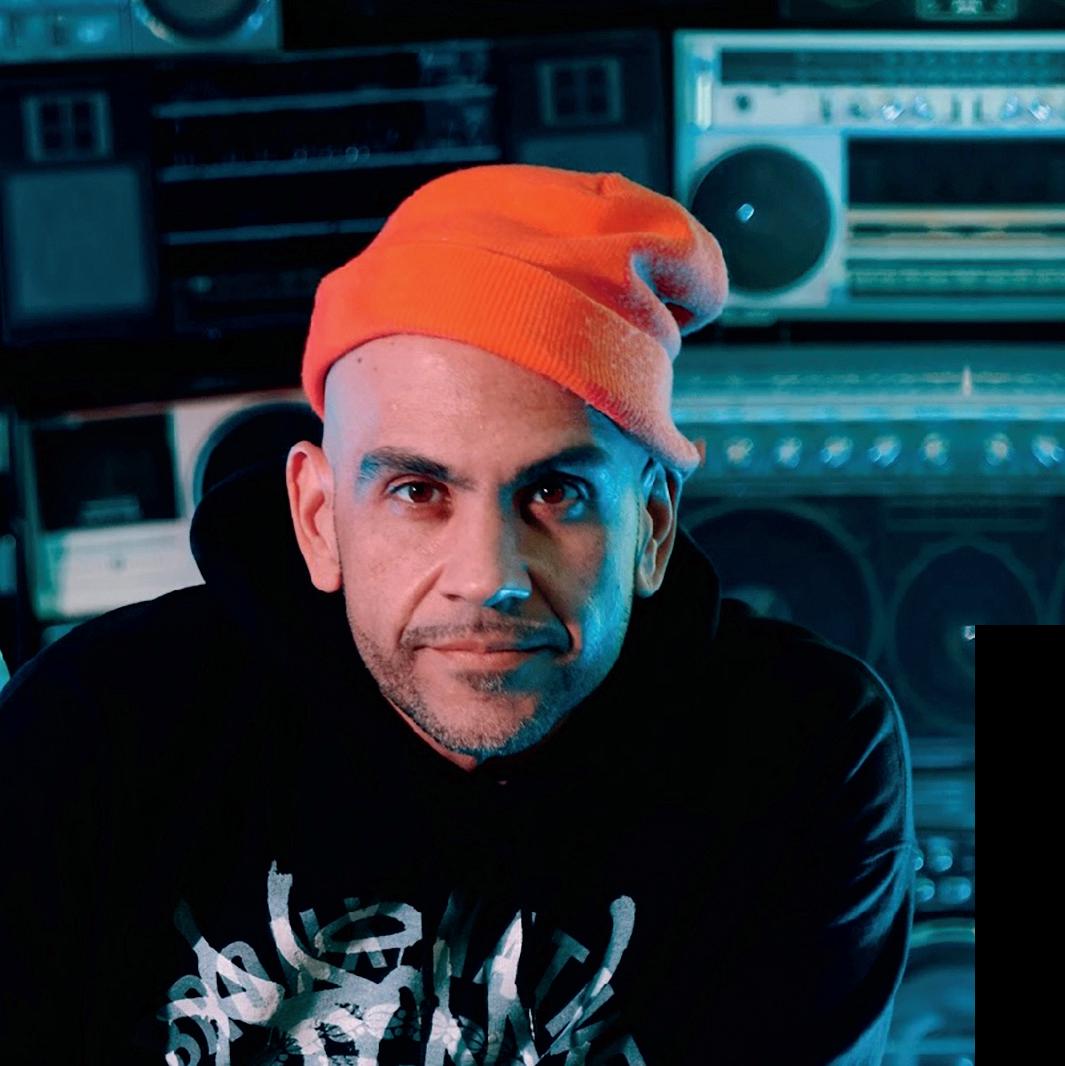
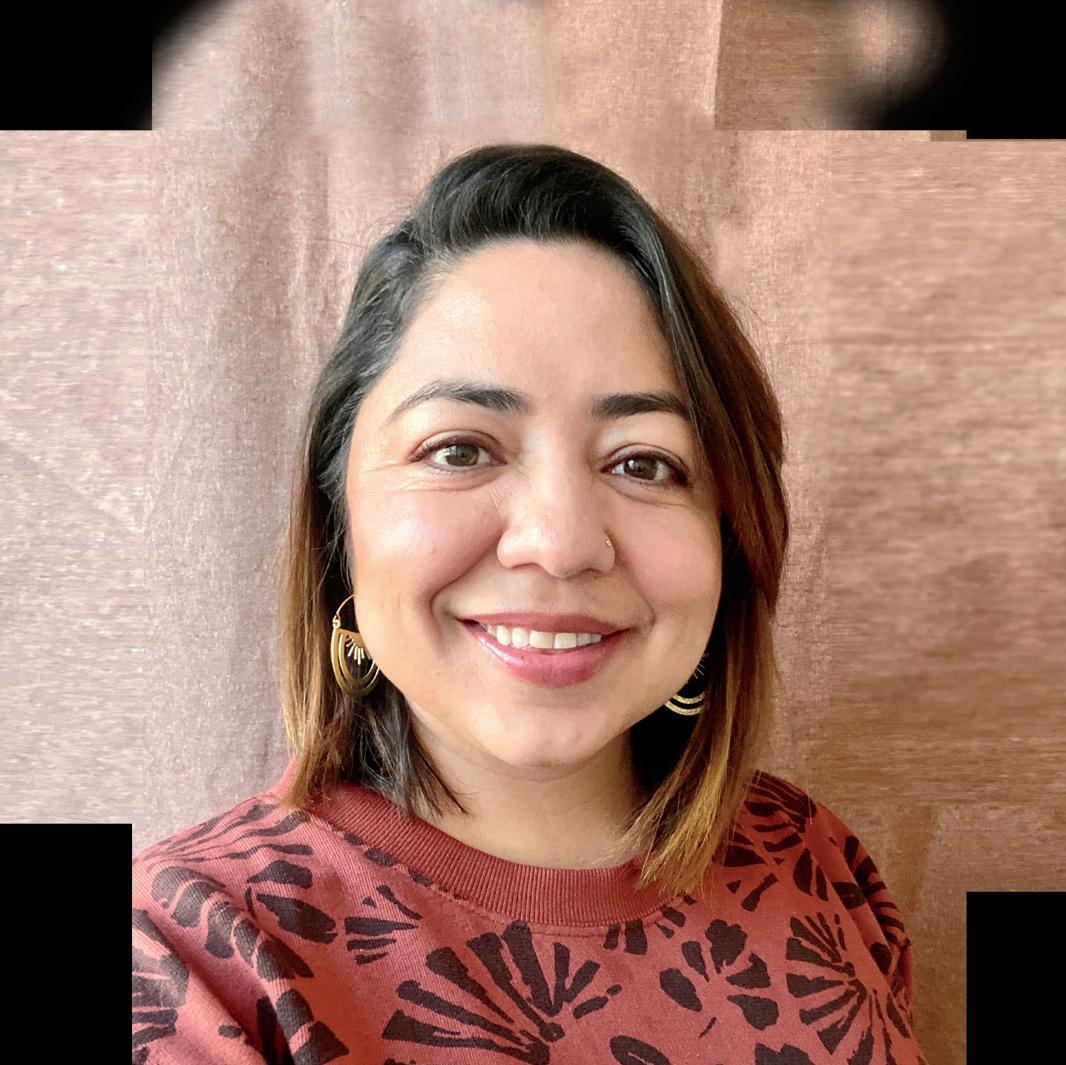
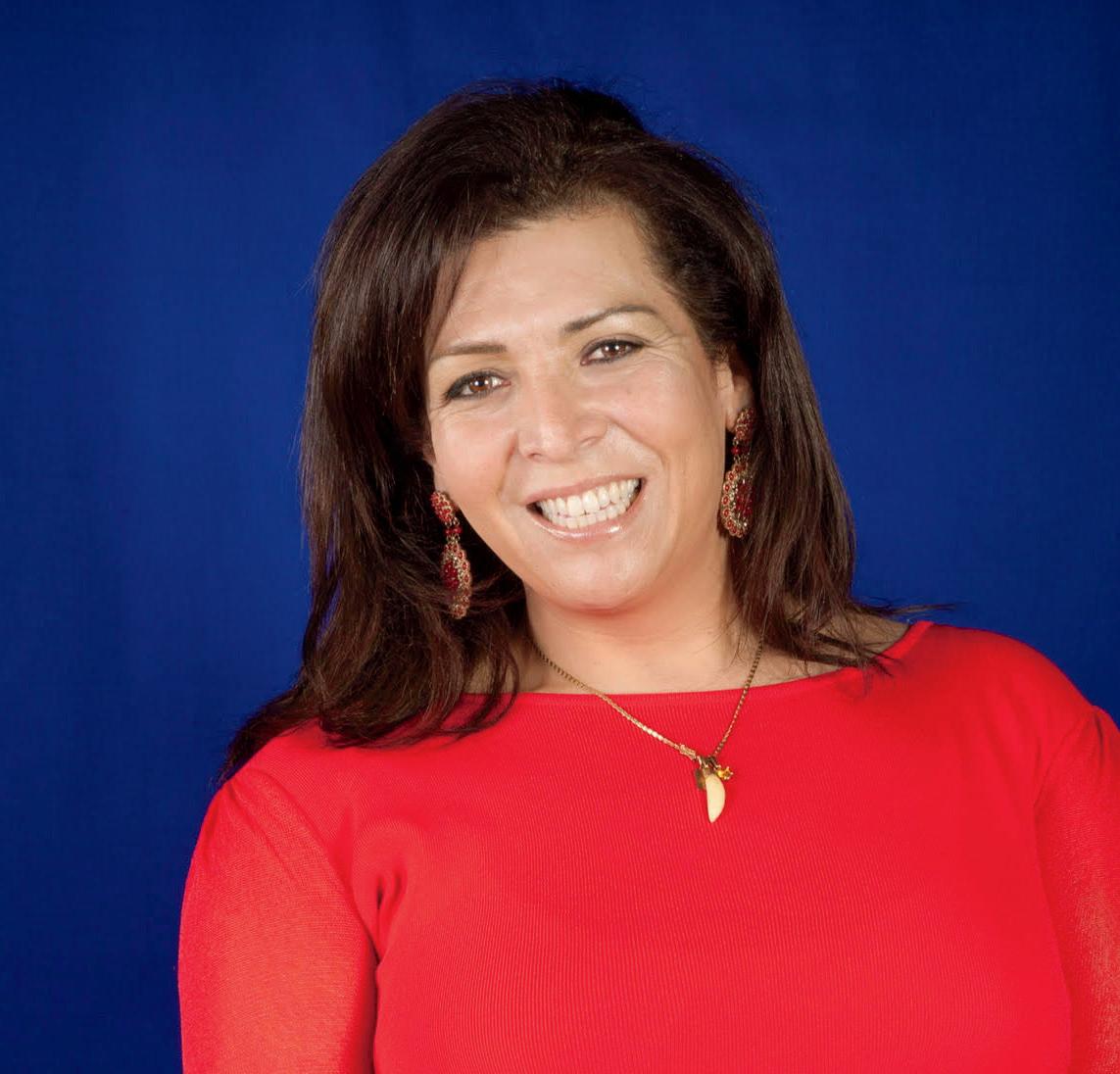
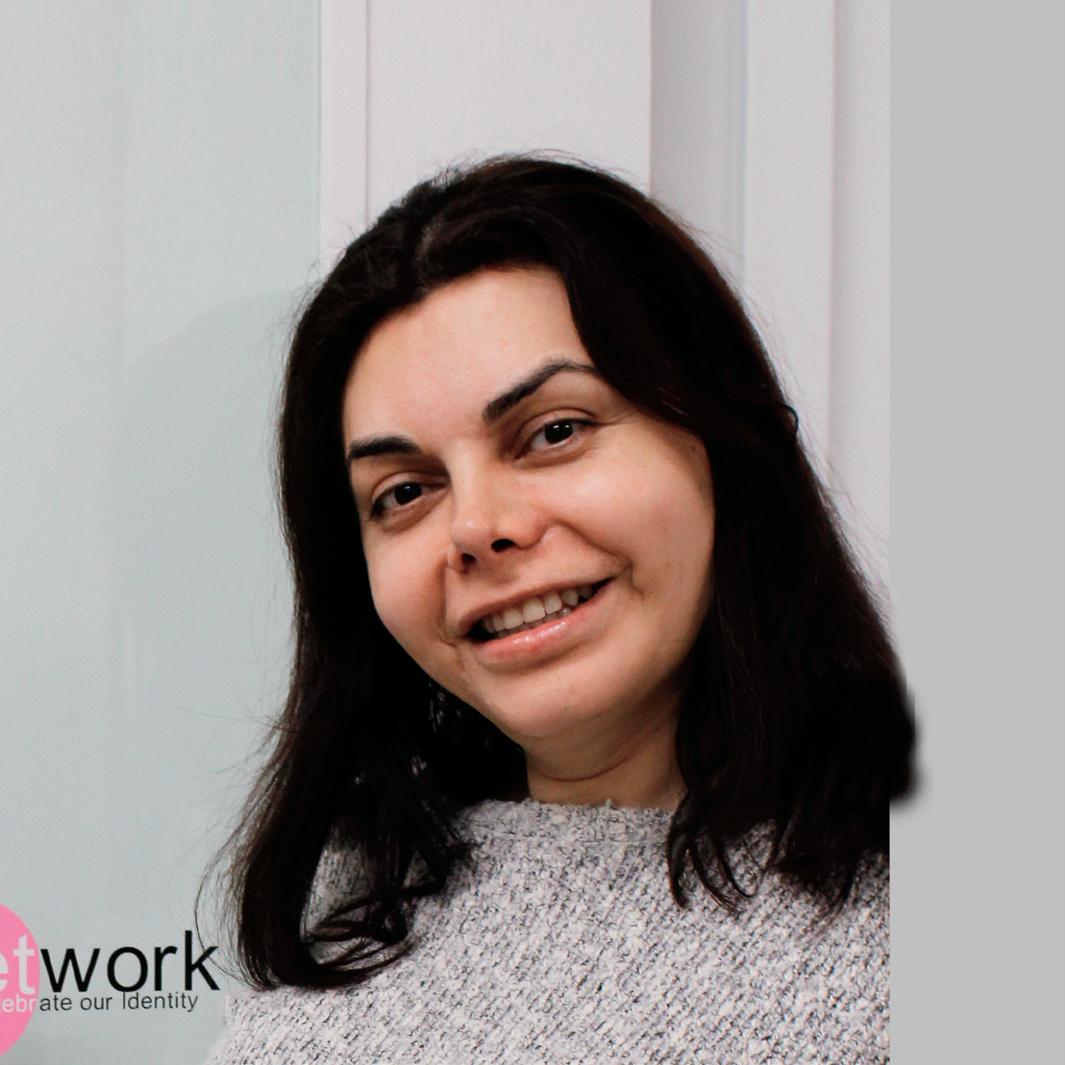
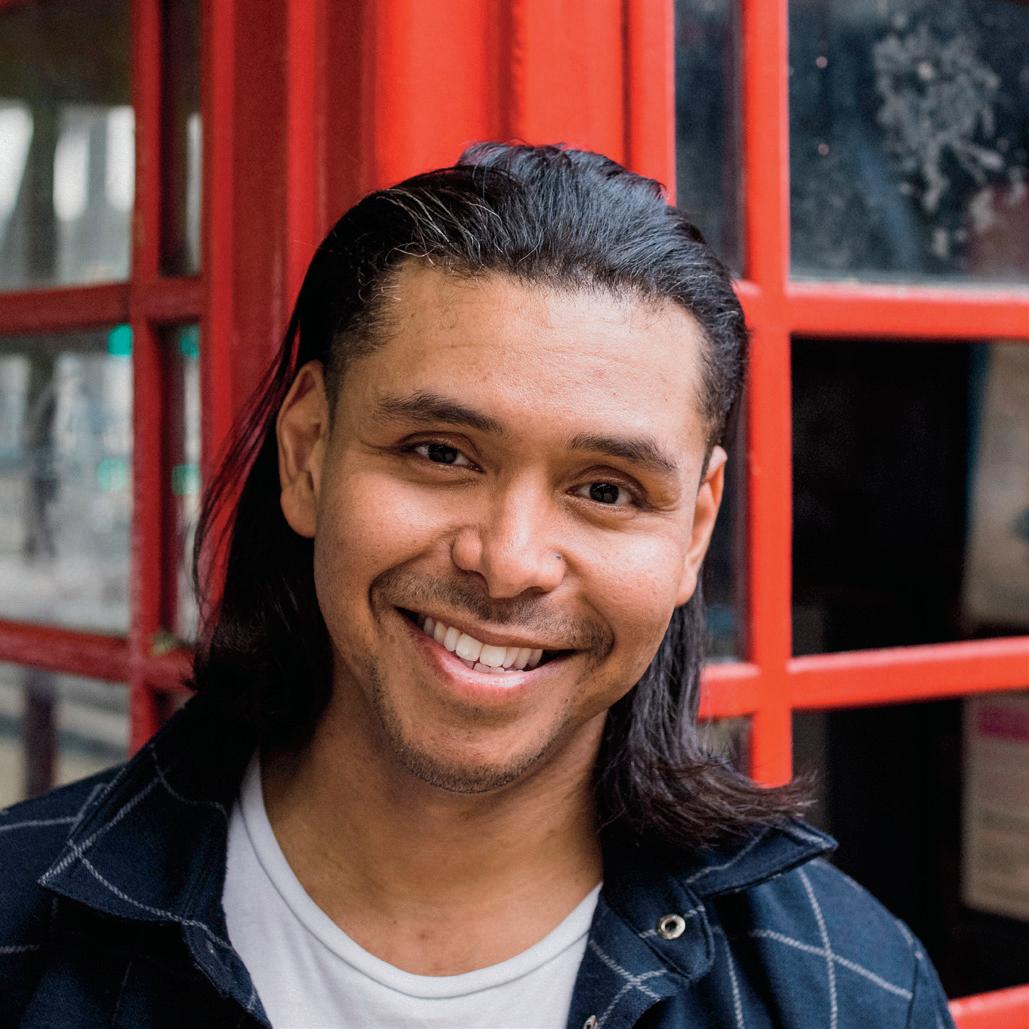
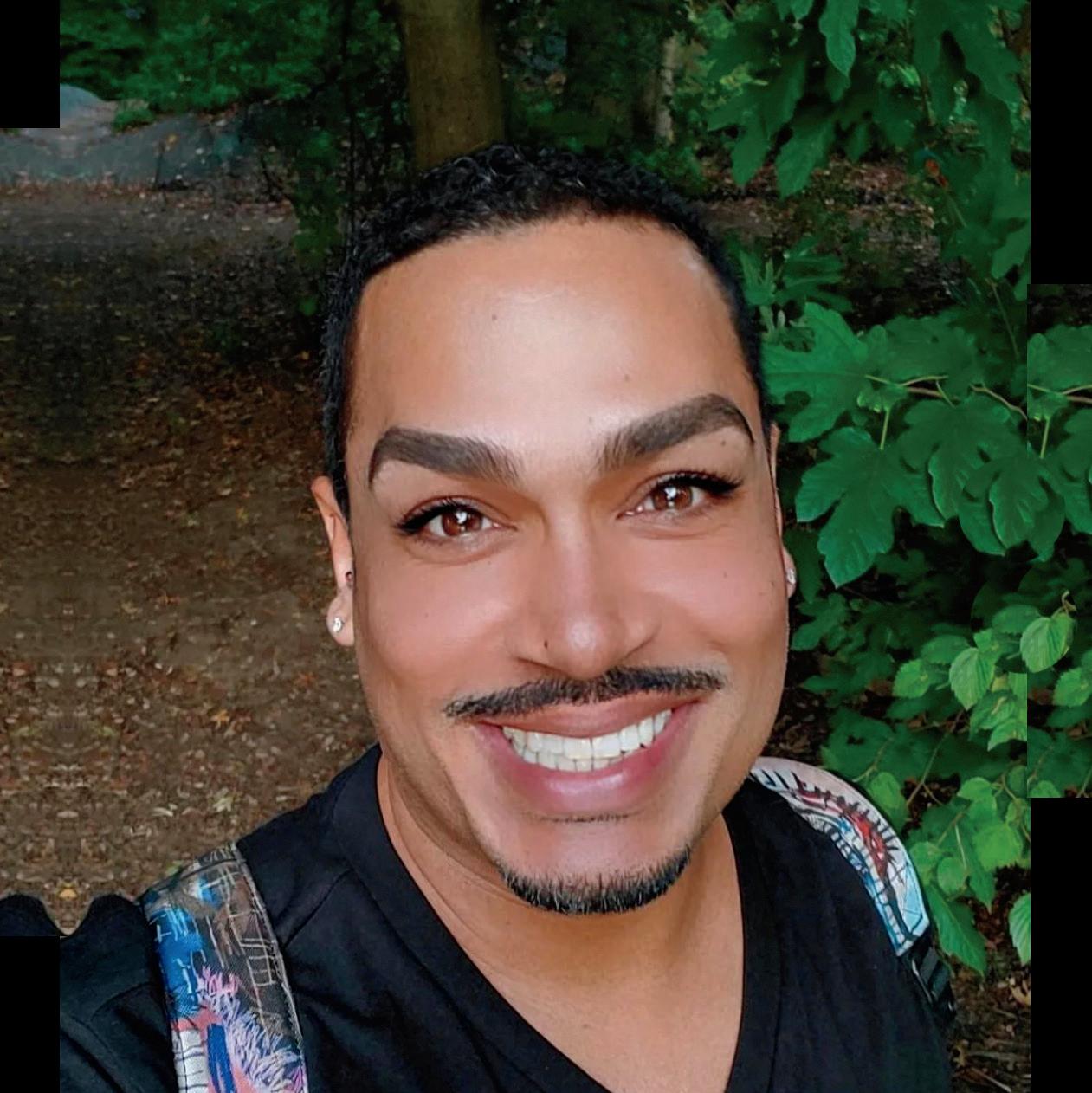
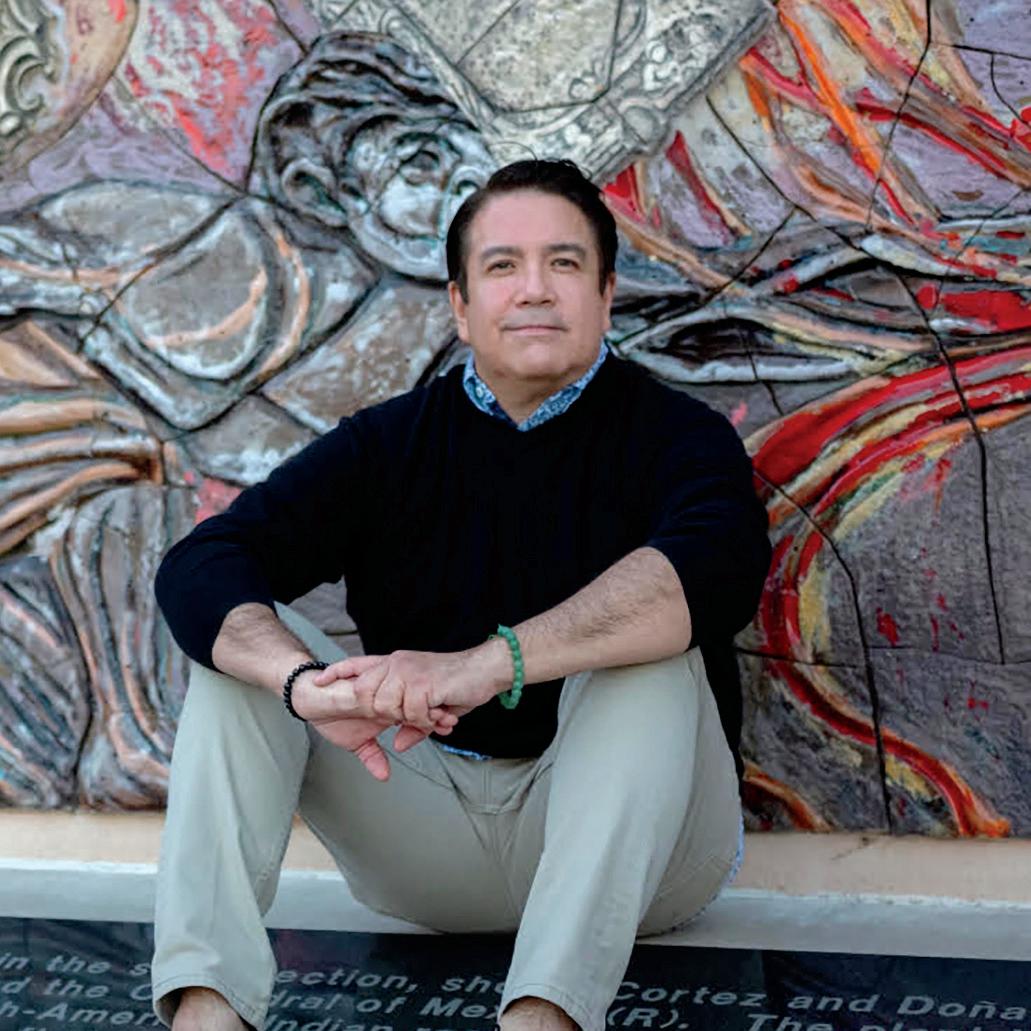
(CASTILLEJO) JON ATTENBOROUGH; (LÓPEZ) RODRIGO DAVILA; ALL OTHERS: COURTESY OF SUBJECTS
From top, left to right: Adam Castillejo, Grissel Granados, Oscar López, Javier Muñoz, Dominic Colón, Arianna Lint, Maria Christina Herrera and Luna Luis Ortiz
GONZALO ABURTO
New York, New York
Gonzalo Aburto is the Latin America initiative director for the anti–HIV criminalization group the Sero Project and a cofounder of LatinX+, an international network of Latino people living with HIV. His experience as a journalist has made him a whiz at disseminating information to the Latino gay and HIV communities. Gonzalo was the founding editor of POZ en Español and the executive producer of La Nueva Alternativa, a weekly radio program at WBAI. He founded Los Mexicanos and Águila o Sol, publications geared to the Mexican community, as well as HoMoVisiones, a Spanish-language cable TV program for the Latino LGBTQ community. He was a member of Activistas Latinos Contra el SIDA, the Latino group of ACT UP New York. He formerly worked at La Prensa, the oldest Spanish-language newspaper in the United States. Originally from Mexico, Gonzalo has been based in New York since 1986. He’s also this issue’s POZ Hero (see page 48).
ANDRÉS ACOSTA ARDILA
Winter Park, Florida
A nationally recognized HIV advocate, Andrés Acosta Ardila is the community relations manager for the Contigo Fund, the largest financial donor to LGBTQ causes in Central Florida. He’s also the director of respite operations for Peer Support Space in Orlando. Previously, Andrés was the program coordinator for the Central Florida HIV Planning Council at Heart of Florida United Way. He was also the program manager for the Maven Leadership Collective. He’s on the board of directors for LOUD (Latino Outreach and Understanding Division) powered by AIDS Healthcare Foundation and is a 2022 community ambassador for the Centers for Disease Control and Prevention’s (CDC) “Let’s Stop HIV Together” campaign. Previously, he chaired the Community Advisory Board for HIV vaccine trials at the Orlando Immunology Center.
MOISÉS AGOSTO-ROSARIO
Oxon Hill, Maryland
Moisés Agosto-Rosario has been a leader in the HIV community for over 30 years. Currently the director of treatment for NMAC (formerly the National Minority AIDS Council), the Puerto Rican native became an activist during the peak years of the AIDS crisis. In 1993, newly diagnosed and frustrated with the lack of research on and treatment information for people of color, he approached NMAC to discuss possible solutions. The result? He was hired as the group’s first-ever director of treatment education and advocacy. He has since advised researchers, scientists, providers, executives and community members on numerous issues related to HIV and AIDS. A poet, author, editor, activist and advocate, Moisés is a vital member of many
HIV groups and uses his dynamic voice and experience to address issues concerning aging with HIV.
JESÚS AGUAIS
New York, New York
In 1989, Jesús Aguais left his native Venezuela for New York City, where he witnessed firsthand the blossoming of the LGBTQ community and the harrowing AIDS epidemic surrounding it. He learned about ACT UP New York through a roommate and joined the group’s Latino caucus. Jesús worked as a counselor with the Hispanic AIDS Forum and at the HIV clinic at the former St. Vincent’s Hospital, where he saw the wide spectrum of people affected by AIDS. In 1996, Jesús founded Aid For AIDS (AFA), a nonprofit that recycles unused antiretrovirals (ARVs) and distributes them free of charge to people living with HIV worldwide. Since its inception, AFA has provided more than 20,000 people with HIV in 75 low- and middle-income countries with nearly $200 million worth of ARVs. It has served thousands of refugees and migrants from South and Central America and is currently responding to the crisis of asylum seekers arriving in New York City from Southern states.
PAUL AGUILAR San Francisco, California
A published writer, videographer and artist, Paul Aguilar is a third-generation San Franciscan of Mexican descent who was diagnosed with HIV in 1988 at age 25. He has long been a committed HIV and AIDS advocate and service worker. He volunteered at the Shanti Project for many years and is a member of the HIV Advocacy Network and chair of the HIV Caucus of the Harvey Milk LGBTQ Democratic Club. He’s also a resident and board member of Marty’s Place, the only self-governing affordable housing cooperative for people living with HIV and AIDS in the United States. Paul was a cofounding author of The San Francisco Principles 2020, which outline the unmet needs of long-term survivors in the city. His research on the impact of COVID-19 on HIV services prompted a hearing by the San Francisco Board of Supervisors, which led the city to apportion $3.3 million for HIV prevention in its 2022–23 budget. He recently started working as a long-term survivor community liaison with the aging services team at the San Francisco AIDS Foundation.
MYCAH LEE ARELLANO San Antonio, Texas
Mycah Lee Arellano has promoted HIV awareness throughout his 30 years of professional and volunteer experience. In 2001, he founded Project Insight to empower individuals by promoting their physical, mental and emotional wellbeing through creative healing and educational tools. He is a licensed and certified substance abuse clinician and
28 POZ DECEMBER 2022 poz.com
certified life coach who uses creative journaling as art therapy. Born in South Texas, he created the Eagle Talk Show, the first bilingual academic talk show in Texas. In 2019, he launched the podcast MycahOnMic, which focuses on health care issues, HIV education and mental health advocacy. Check out his educational—and inspirational— messages on social media.
DAMIÁN CABRERA-CANDELARIA San Juan, Puerto Rico
Damián Cabrera-Candelaria started working as the program manager for the treatment division at NMAC in April 2020 while the agency was in lockdown during the COVID-19 pandemic. He leads efforts to end the HIV epidemic by implementing programs targeting people living with HIV who are 50 and over and gay men of color. He’s also the founder of Puerto Rico’s LGBTQ Services Directory, a guide of LGBTQ-friendly health providers on the island. Damián holds a master’s degree in sociology from the University of Puerto Rico, where he worked as a programmatic adviser and research assistant for the graduate school of public health. While there, he interviewed gay men living with HIV to better understand the experiences around HIV in the aftermath of hurricanes Irma and Maria.
MARIA CAMACHO Corte Madera, California
Maria Camacho has been an HIV case manager at The Spahr Center in Corte Madera since 2011. Previously, she provided psychosocial services for people living with HIV at New Connections in Contra Costa County. Maria has devoted her career to ensuring that community members living with HIV in the San Francisco Bay Area have the support they need to thrive. At The Spahr Center, she formed a weekly Spanish language HIV support group that she facilitates. She also ensures that case management and financial assistance requests are available in Spanish to those living with HIV.
JP CANO Dallas, Texas
JP Cano, BSN, RN, joined the Resource Center of Dallas in 2008 and has been the prevention services director since 2016. He oversees the center’s HIV and sexually transmitted infection (STI) testing and pre-exposure prophylaxis (PrEP) programs as well as the Grupo Orgullo Hispano program, which promotes HIV education and prevention through social activities and group discussions. He was instrumental in the launch of the center’s mobile HIV and STI testing unit, SexyHealth, which has helped to eliminate barriers that prevent people from taking control of their sexual health. JP was previously a member of the Dallas HIV Task Force and was the cochair for the LGBTQ Creative Change conference held in Dallas in 2020.
WALLY CANTU Harlingen, Texas
A former kindergarten teacher, Wally Cantu transitioned into a career in public health after witnessing how inequality, inaccessibility and poverty can impact health outcomes. He has worked at hospitals, health clinics, schools and nonprofits in Austin, New York City and Washington, DC. Wally joined the Valley AIDS Council (VAC) in 2012 and became the organization’s executive director in 2016. Over the years, he has successfully developed and managed various education and wellness programs and strengthened and expanded the organization’s reach and stability through fundraising and grant proposals. Since 2015, VAC has organized and hosted the annual National Latinx Conference on HIV, HCV (hepatitis C virus), & SUD (substance use disorders).
JOAQUÍN CARCAÑO
Durham, North Carolina
Joaquín Carcaño was born and raised along the TexasMexico border in the Rio Grande Valley. His compassion for the HIV community grew out of his experience as an undergraduate volunteering at a hospice for people experiencing the final stages of AIDS. Since then, he has served in the Peace Corps, was the lead plaintiff in the lawsuit challenging the North Carolina “Bathroom Bill” (which restricted access to public facilities for trans people and did away with antidiscrimination protections for LGBTQ folks). He serves as a board member for the Southern AIDS Coalition, the LGBTQ Center of Durham and the ACLU of North Carolina. He’s currently the director of Southern health policy for Latinos in the South, a program of the Latino Commission on AIDS.


poz.com DECEMBER 2022 POZ 29 BOTH IMAGES: COURTESY OF SUBJECTS
Moisés AgostoRosario (left) and Damián CabreraCandelaria
ADAM CASTILLEJO London, England
Adam Castillejo, aka the London Patient, is the second person to be cured of HIV after receiving a bone marrow transplant (as part of treatment for blood cancer) from a donor with a rare genetic mutation that blocks HIV from entering the body’s T cells. The British Venezuelan first revealed his identity in 2020 in The New York Times, which quoted him as saying, “I want to be an ambassador of hope [for people living with HIV].” Since then, he continues to share his story and serve as an inspiration for cure research. He was interviewed by journalist Christiane Amanpour on CNN, and in June, he was featured on the cover of POZ. “Life is so precious,” Adam says. “When they told me I was going to die, I realized the importance of enjoying life the best way you can.”

CHRISTIAN CASTRO Chicago, Illinois
Christian Castro got his start working in public health in his late teens as an intern at the New York City Office of Gay & Lesbian Health. While a graduate student at the University of Maryland, College Park, he was diagnosed with HIV. In 2011, Christian joined the Latino Commission on AIDS, working to fight HIV in Latino communities in the South. In 2014, he joined the RADAR research team at Northwestern University’s Institute of Sexual and Gender Minority Health and Wellbeing. Last spring, he became the senior manager of Getting to Zero Illinois (GTZ-IL), a statewide initiative—developed with community input— that aims to end the HIV epidemic by 2030. The plan serves as a statewide blueprint and is a partnership between the Illinois and Chicago departments of health and the AIDS Foundation of Chicago. GTZ-IL aims to engage and mobilize community members throughout Illinois to advocate on the state and local level for systems that increase linkage to care, HIV testing, access to PrEP and HIV-dedicated housing.
GUILLERMO CHACÓN New York, New York
Since 2010, Guillermo Chacón has led the Latino Commission on AIDS (LCOA), where he advocates for HIV prevention and overall health care for Latinos. As a youth in El Salvador, he was encouraged by his parents to serve his community by volunteering at the family’s local parish. His compassion for others and sense of community is central to his work. In addition to his role at LCOA, he is a member of the Presidential Advisory Council on HIV and AIDS (PACHA) and serves on the New York State Minority Health Council. He’s a member of the National Hispanic/ Latinx Health Leadership Network and the founder of
the Hispanic Health Network. He serves on the boards of the New York City AIDS Memorial and the New York Immigration Coalition and is also an adviser for Alianza Americas and AIDSVu.org. In 2003, Guillermo helped launch National Latino AIDS Awareness Day. “You always have to pay attention to who is less visible,” he says.
ELIA CHINÓ Houston, Texas
Elia Chinó is the founder and executive director of Fundación Latinoamericana de Acción Social (FLAS). The Houstonbased HIV nonprofit serves the city’s Latino community and launched Project Vive to help educate Spanish speakers about HIV and expand testing for the virus. Elia formed FLAS in 1994 after losing many friends to AIDS. Born in Michoacán, Mexico, Elia has called Houston home for over 37 years. She is a former member of the City of Houston’s Community Planning Group and the former chair of the city’s Latino HIV Task Force. She has said her dream is to decrease health disparities in Houston and surrounding areas.
DOMINIC COLÓN Bronx,
New York
An award-winning writer, actor and director, Dominic Colón is the author of The War I Know, a play about the impact of HIV on the Latino community in the Bronx. The play won the inaugural Write It Out! Prize given to a playwright living with HIV. His film Crush won the Short Film Script Competition Award in the New York International Latino Film Festival. He has appeared in over 60 films and television shows, including Power, Bull and Orange Is the New Black. Currently, Dominic has projects in development at Hulu and other platforms and is a writer on the upcoming Netflix series Pink Marine, produced by television legend Norman Lear.
BEN CUEVAS
Los Angeles, California
Sex-positive artist Ben Cuevas’s work is rooted in concepts of otherness and intersectionality and inspired by his experience as a queer, nonbinary Latinx living with HIV. He earned his BA in mixed media, installation and photography at Hampshire College in 2010. Ben’s artwork, often based in textiles, has been exhibited at Craft Contemporary (formerly the Craft and Folk Art Museum) in Los Angeles, the Museum of the City of New York, the Leslie-Lohman Museum in New York City and others. He recently participated in an exhibit at San Francisco State University. His work is featured in several books, including Duets: Ben Cuevas & Annie Sprinkle in Conversation, published by Visual AIDS, and Queer Threads: Crafting Identity and Community, edited by John Chaich and Todd Oldham.
30 POZ DECEMBER 2022 poz.com
CHRISTOPHER J. CUEVAS Durham, North Carolina
After the 2016 mass shooting at the gay nightclub Pulse in Orlando, Christopher J. Cuevas cofounded and served as the executive director of QLatinx, a racial, social and gender justice movement working toward advancing LGBTQ and Latino issues. Diagnosed with HIV in 2017, Christopher currently works as the program manager of the LGBTQ+ Equality Program at the progressive Laughing Gull Foundation, which typically funds grassroots organizations engaged in direct service, organizing, advocacy and culture change work. They also serve on the board of the Peace and Justice Institute. In 2017, Christopher received Equality Florida’s 2017 Voice of Equality Award, and in 2018, they were named an American Graduate Champion by PBS. A lifelong peace practitioner, educator and community organizer, Christopher has led conversations and facilitated campaigns addressing structural racism, health equity and LGBTQ issues.
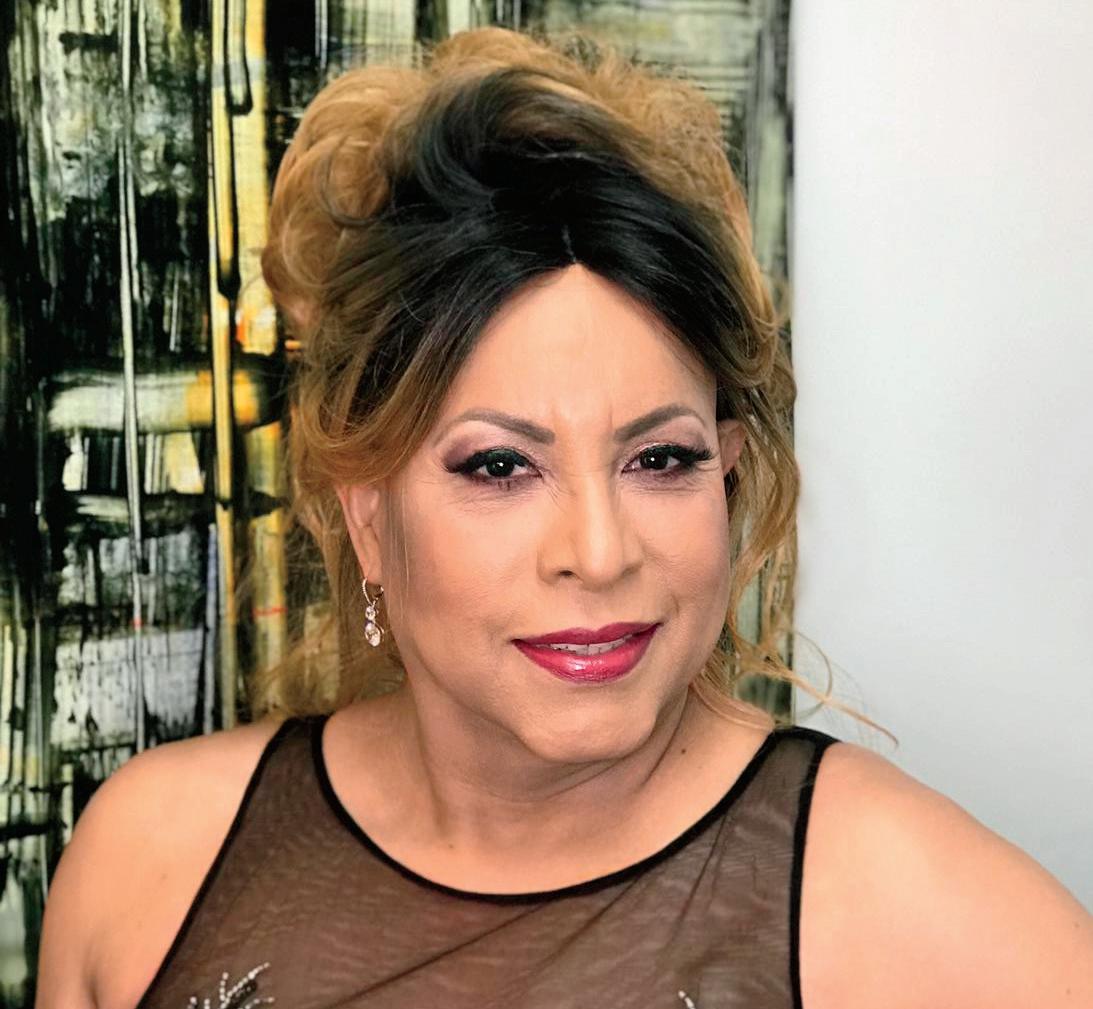
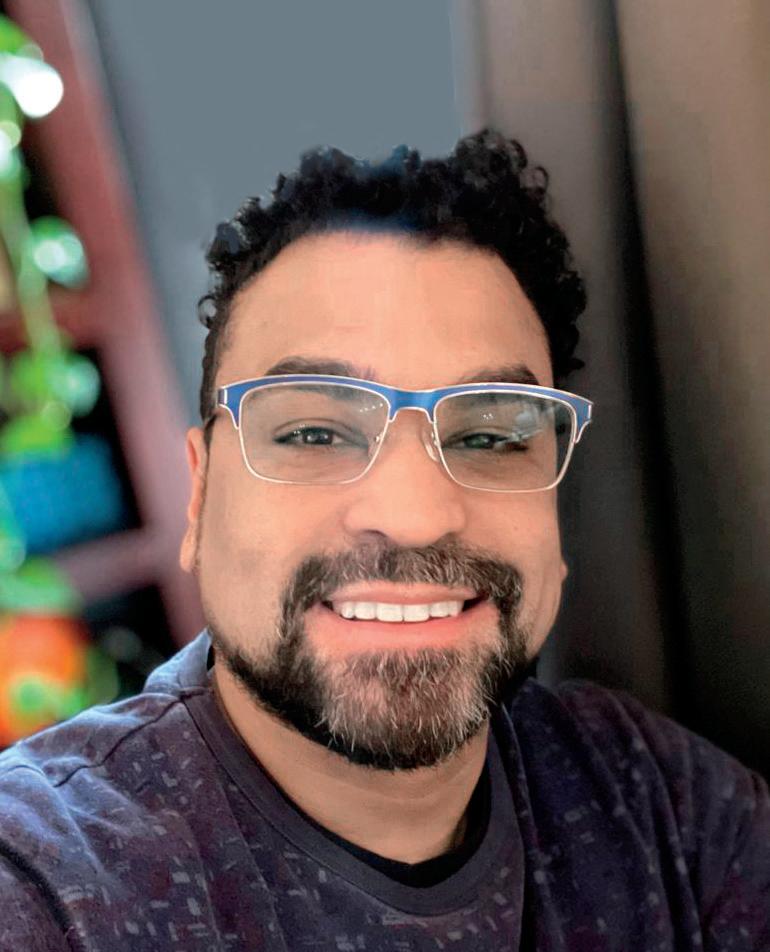
OSCAR DE LA O
Los Angeles, California
Oscar De La O is a founding member of Bienestar Human Services, the largest Latino HIV organization in the country. After three decades as president and CEO and following a diagnosis of pulmonary fibrosis, Oscar stepped down to provide opportunities for new leaders and currently serves as Bienestar’s vice president. He has spent the last 38 years as an advocate for Latinos and other underserved communities impacted by HIV and AIDS. Since 1989, Bienestar (“well-being” in Spanish) has grown from hosting weekend meetings in Southern California to providing in-depth programs at nine locations that offer HIV treatment and prevention, comprehensive social services, full-service medical care, substance use counseling and mental and sexual health education for the Latino community. Oscar previously served on the board of NMAC and continues his involvement with other social justice organizations addressing equality for underserved communities. Oscar’s mother taught him that to live a meaningful life, one must create positive change in other people’s lives, and that’s exactly what he’s done.
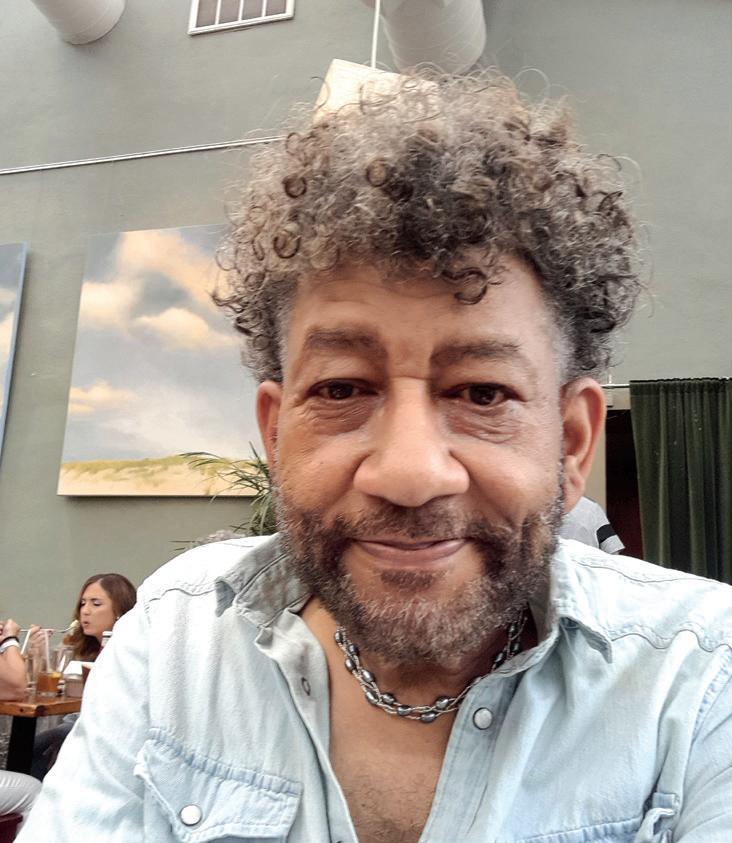
JOSE DE MARCO Philadelphia, Pennsylvania
In 2020, longtime HIV and Latino rights activist Jose de Marco founded Black and Latinx Community Control, an intergenerational group of LGBTQ+ people of color negatively impacted by health systems built on racism, oppression and bias. The group’s mission is to end HIV and regain control of health care in Black, Indigenous and people of color communities. In 2012, Jose won the David Acosta Revolutionary Leader Award. He has been a member of AIDS Policy Project, Health Global Access Project and ACT UP Philadelphia. He’s also a former board member of Galaei and the founder of Proyecto SOL, a leadership organization for Latinos living with AIDS. He advocated for funding for Philadelphia FIGHT’s Project TEACH (Treatment Education Activists Combating HIV) Latino, which offers classes for Spanish speakers living with HIV. He’s currently organizing for overdose prevention centers to combat overdose deaths and spiking HIV infections in those who inject drugs.
CARLOS DEL RIO Atlanta, Georgia
A native of Mexico, Carlos del Rio, MD, completed his residency at Emory University. He served as the executive director of the National AIDS Council of Mexico from 1992 to 1996, before returning to Emory to focus on patient care, teaching and research. He is currently a distinguished professor of medicine in the Division of Infectious Diseases at Emory University School of Medicine, executive associate dean for Emory School of Medicine at Grady Memorial Hospital, professor of global health in the Department of Global Health and professor of epidemiology at the Rollins School of Public Health. Carlos is also codirector of the Emory Center for AIDS Research and co–principal investigator of the Emory–Centers for Disease Control and Prevention (CDC) HIV Clinical Trials Unit and the Emory Vaccine and Treatment Evaluation Unit. At the start of the COVID-19 pandemic, he advised municipal, state and national leaders on their response to the novel coronavirus and helped develop safety strategies for the Atlanta Opera and Tyler Perry Studios.
poz.com DECEMBER 2022 POZ 31 ALL IMAGES: COURTESY OF SUBJECTS
From left: Christian Castro, Elia Chinó and Jose de Marco
BRENDA DEL RÍO GONZÁLEZ

Los Angeles, California
Brenda del Río González is a transgender woman originally from Michoacán, Mexico, who has been living with HIV for the last 27 years. Brenda has been combating prejudice and fighting HIV in the Los Angeles transgender community since the 1990s. In her current role as the program manager at Bienestar Human Services, she works closely with trans clients to empower them to create positive change in their lives and offers them social and health services. She also leads Transgender United, a Spanish-language support group for transgender women in Long Beach.
ELIAS DIAZ
Eagle Pass, Texas
Elias Diaz wears many hats in his hometown hamlet of Eagle Pass, Texas. He is the cofounder of Eagle Pass SAFE, an LGBTQ nonprofit serving the rural communities along the Texas-Mexico border, as well as a member of the Eagle Pass City Council. He is a mental health clinician for the Maverick County Hospital District, and he created the
Sexual Health Project to address the gaps in care for people in the community living with HIV. And he even teaches spinning at a local gym! Elias is valiantly stepping up to battle each of the challenges—immigration, homophobia, stigma, lack of funding and more—that HIV and LGBTQ communities in small rural towns like Eagle Pass face.

YOLANDA DIAZ New York, New York
Yolanda Diaz has been advocating for women living with HIV for more than 30 years. She is a founding member of the New York City chapter of Positive Women’s Network–USA (PWN-USA). For eight years, she worked with SMART (Sisterhood Mobilized for AIDS/HIV Research & Treatment) University, helping women access HIV treatment and other services. She is on the steering committees of LatinX+, a network of Latinx people living with HIV, and the U.S. PLHIV Caucus, which speaks collectively for HIV-positive people in the United States. As a health educator at Iris House—the longtime New York City nonprofit for women living with or at risk of acquiring HIV— Yolanda helps women navigate HIV services. Living with HIV since 1980, she recently joined NMAC’s 50+ Strong & Healthy program.
CARLOS X.
DÍAZ RODRÍGUEZ
Orlando, Florida

Carlos X. Díaz Rodríguez, a community organizer and artist, started working for QLatinx as an HIV testing counselor after his cousin was shot at the gay nightclub Pulse; he now leads QLatinx’s HIV justice program. He also runs ¡Hablando Alto! (Spanish for “speaking loudly!”), the organization’s capacity-building and skill development program for those seeking to address the HIV epidemic in their local communities. He’s also the president of Central Florida’s Latino Outreach and Understanding Division (LOUD). He received the Central Florida HIV Planning Committee’s Unseen Hero Award in 2018 and was named the official artist of the United States Conference on AIDS in 2018. Carlos uses his art to empower disadvantaged communities.
ALEIDA ESPINAL FERNÁNDEZ
Charlotte, North Carolina
Aleida Espinal Fernández is the North Carolina community organizer for Latinos in the South, a program created by the Latino Commission on AIDS to address barriers to HIV care in the region. Originally from the Dominican Republic, Aleida has more than 14 years of experience working in HIV outreach, prevention and education as a Ryan White medical case manager at Carolinas Care Partnership and RAIN. Her community-building efforts for Latinos in the South will support better access to care
32 POZ DECEMBER 2022 poz.com ALL IMAGES: COURTESY OF SUBJECTS
From top: Edric Figueroa, Aleida Espinal Fernández and Mikey Forbes
and access to pre- and post-exposure prophylaxis (PrEP and PEP) for Latinas as well as Medicaid expansion.
CAESAR ESPINOZA Las Vegas, Nevada
Caesar Espinoza is proud of his work as a volunteer facilitator, advocate and peer navigator for Dignity Health, where he runs workshops such as the Positive Self-Management Program, the Chronic Disease Self-Management Program and the Diabetes Self-Management Program. He was also recently certified as an HIV tester. Caesar helps those living with HIV and other chronic diseases work through red tape so that they can receive the best-quality health care. He was recently elected to the Clark County Ryan White Part A Planning Council and is an active member of Nevada’s Advisory Task Force on HIV Exposure Modernization, which aims to reform outdated Nevada laws that criminalize and stigmatize people living with HIV.
IVÁN ESPINOZA-MADRIGAL Boston, Massachusetts
Iván Espinoza-Madrigal is the executive director of Boston’s Lawyers for Civil Rights, one of the largest and oldest organizations in New England working on legal and policy issues at the intersection of racial justice, immigration, public health and entrepreneurship. Ivan is best known for his work on these topics as well as education, housing, voting and LGBTQ rights. The group filed the first lawsuit against Florida Governor Ron DeSantis alleging that he violated migrants’ constitutional rights by fraudulently inducing Venezuelan asylum seekers to fly from San Antonio to Martha’s Vineyard, Massachusetts. His organization recently championed a major discrimination case on behalf of a cadet living with HIV against the U.S. military. An expert in legal protections for people of color and immigrants, he previously worked for Lambda Legal on marriage equality cases and with LGBTQ people of color. He also served as the legal director for the Center for HIV Law and Policy.
EDRIC FIGUEROA Atlanta, Georgia
Edric Figueroa is a first-generation queer Peruvian American who was born in New York and raised in Georgia. He spent six years in Seattle working with LGBTQ survivors of violence and LGBTQ youth as well as with families. These days, Edric lives in Atlanta, where, as the director of the Zero Campaign for the Latino Commission on AIDS, he coordinates annual awareness campaigns to fight homophobia and transphobia. He’s also a volunteer HIV testing counselor and board member for Latino LinQ. Edric previously served as the coalition coordinator for Act Now: End AIDS, a national coalition committed to ending the HIV epidemic in the United States. He wrote an essay about
how growing up in the South with an abstinence-only education sparked a passion for HIV prevention and LGBTQ health that appeared in the anthology Between Certain Death and a Possible Future: Queer Writing on Growing Up with the AIDS Crisis
ANSELMO FONSECA San Juan, Puerto Rico
A long-term HIV survivor, Brooklyn-born Anselmo Fonseca has been involved in HIV activism for over 20 years, focusing on the needs of the people of Puerto Rico and the challenges they face, such as stigma, discrimination and the complexities of the island’s health care system. He serves as the Ryan White Part B Community cochair, cofounder and facilitator of the Coalition Cero HIV PR (supported by AIDS United), AIDS United’s program manager in Puerto Rico and the Puerto Rico Undetectable Equals Untransmittable (U=U) ambassador for the Prevention Access Campaign. In 2010, he was named one of the 350 most influential national advocates by the Obama administration.
JULIO J. FONSECA Washington, DC
After receiving his HIV diagnosis, Julio J. Fonseca felt compelled to work as an HIV advocate. Today, he is the senior program manager for AIDS United, a position to which he brings 25 years of experience in advocacy, coalition development, capacity building and community outreach. As the leader of the Conexiones Positivas/Positive Connections, Partnering and Communicating Together initiative and the People Organizing Positively project, he focuses directly on supporting people impacted by HIV. He also leads the Puerto Rico–based projects for the organization. Julio volunteers as a mentor for people who are newly diagnosed with HIV at Whitman-Walker Health and previously worked with Mental Health America and the HIV Medicine Association.
MIKEY FORBES Chicago, Illinois
A guiding light in the HIV community, Mikey Forbes has been working in HIV prevention since they were in their teens. For the past five years, they have been the prevention program manager at the social service agency Chicago House. Their work focuses on the Black and Latino communities and centers on harm reduction, neurodiversity and traumainformed care. They also often work with the LGBTQ community, sex workers and people who inject drugs. Mikey advocated relentlessly for the acquisition of a new mobile HIV testing unit, which has been a vital asset during the COVID-19 pandemic. They also facilitate quarterly HIV testing trainings for public health apprentices.
poz.com DECEMBER 2022 POZ 33
MONCIES FRANCO SR. Minneapolis, Minnesota
Moncies Franco Sr. is an advocate for people living with HIV as well as individuals impacted by the criminal justice system. He’s a project coordinator for the Health, Homelessness, and Criminal Justice Lab, which conducts research with a focus on improving the health of people experiencing homelessness or incarceration. He also serves on the board of directors of the Aliveness Project, is a U=U ambassador and has been a part of the “End HIV MN” campaign since 2020. Moncies uses his lived experience to educate, spread awareness and empower others to lead self-directed lives. He’s committed to reducing stigma and eliminating barriers to health for marginalized communities.
DANIEL G. GARZA Laguna Beach, California
Daniel G. Garza is an HIV and cancer survivor, health advocate, language justice activist, stand-up comic, actor and spiritual coach. Within months of his HIV diagnosis in 2000, he was volunteering at the Valley AIDS Council in McAllen, Texas. Following this humble start, he lobbied for HIV information to be made available in Spanish and spoke at local schools and community groups before moving to Houston, where he worked with the Thomas Street Clinic and Family Services of Greater Houston as an educator and community organizer. Since his move to California, his advocacy has grown to include membership on Janssen Pharmaceuticals’ Positively Fearless team and on the board of Radiant Health Centers. He also works with NMAC on language justice issues. Together with his partner, Christian, he owns Lilmesican Productions, which produces shows that support the health of the Latino community.
CECILIA GENTILI
New York, New York
Born in Argentina, Cecilia Gentili came to the United States in search of a safer life. She began earning a living through sex work, which led to drug use and made her a target of the police and immigration officers. In time, she was able to access recovery services and gain asylum. Her work in the community began at The Lesbian, Gay, Bisexual & Transgender Community Center in New York City. She went on to develop a transgender health program at the Apicha Community Health Center. In 2016, she started working on policy issues for GMHC, where she focused on the decriminalization, decarceration and destigmatization of sex work. In 2019, she founded Trans Equity Consulting, a nonprofit that works to establish equity in the workplace. Cecilia also founded DecrimNY, which seeks to improve the lives of people engaged in sex work, and recently released her memoir, Faltas: Letters to Everyone in My Hometown Who Isn’t My Rapist.
LILLIBETH GONZALEZ New York, New York
Native New Yorker Lillibeth Gonzalez is a warrior in the fight against HIV and its stigma. She has survived domestic abuse, addiction and the HIV-related deaths of three siblings as well as her own 1992 HIV diagnosis. Today, she’s a community health organizer for the nonprofit GMHC and a vocal advocate for people aging with HIV and living with lipodystrophy and other medication side effects. She’s a U=U global ambassador, a member of NMAC’s 50+ Strong and Healthy program, the New York City chapter of PWN–USA and SisterLove’s 20/20 Leading Women’s Society. Plus, she leads the support group Thriving at 50 and Beyond. Lillibeth has received several awards for her work and activism and continues to inspire and encourage women to get educated and take charge of their sexual health.
GRISSEL GRANADOS
Whittier, California
Grissel Granados, MSW, who has been living with HIV since birth, has dedicated her life to fighting HIV, especially among youth. (She had a good teacher—her mother, Silvia Valerio, is also on this year’s list.) An HIV advocate since age 12, Grissel was appointed to PACHA in 2014. She codirected and coproduced the documentary We’re Still Here, which shares the stories of the first-generation of people born with HIV. She was recently hired as deputy director of The Well Project, an HIV advocate group that focuses on women and girls. She feels that “a gender and racial justice approach is the only way to make an impact on the HIV epidemic.”
RICK GUASCO Chicago, Illinois
After his HIV diagnosis in 1992, Rick Guasco received three publications from the Test Positive Aware Network (TPAN), which is when he realized that information was the key to his survival. Today, he’s educating others as the creative director of Positively Aware, published by TPAN. He was recently named the magazine’s acting editor-in-chief. Rick also created A Day with HIV, the magazine’s annual anti-stigma campaign, which uses selfies to portray 24 hours in the lives of people affected by HIV. He posts a photo of his HIV meds to social media every day as a way to normalize life with HIV and reduce stigma. (It also helps him remember to take his pill!) Rick has also been a vocal advocate for cancer prevention since his own experience with anal cancer. An avid Star Trek fan, he likes to quote the Vulcan saying “We are here to serve.”
MONDO GUERRA

Brooklyn, New York
In 2010, fashion designer Mondo Guerra revealed that he was living with HIV during season 8 of the reality series
34 POZ DECEMBER 2022 poz.com
Project Runway. The fashion maven, who is known for his bold designs, went on to win the debut season of Project Runway All Stars and served as a mentor on Under the Gunn, another spinoff of the original series. Mondo uses his voice—and fashion—to advocate for others living with the virus. He has served as a spokesperson for Merck’s iDesign educational initiative and is a national spokesperson for Dining Out For Life, which raises money for communitybased organizations. He continues to design clothing, including custom couture for drag stars such as Crystal Methyd and Heidi N. Closet.
VINCENT GUILAMO-RAMOS Raleigh, North Carolina
Vincent Guilamo-Ramos, PhD, MPH, LCSW, RN, is the dean of the Duke University School of Nursing, the vice chancellor for nursing affairs and the Bessie Baker Distinguished Professor. He’s also the director and founder of the Center for Latino Adolescent and Family Health, where his research focuses on family-based disease prevention, particularly among Latinos and other underserved populations. He currently serves on several boards, including those of PACHA, the Department of Health and Human Services Panel on Antiretroviral Guidelines for Adults and Adolescents, the CDC/Health Resources and Services Advisory Committee on HIV, Viral Hepatitis and STD Prevention and Treatment and the Latino Commission on AIDS. His research has been published in leading scientific journals.
JESÚS HEBERTO GUILLÉN SOLIS San Francisco, California
Jesús Heberto Guillén Solis was diagnosed with HIV in 1985, not long after moving from Mexico to the United States without any family or community to turn to for support. In 2015, he founded the Facebook group HIV Long Term Survivors International Network to provide support to folks like him. The group now has more than 5,000 members and offers resources, tips and inspiration. A cancer survivor, Jesús is also a fierce advocate for those living with chronic pain, anxiety and posttraumatic stress
disorder. In 2016, he was featured in the documentary Last Men Standing, which chronicled the stories of eight HIV long-term survivors in San Francisco. The global speaker, advocate and activist is a member of the San Francisco LGBTQ Aging Research Partnership and wrote the song “Surviving Still” to bring attention to long-term survivors struggling with isolation and depression.
ÁNGEL LUIS HERNÁNDEZ Arecibo, Puerto Rico
Ángel Luis Hernández was born in a small rural town in Puerto Rico. Diagnosed with AIDS in 2003 at age 40, he didn’t disclose his HIV status for six years. Since 2010, He has represented the Latino community as a member of various boards and coalitions, including NMAC’s HIV 50+ Strong & Healthy program, the AIDS Vaccine Advocacy Coalition’s PxROAR program, the community scientific subcommittee of the AIDS Clinical Trials Group and the AIDS Malignancy Consortium’s global community advisory board. He also volunteers with local community organizations and Puerto Rico’s AARP state office. Ángel is an advocate for people living with HIV from rural communities. He also promotes Latino representation in clinical research and recommends strategies for enhancing the participation of Latinos at all levels, including leadership roles.
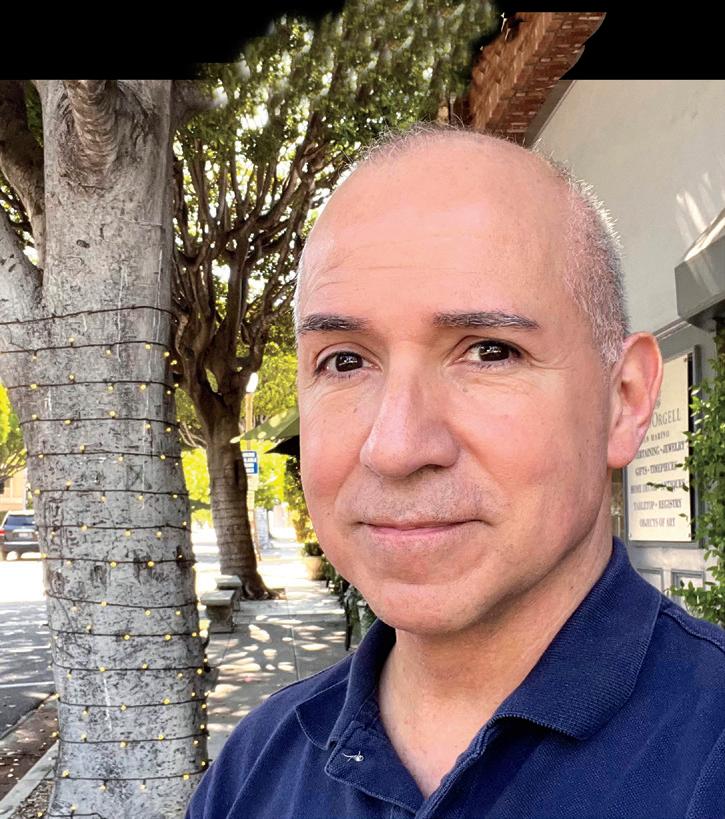
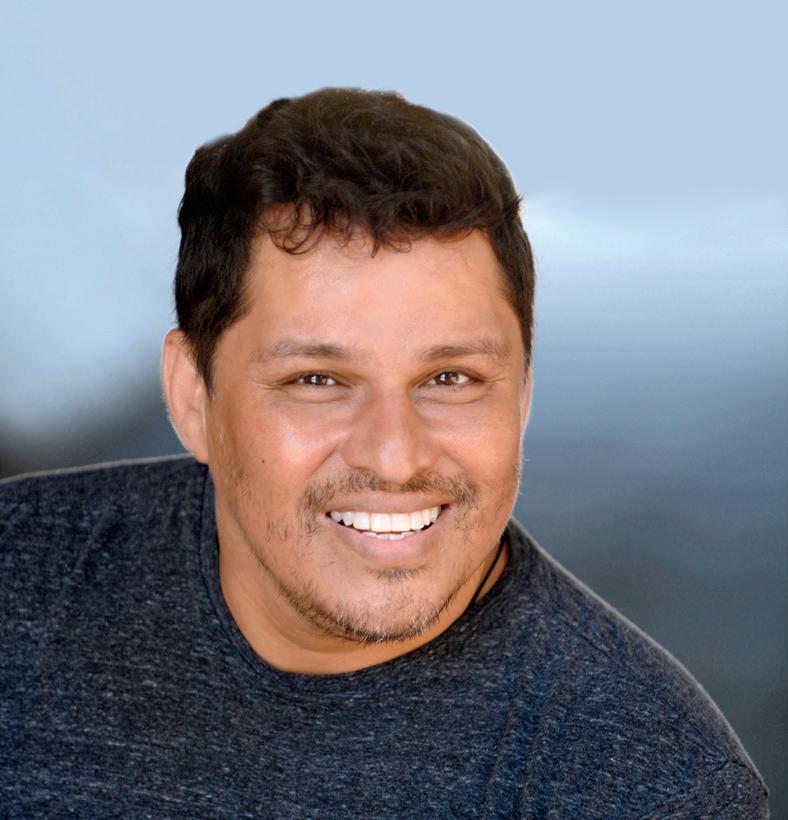
 JEAN HERNANDEZ Birmingham, Alabama
JEAN HERNANDEZ Birmingham, Alabama
Jean Hernandez is all too familiar with the obstacles that Latinos in the South face when it comes to HIV. Since 2011, she’s been the Latino outreach coordinator at AIDS Alabama and the director of the Alabama Latino AIDS Coalition, which has become a trusted resource for connecting people to care and other supportive services. Jean recently became a community advisory board member for the Office of Community Outreach & Engagement at the O’Neal Comprehensive Cancer Center at the University of Alabama. She wants to further address health disparities among Alabama’s Latino population, specifically regarding prostate cancer, breast cancer and HIV.
ALL IMAGES: COURTESY OF SUBJECTS
From left: Daniel G. Garza, Moncies Franco Sr. and Rick Guasco
CRISTINA HERRERA New York, New York
Cristina Herrera moved from California to Bronx, New York, when she was 15 years old. The El Salvador native was soon embraced by the trans Latina community, which gave her the support she needed to come out as transgender herself. Seeing firsthand how vulnerable members of the trans community were to HIV and drug addiction, she was determined to keep herself safe. She put herself through college and started working at an LGBTQ nonprofit. In 2007, she founded the Translatinx Network, serving trans Latinos in New York City and beyond. The nonprofit, of which she is also the CEO, assists trans Latinos with immigration and legal issues and HIV prevention and support.
MARIA CHRISTINA HERRERA Philadelphia, Pennsylvania
Maria Christina Herrera, MD, MSPH, a board-certified pediatrician and an instructor of adolescent medicine at the Children’s Hospital of Pennsylvania (CHOP), recently graduated from CHOP’s Adolescent Medicine Fellowship training program and was named a scholar in Yale’s Drug Use, Addiction and HIV Prevention Research fellowship program. Her work focuses on the intersection of HIV and substance use in teenagers and young adults. Originally from rural upstate New York, she has worked in New York City, San Francisco, the Dominican Republic, Peru, Mexico and on the White Mountain Apache Reservation in Arizona. She promotes access to treatment and prevention for marginalized groups, such as Black and Latino youth, and is committed to health equity and the alleviation of poverty.
JASON JONES Phoenix, Arizona
Jason Jones found out he was HIV positive not long after he started dating his partner, Jeremy Bright. The mixedstatus couple had difficulty finding community resources that served them both, so in 2018, they founded RipplePHX, which engages the Phoenix LGBTQ community in HIV awareness, prevention, treatment and testing. The group
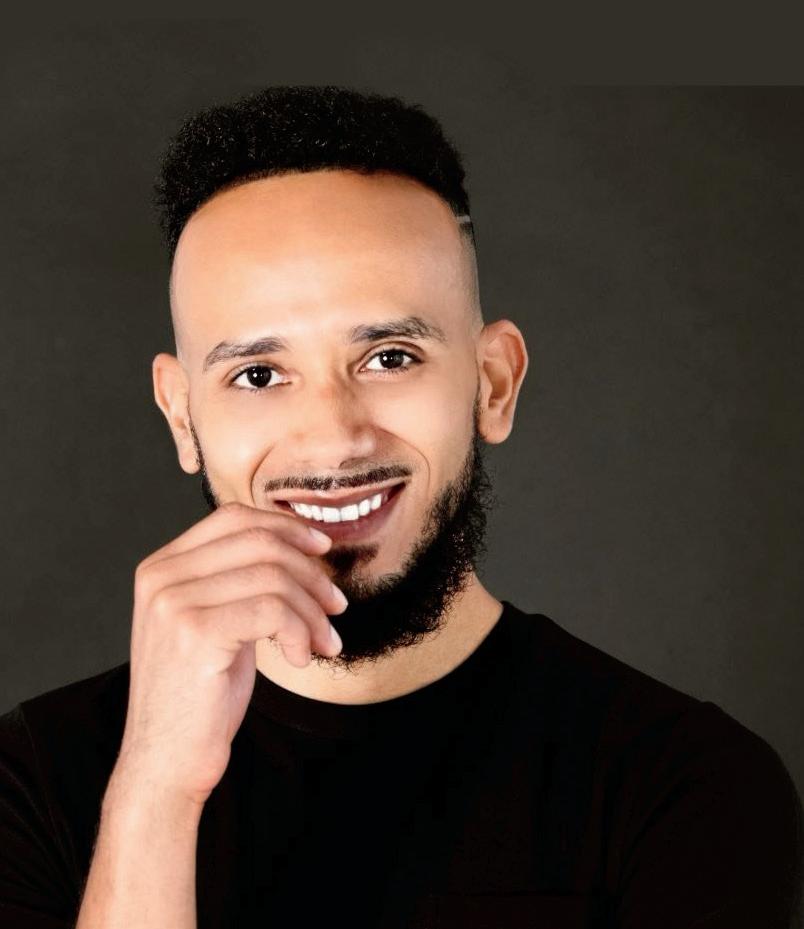
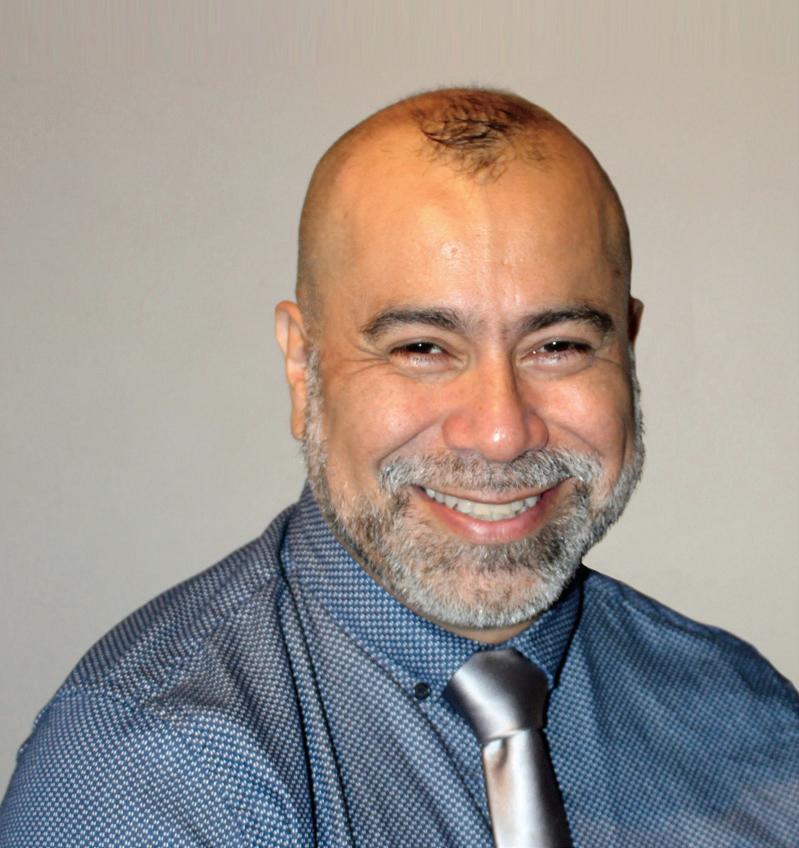
works to reach people—especially those in the Latino community—who don’t typically seek services at traditional brick-and-mortar agencies. In 2019, RipplePHX won the American Academy of HIV Medicine/Institute for Technology in Health Care HIV Practice Award for its mobile HIV prevention kiosk. The group hosts popular Lotería Game Nights each week and semiannual Día de los Muertos events, allowing it to reach more than 25,000 primarily Latino people annually.
ARIANNA LINT

Fort Lauderdale, Florida
Arianna Lint, a transgender Latina refugee who left Peru for the United States to escape persecution as a political and civil rights activist, tested positive for HIV in 2006 and has been a passionate advocate for those living with the virus ever since. She worked for the Florida Department of Health and the social services nonprofit SunServe before becoming the CEO and cofounder of Arianna’s Center, which empowers and uplifts the trans community by providing education, training, case management and linkage to care in Fort Lauderdale and Puerto Rico. She’s a consultant for the White House National HIV/AIDS Strategy and for the CDC and serves on the community advisory board for Positively Trans and the board of The Reunion Project. Arianna is also the head of the South Florida Chapter of the TransLatin@ Coalition and a U=U ambassador.
MICHELLE LOPEZ
Brownsville, New York
Michelle Lopez is known throughout the United States and abroad as a tireless advocate for others like her living with HIV. After Lopez learned that she was HIV positive in 1990, she started attending ACT UP meetings and became involved in the Community Constituency Group of the AIDS Clinical Trials Group. She has been profiled in publications such as POZ, Spin and The New York Times. She previously worked as the healthy aging specialist at GMHC. She was also a private consultant for eight years, during which she helped implement HIV care and services at a private primary care facility under the auspices of Brooklyn Family Medical Center.
ALL IMAGES: COURTESY OF SUBJECTS 36 POZ DECEMBER 2022 poz.com
From left: Gabriel Maldonado, Jean Hernandez and Luis Alberto Mares Yañez
OSCAR RAUL LÓPEZ

Rio Grande Valley, Texas
Oscar Raul López is the founder, CEO and national director of policy for Poderosos (Spanish for “the powerful”), which aims to improve the health of immigrants, queer youth, men who have sex with men, cisgender and transgender Latinas and other minority groups within the Latinx community via programming, health advocacy and policy development. Poderosos focuses its work primarily in South Texas and the borderlands. Oscar has worked in the HIV field—as an activist, volunteer and a consultant— since 1988. He’s worked for NMAC, the Office of Minority Health, New York City’s Department of Health and Human Services and other organizations providing direct care, cultural competency training and capacity building training nationwide.
GABRIEL MALDONADO
Riverside, California
Gabriel Maldonado, MBA, is the founder and CEO of Riverside’s TruEvolution. Launched in 2007, TruEvolution is a health equity and racial justice organization that provides comprehensive HIV services, mental health and emergency housing services in Riverside and San Bernardino counties in Southern California. The nonprofit is currently building new housing units for the LGBTQ community and people who are living with HIV. A former member of PACHA under the Obama administration, Gabriel currently serves on the regional boards of Borrego Community Health Foundation and Planned Parenthood of the Pacific Southwest. In 2017, he told POZ, “When I started community work, I found that I had a gift for organizing. I found my purpose.”
LUIS ALBERTO MARES
New York, New York
YÁÑEZ
As the national community mobilization director for the Latino Commission on AIDS, Luis Alberto Mares Yáñez, LMSW, manages the social messaging awareness campaigns for both National Hispanic Hepatitis Awareness Day and National Latino AIDS Awareness Day. After earning a medical degree in Peru, he emigrated to the United States, where his work involved assisting people living with HIV. Soon after losing his partner to AIDS, he tested positive himself. He previously worked as the director of the Jamaica YMCA transitional housing program for homeless people living with HIV and AIDS in New York City in coordination with the HIV/AIDS Services Administration. Luis served as the chair of the advisory group of non–English-speaking migrant and seasonal farm workers and new immigrants for the New York State Department of Health’s End the HIV Epidemic implementation plan, and he’s currently a U=U ambassador.
MATTHEW MARRERO
Brooklyn, New York
Matthew Marrero is one half of “The Julia & Matthew Show,” a nickname for The Positive Life Workshop (TPLW) that he and his colleague Julia Sanchez (also on this year’s list) facilitate at The Family Center in Brooklyn. In 2018, Matthew was struggling with his own HIV diagnosis when he signed up for TPLW, a program designed to help educate those living with HIV about how to live a healthy, productive and positive life. Four years later, inspired by the compassion of his mentors and coaches (including Julia), Matthew is now a client support specialist and facilitator for the group and is forever grateful for the opportunity. “I get to pay it forward with Julia, who helped me change my life,” he says. “I get to do [for others] what she did for me.”
ANGEL MARTINEZ San Juan, Puerto Rico
A longtime survivor of HIV as well as cancer, Angel Martinez provides support to people living with HIV and hepatitis C, LGBTQ people, people who use substances, survivors of domestic violence and other folks in need. He has developed different intervention models for community-based organizations. Angel represents the HIV community in the Ryan White Part B Planning Group and is a member of Puerto Rico’s AIDS Drug Assistance Program (ADAP) advisory group. He is the founder and community liaison of the Collective of Positive People and Allies to eradicate HIV. His work in the Latino community— providing education and helping people make positive behavioral changes—has been recognized in both Puerto Rico and New York.
MONICA MARTINEZ-ALFARO Montebello, California
As a housing specialist for Foothill AIDS Project in Los Angeles County, Monica Martinez-Alfaro is deeply committed to serving the local LGBTQ community and those living with HIV. She works to provide the best housing possibilities for people experiencing homelessness and has helped many youth, adults and elderly people secure transitional housing as well as access to food. By providing stable housing and other support, Monica, who is of Peruvian descent and bilingual, is helping people living with HIV enjoy longer, healthier and more stable lives.
ZAMIR MAVO Boston, Massachusetts
Zamir Mavo was recently promoted from peer advocate to HIV nonmedical case manager at the Boston Living Center at Victory Programs, New England’s largest community wellness and resource center for people living with HIV
poz.com DECEMBER 2022 POZ 37
and AIDS. Since moving to Boston from his native Venezuela, Zamir has provided psychosocial peer support and case management services to Latino and non-Latino members of the center. Fluent in Spanish, Portuguese and English, Zamir provides assistance that is both practical and nurturing, making him an exceptional role model for his peers. He facilitates weekly support groups and runs workshops on health literacy and life skills. Zamir also enjoys organizing an annual fiesta in recognition of National Hispanic Heritage Month.
MARIA MEJIA
Fort Lauderdale, Florida
Maria Mejia had just turned 18 in 1991 when she found out she was HIV positive; she’d contracted the virus three years earlier. For years, she lived without treatment or support but eventually immersed herself in HIV education and has since become a dedicated advocate for HIV prevention, testing and treatment. She’s the coauthor of the book From a Warrior’s Passion and Pain, which chronicles her life with HIV, and she’s been featured in various HIV awareness campaigns, such as the CDC’s “Let’s Stop HIV Together.” She’s a community advisory board member and blogger for The Well Project and volunteers for the Red Cross and Jackson Memorial Hospital. Maria uses social media to spread awareness in both English and Spanish and is the founder of one of the largest private support groups on Facebook for people living with HIV, International Place for People With HIV/AIDS and the People Who Love Us.
JUDITH MONTENEGRO
Chapel Hill, North Carolina
Judith Montenegro is the program director for Latinos in the South. Since 2007, the program has worked to mobilize local leadership to develop networks, provide culturally competent HIV education and address the needs of growing Latinx communities in the Southeast. Judith grew up in the South and traces her activism to the early 2000s when she started organizing community actions to change the narrative regarding immigration issues. Over time, she transitioned into HIV activism in the Latinx community. Through the Dennis deLeon Sustainable Leadership Institutes, Judith and her team have promoted leadership development and network building in the South. With the support of AIDS United, she awarded micro-grants to grassroots Latinx LGBTQ organizations in the region, which led to the creation of Encuentro, an annual health conference for LGBTQ+ Latinx communities in the South.
MICHAEL MONTERO Clifton, New Jersey
Michael Montero, LCSW, passionately advocates for community engagement focused on HIV, sexual health and
LGBTQ health issues—which makes him a perfect fit for his role as the community-engagement manager for the Latino Commission on AIDS. He was recently elected as a member of the board of directors for the Treatment Action Group (TAG), which is entering its 30th year of service to the HIV, tuberculosis and hepatitis communities. Michael’s career has centered on health issues specific to Latino gay, bi and trans men, and he has collaborated with organizations on annual events, such as National Latino AIDS Awareness Day, the Reunion Latina Training Institute and New York City’s Latino Health Action Day. He seeks to strengthen ties between public health organizations, policy makers and key stakeholders around public health.
ROGER MONTOYA Velarde, New Mexico
Roger Montoya was living with HIV and working as a professional dancer in New York City and Los Angeles in 1990 when he decided to return to his native New Mexico to prioritize his health. He has since become an advocate at the forefront of the HIV epidemic in New Mexico; as such, he has witnessed the health gaps that many rural communities face. A trained painter and gymnast, Roger received a grant from the University of New Mexico to teach gymnastics to children and in 2008 opened Moving Arts Española, a youth-based arts center, with his life partner, Salvador Ruiz-Esquivel. In 2019, Roger was nominated for the CNN Hero of the Year for his work with the center. The following year, he was elected to the New Mexico House of Representatives, making history as the state’s first openly gay representative living with HIV.
XAVIER MORALES Milford, Pennsylvania
Xavier Morales has been involved in the fight against the HIV epidemic since he helped his partner, Sean Strub, found POZ in 1994. Several years later, he served as the associate publisher of POZ en Español, which he cofounded with journalist Gonzalo Aburto (also on this year’s list). Xavier is on the board of the anti–HIV criminalization nonprofit Sero Project and is a founding member of LatinX+, a network of advocates that aims to elevate the voices of Latinx people living with HIV. He previously served on the board of directors of HoMoVisiones, the first Spanish-language cable TV show geared to Spanishspeaking LGBTQ people and their families.
MILANES MOREJON Boston,
Massachusetts
Milanes Morejon, MPH, is the manager of health equity at Walgreens, where she creates digital and community-based initiatives to optimize the delivery of health care to improve overall health outcomes. She previously led health equity
38 POZ DECEMBER 2022 poz.com
initiatives as a senior manager at NASTAD (the National Alliance of State and Territorial AIDS Directors). Born in the Dominican Republic, she grew up in Roxbury, Massachusetts, and earned her master’s degree in epidemiology and biostatistics from Boston University School of Public Health. She was an intern in the office of former Senator John Kerry, where she analyzed health disparities among MassHealth and Medicare recipients. She also was a recipient of the Bill Emerson Hunger Fellowship from the Congressional Hunger Center. Milanes considers health equity and social justice to be integral to improving population health.
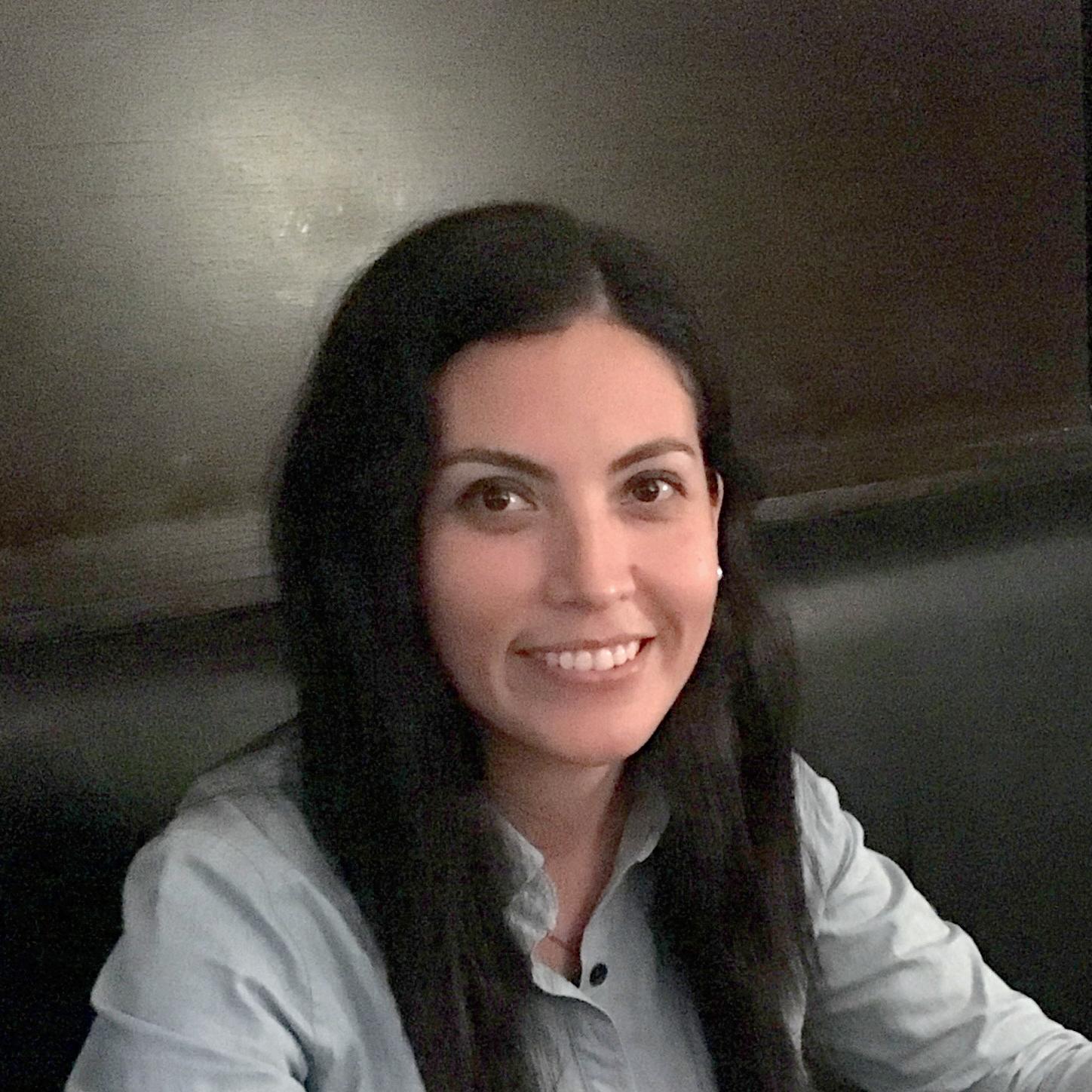
DAVID ERNESTO MUNAR Chicago, Illinois
David Ernesto Munar is the president and CEO of Howard Brown Health, a social service organization and health center that “provides affirming health care and mobilizes for social justice.” He previously spent 23 years working at the AIDS Foundation of Chicago, where he held several positions, including president and CEO. David currently serves on the boards of AllianceChicago and Cook County Health and Hospitals System; he previously served on the boards of ALMA Chicago, the Black AIDS Institute and AIDS United. In 2007, he helped launch the Coalition for a National AIDS Strategy, and in 2011, he was named a Champion of Change by the White House. An avid runner, he shows no signs of slowing down.
JAVIER MUÑOZ
New York, New York
Award-winning actor Javier Muñoz is perhaps best known for his performance as Alexander Hamilton in the Tonywinning musical Hamilton and as Usnavi de la Vega in In the Heights, but he’s also an award-winning activist for HIV and LGBTQ rights. Javier, who has been living with HIV since 2002, first sought support from GMHC in New York City. In 2016, the organization honored him with the Howard Ashman Award for his advocacy, and he currently sits on its board. In 2018, New York City Mayor Bill de Blasio proclaimed June 21 as Javier Muñoz Day. Javier recently portrayed an HIV doctor in the film Three Months, which is streaming on Paramount+, and was recently cast in the workshop of a musical adaptation of The Song of Bernadette He’s also an ambassador for Product (RED).
EDUARDO OCAMPO
Houston, Texas
A patient navigator at Texas Children’s Hospital, Eduardo Ocampo is from Cuernavaca, Mexico. After earning a master’s in psychology at the University of Houston–Clear Lake, he worked as a case manager at Galveston’s Access Care of Coastal Texas, providing services to people living with HIV. In his current job, he helps pediatric patients living with HIV
transition to adult care. He also provides linkage to care for PrEP services through the Come as You Are study, which prioritizes homeless youth. Eduardo is a recurring presenter at the National Latinx Conference on HIV, HCV & SUD.
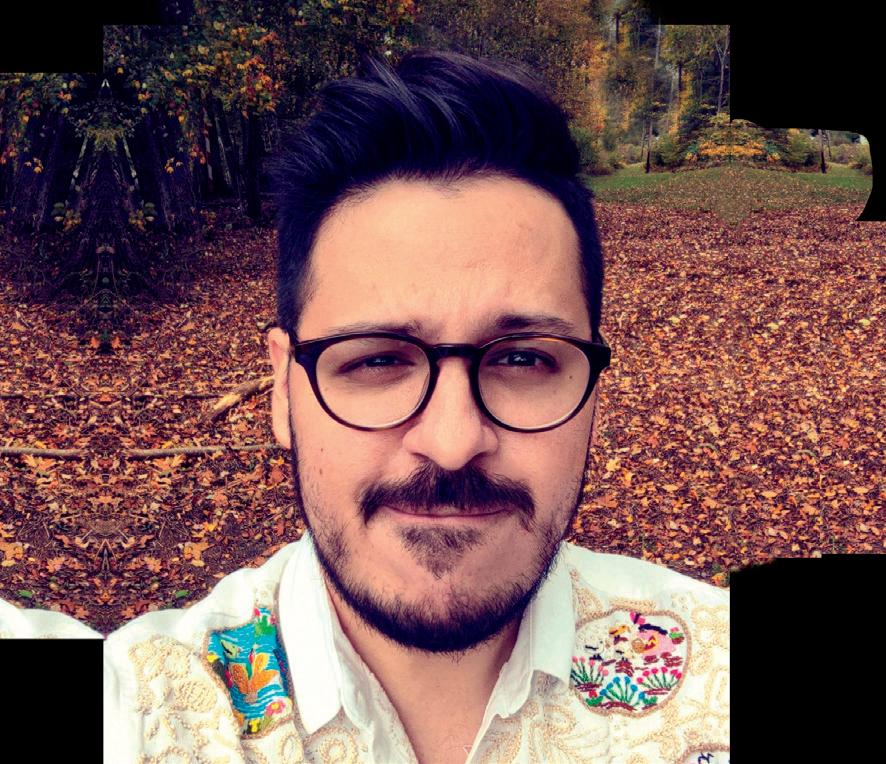
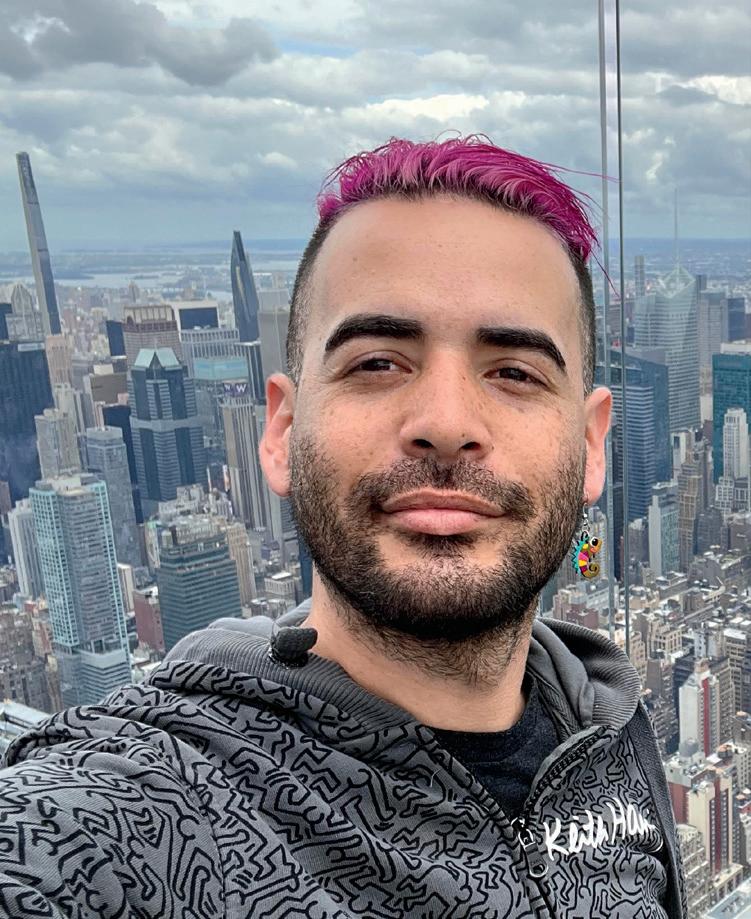
DANNY OCHOA
New York, New York
As the prevention intervention coordinator at GMHC, Danny Ochoa is a passionate advocate for people living with HIV, especially those who identify as Latino or speak only Spanish. Earlier this year, Danny developed a GMHC video campaign about PrEP and U=U. He also shares information about HIV on his YouTube channel. He previously held several positions at the Latino Commission on AIDS and was the LGBTQ program coordinator at El Centro Hispano. Danny also brings HIV awareness and information to communities through his Latin dance classes.
ROBERTO ORDEÑANA
San Francisco, California
Roberto Ordeñana was recently named executive director of the GLBT Historical Society, which maintains an extensive collection of materials on LGBTQ history, culture and arts. The San Francisco native, who is the son of Nicaraguan
poz.com DECEMBER 2022 POZ 39 ALL IMAGES: COURTESY OF SUBJECTS
From top Eduardo Ocampo, Eddie Orozco and Monica MartinezAlfaro
From
immigrants, has spent more than 25 years working in the LGBTQ community. In the late ’90s, he developed HIV prevention programs and organized community projects with Latino gay, bisexual and trans youth at the STOP AIDS Project. He also served as board president of the Bay Area Young Positives and the San Francisco Arts Commission. Roberto most recently worked as the deputy executive director of the San Francisco LGBT Center and feels that “now more than ever, it is vital that we preserve and exhibit our queer history and contributions to culture and society.”
EDDIE OROZCO Miami, Florida
Diagnosed with HIV a few years after emigrating from Colombia to Miami in 1980, Eddie Orozco founded an HIV support group that’s now nearly 20 years old. Every October, he organizes Rompiendo Barreras (Spanish for “breaking barriers”), a community event consisting of workshops, panel discussions, free health screenings, HIV testing and more in honor of National Latino AIDS Awareness Day. As the health services coordinator at Pridelines—an LGBTQ community center in Miami—Eddie coordinates educational
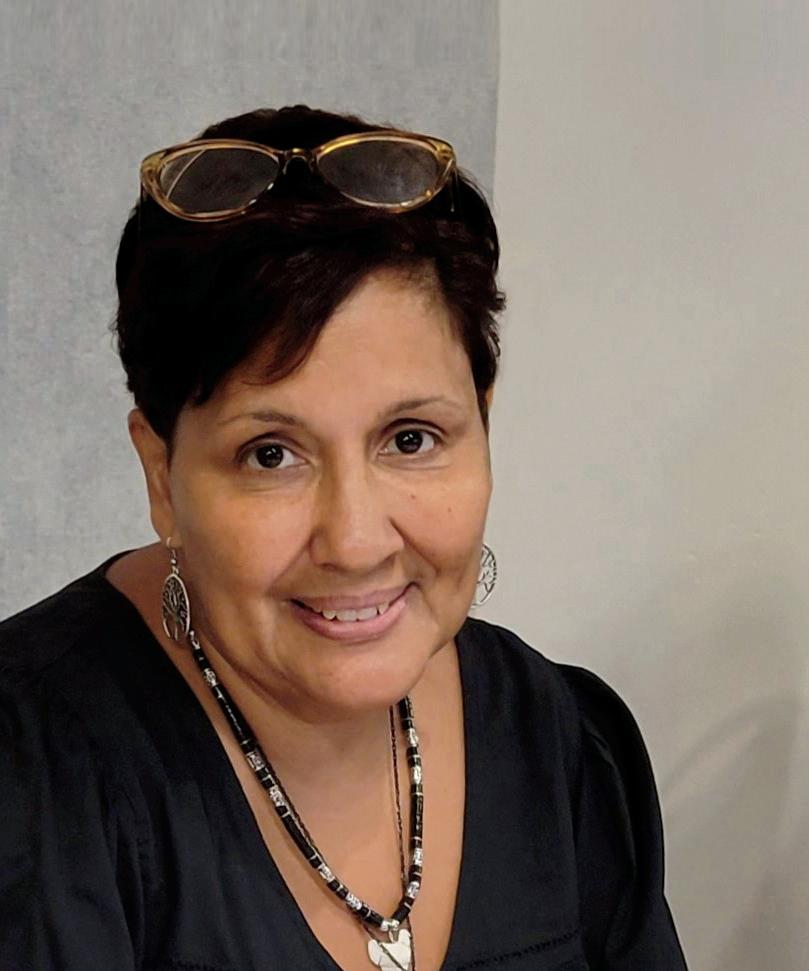
lunches and dinners in both English and Spanish as well as social activities and holistic services. A passionate advocate, he is proud to use his platform to initiate conversations about HIV and reduce HIV-related stigma in the Latino community.
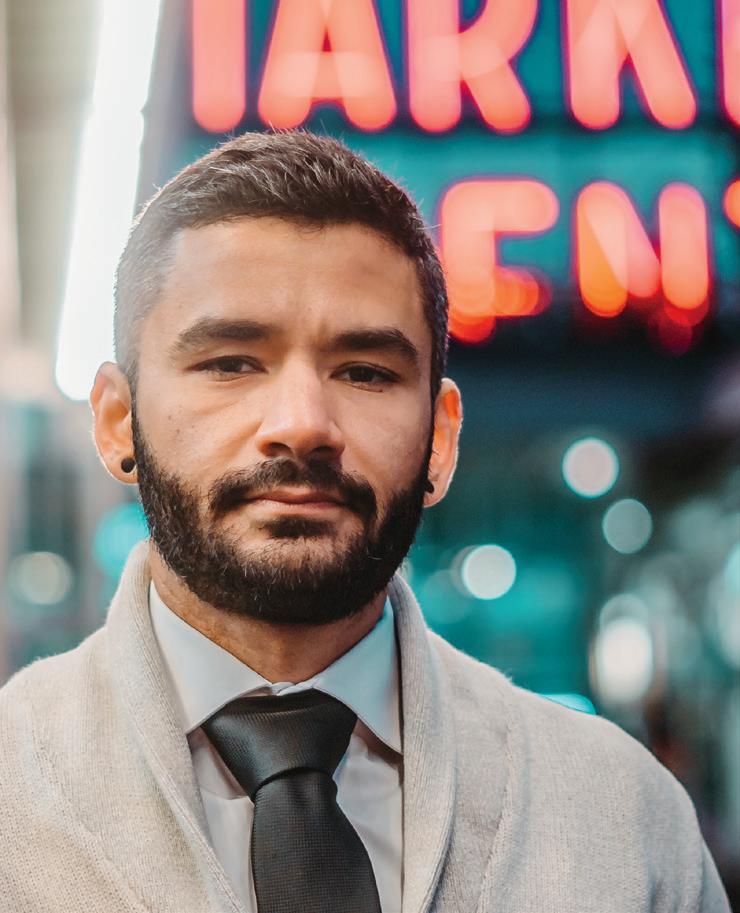
HUMBERTO OROZCO Atlanta, Georgia
Mexican-born Humberto Orozco, who was raised in Gainesville, Georgia, began working in community education in college as a member of Sexual Health Helpers, a student organization that promoted sex-positive health education on campus. He served as the board president of Latino LinQ, a nonprofit organization working to increase equity and promote the well-being of Latinx LGBTQ+ communities in the South. He was also a CDC community ambassador for the “Let’s Stop HIV Together” campaign. He’s currently a clinical research coordinator at Emory University’s Ponce de Leon Clinical Research Site, which conducts HIV- and AIDS-related clinical trials, including one for an HIV vaccine. He’s also pursuing his master’s degree in public health at Emory University’s Rollins School of Public Health.
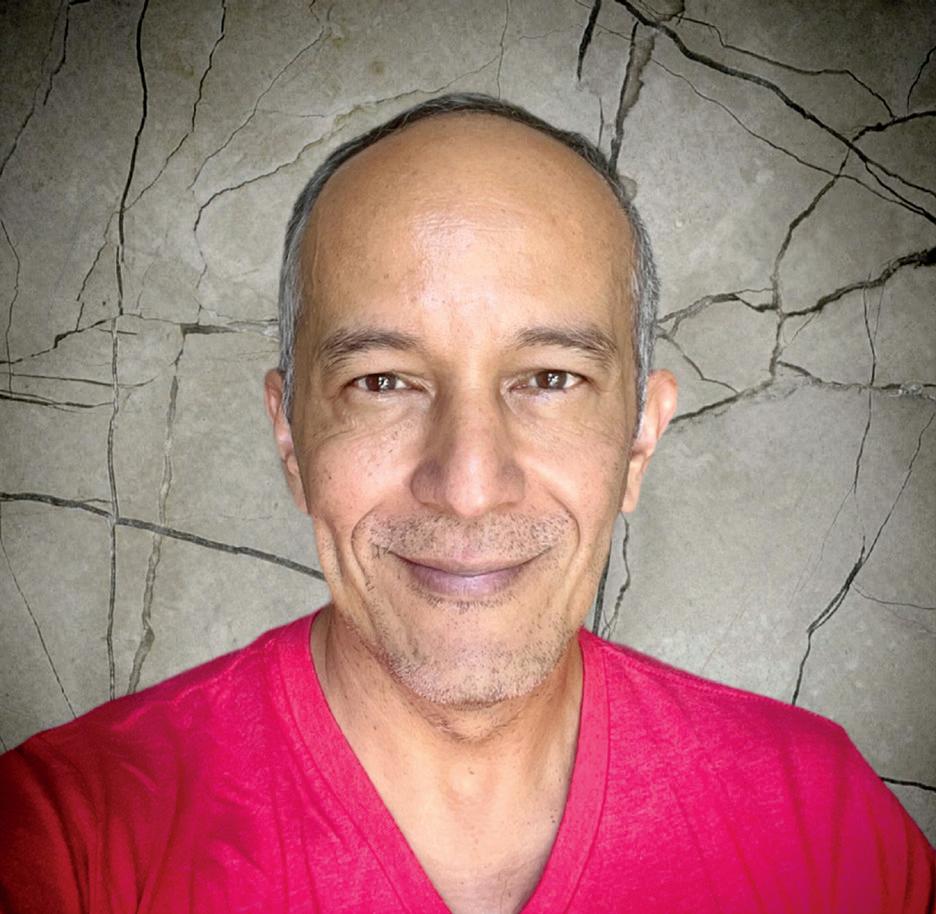
LUNA LUIS ORTIZ New York, New York
Native New Yorker Luna Luis Ortiz was diagnosed with HIV in 1986 at age 14. Afraid he would die and be forgotten, he started using a camera to make self-portraits, which kicked off both his artistic journey and his HIV activism. His artistry flourished in the late ’80s as he became active in the ballroom scene. At the same time, he began to dedicate his life to HIV prevention and awareness. His powerful voice has been heard on MTV, VH1, PBS, Telemundo, NY1, Logo, MSNBC, ABC and others, and his work has been viewed in galleries and publications around the world. He continues to spread HIV awareness and education to youth with his work at GMHC, for which he creates social media campaigns, hosts youth workshops and organizes the annual Latex Ball. Luna also hosts The Luna Show on YouTube, which celebrates Black and Latino ballroom culture while promoting HIV awareness.
ANDRES PALENCIA
Los Angeles, California
Andres Palencia is the creator and director of My Health Agenda, a health and wellness web series that provides visibility to members of the LGBTQ Latino community while providing a safe space to address topics such as sexual and mental health. (Episodes are free to watch.) He also created Living y Ready, a series focusing on the experience of Latino LGBTQ+ folks living with HIV. Andres is also the CEO of LATV, a media company and national TV network that empowers Latino voices and celebrates Latino culture
40 POZ DECEMBER 2022 poz.com ALL IMAGES: COURTESY OF SUBJECTS
top: Aracelis Quiñones, Eddie Orozco and Alexander Perez
and LGBTQ pride. He is dedicated to addressing systemic inequity by providing opportunities to diverse creators, amplifying genuine content and advocating for better representation of Latinos in the media.
ALEXANDER PEREZ Washington, DC
Alexander Perez is a country program coordinator for the United States Agency for International Development’s (USAID) Office of HIV/AIDS, where he is responsible for coordinating the agency’s activities in Africa. His work prioritizes human-centered approaches to ensure that health equity and social justice remain at the forefront of public health efforts. In 2021, as a pediatric viral load surge consultant for USAID, he supported retention and viral load suppression activities for children and adolescents in lowand middle-income countries. Alexander was previously a manager at NASTAD, where he was part of the health equity and global program team. He also coordinated an NIH-funded multisite maternal and child health study in Cape Town. In his various roles, he’s done work to address stigma and discrimination against sexual and gender minorities and people living with HIV through workshops, tool development and community engagement. He believes authenticity can be a tool to empower communities to lead and is proud to represent his Cuban roots in his work.
ALBERTO PEREZ BERMUDEZ Miami Beach, Florida
Nicaraguan-born Alberto Perez Bermudez grew up on the streets of Los Angeles and Miami and found out he was HIV positive when he was 18 years old. The former gang leader knew nothing about HIV but knew he had to make a change if he was going to survive, so he immediately set out to educate himself about the virus. Three decades later, the long-term survivor is an HIV advocate on social media and in his South Florida community. Alberto has appeared in several local health campaigns to fight stigma and encourage HIV testing. “I will do my best to help reduce other people’s exposure to HIV by providing the education I never got,” he says. “I will educate others until the day I die.”
ARACELIS QUIÑONES
New York, New York
Aracelis Quiñones is the coordinator of Poder Latino (Spanish for “Latino power”), part of the Latino Commission on AIDS. The group of HIV-positive Latinos meets monthly for training on AIDS policy and advocacy and on ways to take care of themselves in order to improve health outcomes and boost self-esteem. She is a survivor of not only HIV but also hepatitis C and cancer. She has educated Spanishspeaking communities about viral suppression and access to and retention in care and has helped develop information
around promoting U=U, decreasing stigma and aligning HIV participants with their role in ending the HIV epidemic. The Puerto Rican–born advocate is a proud mother and grandmother.
JOEY PONS
San Juan, Puerto Rico
Activism has been key to Joey Pons’s survival. Diagnosed with HIV in 1988, he was an early member of ACT UP New York and a cofounder of Queer Nation, which fought for LGBTQ rights. He’s currently the director of Puerto Rico’s Housing Opportunities for People with HIV/AIDS (HOPWA) program. Over the years, Joey has worked on multiple political campaigns in Massachusetts, Texas, California and New Jersey as a political strategist, and he was one of the lobbyists for the Ryan White Care Act Reauthorization in 1996. He’s collaborated with the Human Rights Campaign and the National Victory Fund and was part of the organizing committee for Stonewall 25. He’s a member of NMAC’s HIV 50+ Strong and Healthy program and the cochair of the host committee for the United States Conference on HIV/AIDS (USCHA) in Puerto Rico.
VALERIE REYES-JIMENEZ
New York, New York
Valerie Reyes-Jimenez went to Housing Works in New York City in August 1991 looking for housing for her and her family and has been with the organization ever since. These days, the longtime client and peer educator works full-time in the advocacy department as the New York City community organizer. Housing Works, which aims to end the dual crises of homelessness and HIV through advocacy and lifesaving services, recently honored Valerie with this year’s Spirit of Housing Works award for her longtime service. She previously served on PACHA under President Bill Clinton and is a member of SisterLove’s 2020 Leading Women’s Society. She’s a powerful advocate because as she likes to say, “It’s my job to make things happen!”
ROSA RIVERA AVILÉS San Juan, Puerto Rico
Since she was diagnosed with HIV in 1997, Rosa Rivera Avilés has dedicated her life to advocating for people with HIV, with a special focus on fighting the stigma associated with the disease. She is the Caribbean patient advocate for LatinX+, a grassroots network of advocates across the United States and Puerto Rico that addresses issues such as stigma, criminalization and immigration in the Latino community as they relate to HIV. Rosa is also the director of Movimiento en Respuesta al VIH (Spanish for “the movement in response to HIV”) as well as the cofounder of Cero VIH PR, a group affiliated with the Sero Project, which is focused on ending inappropriate prosecutions of
poz.com DECEMBER 2022 POZ 41
people living with HIV. She has served as a delegate at AIDSWatch, HIV is Not a Crime, PWN–USA’s Speak Up! Summit and USCHA. In 2018, she was named an NMAC HIV 50+ Strong and Healthy Scholar.
GABRIELLA RODRIGUEZ Orlando, Florida
The realization that women in the South face unique challenges regarding health information, testing and education prompted Gabriella Rodriguez to earn degrees in social work and nonprofit management from the University of Florida. She is the senior cochair for the Central Florida HIV Planning Council, a case manager for the Orlando United Resiliency Services and the executive director at QLatinx, a grassroots racial, social and gender justice organization dedicated to the advancement and empowerment of Central Florida’s LGBTQ Latino community. While she acknowledges the tremendous odds facing the community in its struggle for equality and liberation, she is also hopeful about the future. “I believe in the work that’s being done on a grassroots level to ensure our communities are informed, uplifted and given a platform to further create change as we build supportive infrastructure, address inequity and promote inclusionary practices for Black, Indigenous, queer and trans people of color within our communities,” she says.
NATALIA RODRIGUEZ Houston, Texas
In 2021, Natalia Rodriguez, MPH, was named a CDC community ambassador, a role that supports the “Let’s Stop HIV Together” campaign and other CDC resources. She previously worked as a program manager for the Baylor College of Medicine Houston AIDS Education and Training Center, where she supported efforts to develop cultural sensitivity and HIV health trainings for Latino and transgender communities. Natalia also helped to develop the Houston/Harris County Rapid ART (antiretroviral therapy) Project ECHO (Extension for Community Healthcare Outcomes) among five Ryan White Part A clinics, which aimed to get people newly diagnosed with HIV on treatment as soon as possible. She is currently a board member of the Houston Global Health Collaborative and a mentor with the National Research Mentoring Network.
CARLOS E. RODRIGUEZ-DIAZ Washington, DC
Carlos E. Rodriguez-Diaz, PhD, MPHE, MCHES, is a native of Puerto Rico and a bilingual/bicultural researcher with a background in community health. His work focuses on health inequities among populations made socially vulnerable, including people with HIV, Latinos, incarcerated people and LGBTQ folks. He’s an associate professor of prevention and community health at George Washington
University’s Milken Institute School of Public Health and the director of the PhD program in social and behavioral sciences. He’s also the director of the Gill-Lebovic Center for Community Health in the Caribbean and Latin America. Carlos authored a study about the risk of COVID-19 infection and death among Latinos in the United States and has done community-based participatory research in the United States, Puerto Rico and the Caribbean for over 15 years.
MARIA LOUISE ROMAN-TAYLORSON
Los

Angeles, California
Maria Louise Roman-Taylorson has been a leader in social services for the transgender community for over 20 years. As vice president and COO of the TransLatin@ Coalition (TLC), the largest trans-led organization in Los Angeles, the 51-year-old Puerto Rican is an outspoken activist and role model to her community. Maria became the first transgender program manager for Transgéneros Unidas, a prevention program at Bienestar Human Services, the largest Latino HIV prevention program in the country. Earlier this year, she and TLC received a $10,000 grant from GLAAD via its partnership with Hornitos Tequila to continue to provide essential resources and empowerment to the LGBTQ community.
JOSÉ A. ROMERO
Durham, North Carolina/Kennewick, Washington
José A. Romero is an HIV, race and language consultant who splits their time between North Carolina and Washington. They were born to Mexican and El Salvadoran parents in Washington and spent their youth working on farms throughout the Northeast. They graduated from the University of Pennsylvania with a degree in cultural anthropology and after testing HIV positive in 2015 became a force in the battle for racial and language justice as it concerns the Latino community and HIV. After holding leadership positions at NMAC and the Latino Commission on AIDS, they are currently the director of community advocacy, education and research for the Pride Foundation as well as a board member at the LGBTQ Center of Durham and cochair of the Sustain Advocacy Group at the University of Houston. Because English was not their first language, language justice (the notion that folks should be able to communicate, understand and be understood in the language in which they prefer and feel most articulate and powerful) remains their priority. For their project A Pozitive Approach, they are recruiting multilingual people living with HIV to take part in advancing language justice in the public health sector.
ANTHONY ROSADO
Brooklyn, New York
Anthony Rosado is an interdisciplinary artist, activist and storyteller who uses their creative voice to speak up for the
42 POZ DECEMBER 2022 poz.com
communities they represent. Their art also educates others about issues related to HIV advocacy, housing rights and cultural preservation. Anthony has participated in artist residencies, art exhibitions and performance-based series curated by the likes of Visual AIDS, Queer|Art, La MaMa Experimental Theatre Club, Center for Performance Research, Movement Research, Hemispheric Institute, Loisaida Center, El Museo de Los Sures, Bronx Academy of Arts and Dance and ARTs East New York. Next year, the Visual AIDS artist member will receive a master’s degree in American studies from Trinity College, with a graduate certificate in museums and communities.
FRANCISCO RUIZ Boston, Massachusetts
Hailed as a “real up-and-comer” in the inaugural POZ 100, Francisco Ruiz has now worked in the public health field for almost two decades, serving in roles for such organizations as the Peace Corps, NASTAD, the National Latino AIDS Action Network and the CDC, where he led the Vaccine Equity Coordination Unit and helped build trust in COVID-19 vaccines. As a Latino living with HIV, Francisco is transparent about his HIV status. While he believes people must prioritize their health over stigma, he acknowledges that disclosure is a choice and for various reasons is not always an option for some people. This year, Ruiz’s professional and lived experience will help inform his pursuit of a doctorate at Harvard University’s T.H. Chan School of Public Health.
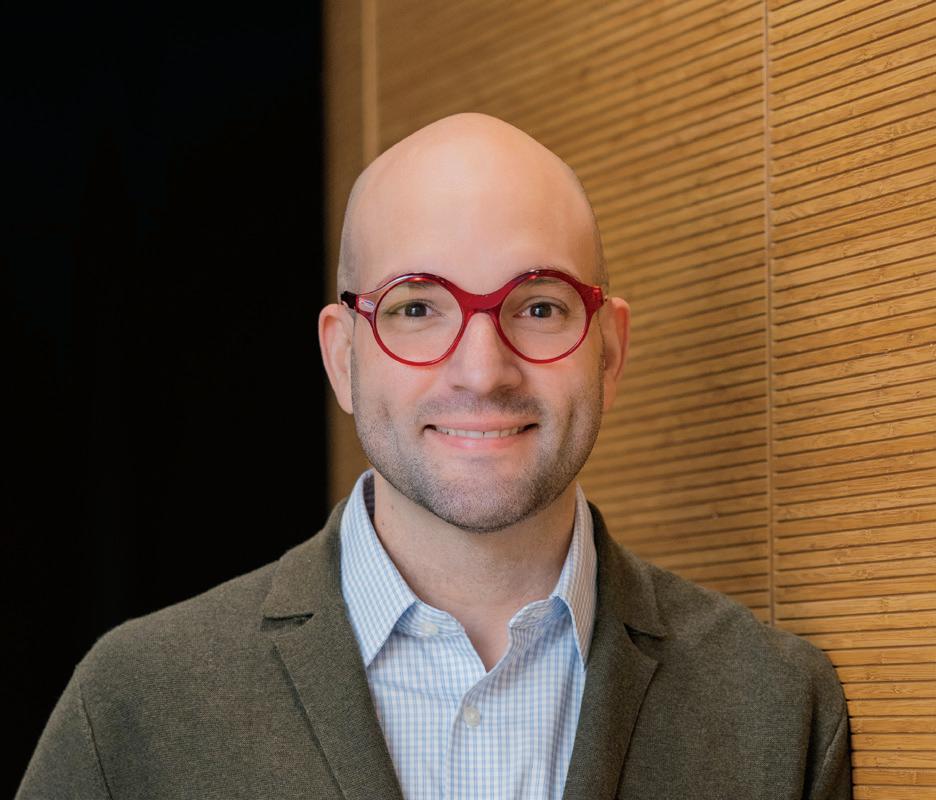
ISMAEL RUIZ
New York, New York
Ismael Ruiz found out he had HIV after his partner died of AIDS complications in the ’90s. Although it took him a while to come to terms with his diagnosis and access treatment, eventually, a mental health therapist referred him to The Alliance for Positive Change. Previously known as the AIDS Service Center, the New York City–based organization helps New Yorkers living with HIV and other chronic health conditions get the medical care, peer support and housing assistance they need to achieve
health, happiness and stability. Today, Ismael is a patient navigator and one of the agency’s community member advocates. He empowers other patients with information, hoping they will pay it forward. “The knowledge that I’m bringing can help support the rest of the community and lead to other patients empowering themselves,” he says. “It takes a village.”
BAMBY SALCEDO
Los Angeles, California
A native of Guadalajara, Mexico, Bamby Salcedo is the president and CEO of the TransLatin@ Coalition, which addresses the needs of transgender, gender-nonconforming and intersex Latinas throughout the United States. In 2017, having recognized the need to deliver direct services such as case management, victim accompaniment and transportation to trans people, Bamby and her team opened the Center for Violence Prevention and Transgender Wellness, a multipurpose space for trans people in LA. Bamby, who has received many awards for her advocacy work and was the subject of the 2013 film Transvisible: Bamby Salcedo’s Story, also had a hand in securing the 2020 passage of AB 2218, which established the Transgender Wellness and Equity Fund within California’s Department of Public Health to fund health services for trans people. Most recently, she received the Distinguished Leader in Feminism Award from the UCLA Center for the Study of Women. “I am the CEO of a national advocacy organization,” she said, during the award presentation. “But my definition of the CEO is ‘community-elevated officer.’”
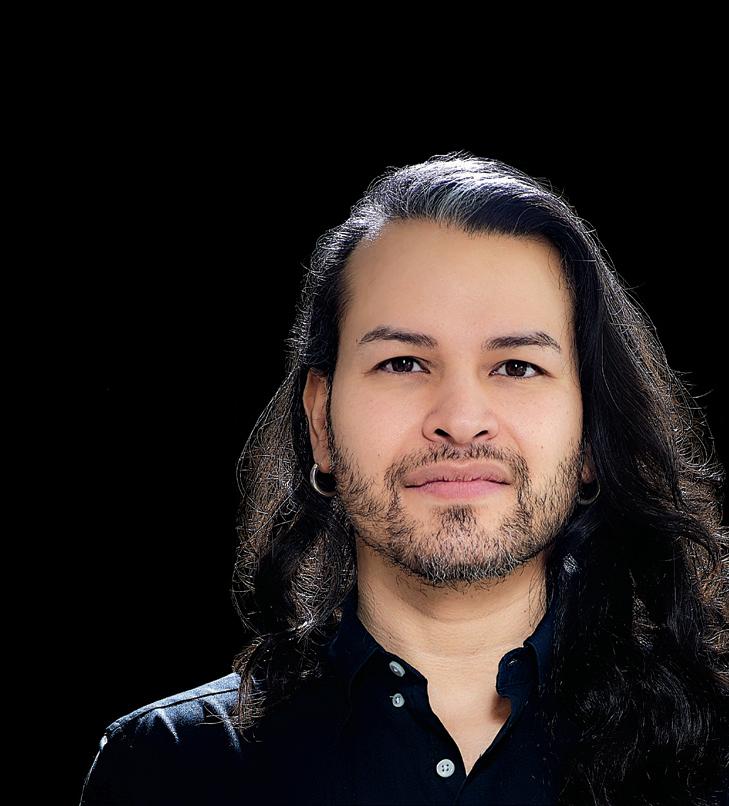
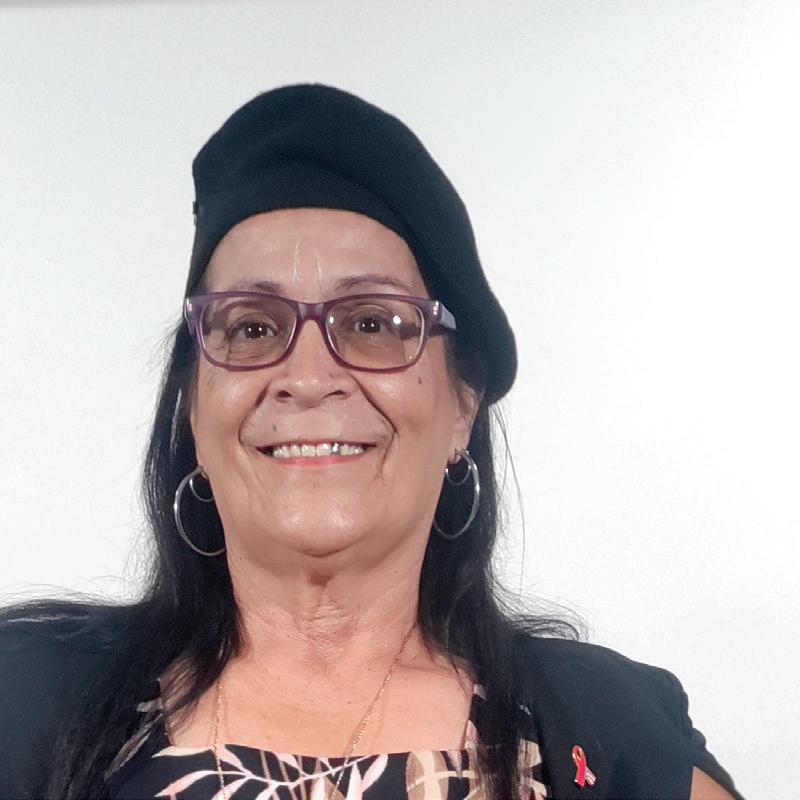 GABRIEL SAN EMETERIO Brooklyn, New York
GABRIEL SAN EMETERIO Brooklyn, New York
Born and raised in Mexico City, Gabriel San Emeterio, LMSW, is a queer activist committed to social and disability justice. They received their master’s degree in community organizing and program development from the Silberman School of Social Work at Hunter College, and their work centers on policies and issues that impact the communities to which they belong: the LGBTQ community (particularly trans and gender-expansive people), people living with
ALL IMAGES: COURTESY OF SUBJECTS
From left: Rosa Rivera Avilés, Carlos E. Rodriguez-Diaz and Gabriel San Emeterio
HIV and low-income college students. They also live with myalgic encephalomyelitis and fibromyalgia and recently became involved in spreading awareness about the health implications of long COVID, particularly for those living with HIV and other chronic viral diseases, through the Network for Long COVID Justice and as the cofounder of Strategies for High Impact. The group produces groundbreaking research, holds informational webinars and organizes community activism and advocacy on the COVID-19/ long COVID pandemic.
CHARLES SANCHEZ Queens, New York
Charles Sanchez was diagnosed with AIDS in 2003. A Mexican American, he became an activist via his groundbreaking musical comedy web series, Merce, which he wrote, produced and starred in as a response to the dearth of modern HIV stories in mainstream media outlets. The series, about a man living with HIV who isn’t sad, sick or dying, garnered many awards and accolades, including one for Charles for Best Actor in a Web Series at the Official Latino Short Film Festival. Charles also created The More You Can Ho, a series of cheeky sex-positive videos for YouTube designed to shatter HIV stigma. He is a contributing editor for TheBody.com and a contributing writer for POZ, and his writing has also been featured on Them.us, PositivelyAware.com and HuffPost Queer Voices. Since 2020, he has hosted the popular TheBody.com Instagram broadcast At Home With, on which he chats with celebrities and members of the HIV and LGBTQ communities.


 LI ANN ESTRELLA SÁNCHEZ Atlanta, Georgia
LI ANN ESTRELLA SÁNCHEZ Atlanta, Georgia
Mexican-born activist Li Ann Estrella Sánchez survived abuse and violence in her own country as well as in the United States before settling in Atlanta. She was detained by U.S Immigration and Customs Enforcement in 2012 and held for a year in isolation as she sought asylum for persecution as a trans woman. Her case made national news and she won her legal battle in 2018. Today, Li Ann is the CEO of Community Estrella, a nonprofit that advocates for the
rights of trans Latina women in the Southern United States—a population that has a disproportionately higher risk for HIV. The organization supports some 250 people by providing a shelter for trans women, transition programs, talks and community and political advocacy. It aims to defend, organize and empower the trans and gendernonconforming community.
JULIA SANCHEZ
Brooklyn, New York
Long-term survivor Julia Sanchez is a client support specialist at The Family Center (TFC), a Brooklyn-based organization that strengthens families affected by crisis, illness or loss to create a more secure present and future for their children. Julia, who has worked for TFC for 18 years, facilitates the organization’s The Positive Life Workshop, a seven-session program—run by and for people living with HIV—that helps people living with HIV build the skills and community they need to improve and maintain their health. Julia and her fellow facilitators (like Matthew Marrero, also on this year’s list) create an energetic and welcoming environment that provides hope for those living with HIV.
NATALIE SANCHEZ Los Angeles, California
With a background in program development, project management and community planning, Natalie Sanchez, MPH, has dedicated 18 years of her career to reducing the spread of HIV and improving medical outcomes in Latino communities. She currently sits on the community advisory board for the State of California Office of AIDS Planning Group, UCLA’s Center for HIV Identification, Prevention and Treatment Services and the National Latinx HIV Conference Committee. She’s also on NMAC’s Latinx constituent advisory panel. A third-generation Mexican American, Natalie hopes to shift cultural norms regarding female roles, oppressive issues, sexuality, gender identity and addiction. Natalie is the director of the Los Angeles Family AIDS Network at UCLA, which provides familycentered HIV services with a focus on prevention of motherto-child transmission. She created the award-winning
From left: Silvia Valerio, Jonathan Santos-Ramos, and Tony Valenzuela
telenovela web series Sin Vergüenza (Spanish for “no shame”), and as a writer and filmmaker, she uses her platform to spread public health messages and showcase communities of color.

JONATHAN SANTOS-RAMOS
New York, New York
Taking over the helm of Callen-Lorde, a New York City–based community health center steeped in LGBTQ history, is no easy task, but interim executive director Jonathan Santos-Ramos, a bilingual leader who has spent the past 14 years in various senior roles within the organization— including in clinical operations, education, community engagement and strategic initiatives—is clearly no stranger to the center’s work and mission. Jonathan previously worked for the Community Healthcare Network, where he opened a health center that tripled in size under his guidance. He also served as deputy director of business systems and strategy for New York City’s Department of Health and Mental Hygiene Bureau of HIV Prevention and Control. With his background, the ship seems to be in good hands.
TONY VALENZUELA
Los Angeles, California
Tony Valenzuela has been a leading activist and thought leader in the HIV community since the ’90s. He was named to Out magazine’s annual OUT 100 list in 1997 and appeared on our February 1999 cover. Recently named executive director of ONE Archives Foundation, the oldest continuously active LGBTQ organization in the country, Tony is the first Latino person to hold this position in its 70-year history. He most recently served as the executive director of the Foundation for the AIDS Monument. Tony, who has a background in literature and creative writing, has published numerous short stories, articles and essays. He was also the executive director of Lambda Literary, where he founded the LGBTQ Writers in Schools program, the first queer educational initiative in the K–12 New York City public school system.
SILVIA VALERIO
Los Angeles, California
Silvia Valerio was living in Mexico City when she was diagnosed with HIV in 1991. For nearly two decades, she devoted time to HIV advocacy and prevention, notably for the Latino community and for women. (Her daughter is fellow POZ 100 honoree Grissel Granados.) Since 1997, she has worked at the nonprofit AIDS group Bienestar, where she’s currently the linkage to care coordinator and focuses on providing HIV prevention and education to the LGBTQ community by providing direct services. She’s also the community advisory board coordinator for Bienestar’s Transformando Vidas support group for vulnerable populations. In 2019, Silvia was part of the inaugural cohort of NMAC’s Reclaiming Our
Place at the Table program, which encourages participation in local End the HIV Epidemic efforts. She’s also part of NMAC’s ELEVATE training program.
MILANI VARELA Chicago, Illinois
Milani Varela is a fierce, gender-nonconforming drag performer and activist who is the reigning Miss Diosa Latina for Illinois and a former Miss Latina Continental Plus. A former mother of the iconic Legendary House of Ninja, Milani has used the ballroom and pageant platforms to spread HIV awareness, education and prevention since 2008. She served as the program coordinator for the MPowerment Project for VIDA/SIDA at the Puerto Rican Cultural Center and later as the manager of community education and outreach. She has delivered presentations on best practices for disseminating information about PrEP, PEP, HIV vaccines and rectal microbicides to the Latino community and was an ambassador for the CDC’s “Let’s Stop HIV Together” campaign. Currently, Milani is an HIV tester and educator at CALOR (Comprensión y Apoyo a Latinos en Oposición al Retrovirus—“understanding and support for Latinos fighting the retrovirus,” in English), which supports Latinos living with or affected by HIV. Plus, she was a social media fellow for USCHA.
STEVEN VARGAS Houston, Texas
HIV has affected Steven Vargas in devastating ways. He tested positive in the spring of 1995, the same year he lost his stepfather and beloved mother to AIDS. A selfdescribed “reluctant activist,” Steven has grown to be a giant in the HIV community, both in his native Texas and nationally. He was the cochair of the City of Houston’s Hepatitis C Task Force and chair of Houston’s Latino HIV Task Force and Houston’s Ryan White Planning Council. He’s currently the cochair of the National HIV Aging and Advocacy Network, a program that supports people living with HIV over 50. In 2008, he joined the Association for the Advancement of Mexican Americans and developed two case management programs to expand access to housing and housing services for people living with HIV. He has worked with national organizations and agencies, including NMAC and the Department of Health and Human Services.
NELSON VERGEL Houston, Texas
A Venezuelan native and longtime survivor, Nelson Vergel is a chemical engineer and treatment guru who founded the Program for Wellness Restoration in Houston to help improve the quality of life of people living with HIV. His online mailing list reaches people nationwide
poz.com DECEMBER 2022 POZ 45
(VALENZUELA)
P. JAMES MELIKYAN; OTHERS: COURTESY OF SUBJECTS
looking for treatment updates and insights. He is a particularly vocal proponent of salvage therapies for people who, like him, experience multidrug resistance. He is CEO of Discounted Labs.com and ExcelMale.com, which provide safe, moderated platforms for men to exchange evidencebased health information. Nelson’s personal success fighting wasting syndrome through the use of testosterone as well as anabolic steroids prompted him to write various books on their safe use, including Testosterone: A Man’s Guide and Beyond Testosterone
LUÍS VILLANUEVA
Cathedral City, California
Luís Villanueva is a peer facilitator of the Let’s Kick ASS Palm Springs (LKAPS) Roundtable, a weekly drop-in discussion group where long-term HIV survivors can make connections and build community through conversations. Created to address isolation and depression common in older adults living with HIV, LKAPS seeks to reduce the stress of aging with HIV by providing an opportunity to develop friendships and community. With help from a grant from Equality California, Luís also founded and runs Amigos Coachella Valley, a peer support group for Latino men with questions about sexual and mental health, male sexuality, Latino cultural heritage, HIV prevention and treatment and more.
MARIA I. WILSON Houston, Texas

An immigrant from Mexico and the first in her family to graduate from college, Maria I. Wilson, EdD, LMSW, LVN, is an assistant professor at the college of human sciences and humanities at the University of Houston–Clear Lake, Texas. She’s also the project coordinator for the SMART Cougars (Substance Use, Mental Health, and HIV/AIDS Risk Assessment and Testing), which aims to prevent and reduce substance misuse and the transmission of HIV among Latino and African-American college students at the University of Houston and the surrounding community. Maria is also the program manager for the SUSTAIN Wellbeing COMPASS Coordinating Center of the University of Houston Graduate College of Social Work, one of three centers working to address HIV in the South by focusing on mental health, trauma-informed care, substance use and wellness.
RICHARD L. ZALDIVAR
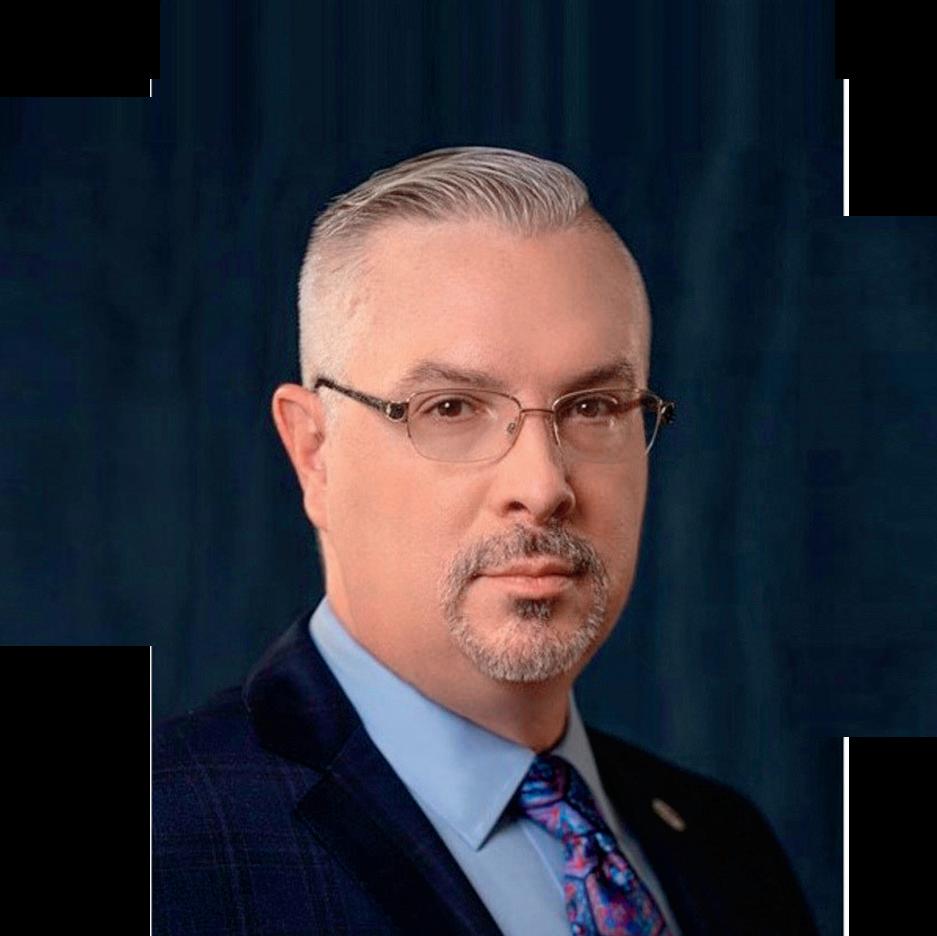
Los Angeles, California
Native Angeleno Richard L. Zaldivar began working in public service at age 17 as the president of a local youth group. Today, as the founder and executive director of The Wall Las Memorias Project (TWLM), he oversees programs that promote wellness and prevent illness among Latino, LGBTQ and other underserved populations in Los Angeles.
Under his stewardship, the organization—which was formed in 1993—facilitated the construction of the only national publicly funded AIDS Monument. A lifelong Dodgers fan, Richard also helped create Strike Out AIDS, an annual event that raises HIV awareness at Dodger Stadium. In 2020, TWLM launched “Act Now Against Meth,” a campaign to address the methamphetamine epidemic in Los Angeles. TWLM’s goal is to provide wraparound health services—while also addressing issues like substance misuse, racial and gender disparities, homophobia and transphobia—and to provide leadership opportunities to young members of the LGBTQ community.
JOSÉ M. ZUNIGA
Washington, DC
José M. Zuniga, PhD, MPH, is the president and CEO of the International Association of Providers of AIDS Care (IAPAC), which represents more than 30,000 clinicians and allied health care professionals worldwide. IAPAC also serves as the secretariat for the Fast-Track Cities Institute, which supports a network of more than 400 cities striving to end their HIV epidemics by 2030. The institute is part of a consortium of community, medical and urban health organizations that formed to create #ZeroHIVStigmaDay, a new awareness day (July 21) that calls attention to the persistent stigma experienced by people living with and affected by HIV. José is also a member of the IAPAC Board of Trustees as well as the National Hispanic Medical Association and an editor emeritus of the Journal of the International Association of Providers of AIDS Care. ■
46 POZ DECEMBER 2022 poz.com
(ZUNIGA) COURTESY OF IAPAC; (VARELA) COURTESY OF MILANI VARELA
Written by Jilleen Barrett, Joe Mejía, Jennifer Morton, Tim Murphy, Charles Sanchez and Laura Schmidt
José M. Zuniga (left) and Milani Varela
POZ 014-618 September 26th, 2022 Monthly, except Jan/Feb, Apr/May, July/ Aug & Oct/Nov 8 $19.97
CDM Publishing, LLC 157 Columbus Ave., Suite 525, New York, NY 10023 Ian Anderson 212.938.2051
CDM Publishing, LLC 157 Columbus Ave., Suite 525, New York, NY 10023
The Publisher is Ian Anderson; the Editor in Chief is Oriol Gutierrez; the Managing Editor is Jennifer Morton. Their address is 157 Columbus Ave., Suite 525, New York, NY 10023




POZ is Owned by CDM Publishing, LLC and Jeremy Grayzel. CDM Publishing, LLC 157 Columbus Ave., Suite 525, New York, NY 10023 None N/A POZ
15. Extent and Nature of Circulation a. Total Number of Copies (Net press run) b. Legitimate Paid and/or Requested Distribution 1. Outside County Paid/Requested Mail Subscriptions Stated on PS Form 3541 2. In-County Paid/Requested Mail Subscriptions state on PS Form 3541 3. Sales through Dealers and Carriers, Street Vendors, Counter Sales and Other Paid or Requested Distribution Outside USPS 4. Requested Copies Distributed by Other Mail Classes Through the USPS c. Total Paid and/or requested Circulation (Sum of 15b) d. Nonrequested
1. Publication Title 2. Publication Number 3. Filing Date 4. Issue Frequency 5. Numbers of Issues Published Annually 6. Annual Subscription Price 7. Complete Mailing Address of Known Office of Publication (Not printer)
Contact person, telephone 8. Complete mailing Address of headquarters or
Publisher (not printer) 9. Full names and complete mailing addresses of Publisher, Editor and Managing Editor 10. Owner 11. Known bondholders, Mortgagees, and Other Security Holders
the
of Bonds,
Securities. 12. Tax Status (nonprofits) 13. Publication Title: 14. Issue Date for Circulation Data
(Street, city, state and Zip):
general Business Office of
Owning or Holding 1 percent or more of
Total amount
Mortgages, or Other
1. Outside
Copies
2. In-County
Copies 3. Nonrequested Copies Distributed
Mail 4. Nonrequested
Distributed
Mail e. Total
f. Total Distribution
g. Copies
h. Total
i. Percent
16. Publication
Ownership Statement of Ownership, Management and Circulation Average no. copies each issue during preceding 12 months 126,357 125,234 0 0 0 125,234 211 0 0 0 0 211 125,445 912 126,357 100 % Actual no. copies of single issue published nearest to filing date 126,000 125,337 0 0 0 125,337 211 0 0 0 0 211 125,548 452 126,000 100 % Publication required. Will be printed with the December 2022 issue of this publication 17. Signature and Title of Editor, Publisher, Business Manager or owner I certify that all information furnished on this form is true and complete. I understand that anyone who furnishes false or misleading information on this form or who omits material or information requested on the form may be subject to criminal sanctions (including fines and imprisonment) and/or civil sanctions (including civil penalties). Ian Anderson, President, September 26th, 2022 FORFREEYOUR OFFICE! Have questions about COVID-19? Visit COVIDHealth.com your trusted source for coronavirus prevention, vaccine and treatment news. POZ TIPS 1. CONNECT TO CARE you’re HIV positive, you can maintain your health and greatly you access care and treatment. 2. ASK FOR HELP Need health insurance, housing, food or other types of assis tance? Ask your provider for a 3. FIND SUPPORT Surround yourself with family and friends who will be there for you, in good times and bad. Support groups and online discussion boards can also help. 4. LEARN AS MUCH AS YOU CAN The more you know about HIV, why care and treatment are so important. POZ.com is great place to start. For more info on living with HIV, visit POZ.comHEALTH BASICS “My doctor keeps me informed and always gives me options and ideas to improve my health care. I’m healthier than I’ve ever been.” Richard Schieffer New York City, You and Your Doctor Managing HIV involves teamwork. A good relationship with your health care providers is key to good health. Here are a few tips to help you get the most out of your doctor visits. BE PREPARED Between trips to the doctor, keep a running list of ques tions you have about your health on a notepad or on your smartphone. That way, you’ll maximize your time once you’re face-to-face with your doctor—and you won’t forget to bring up any of your concerns. ASK QUESTIONS Don’t be afraid to let your doctor know when you don’t understand something. Your doctor may be busy, but you have the right to ask ques tions and to state your needs, concerns and fears. A good doctor, even a busy one, will hear you and respond in kind. Your health care provider should also be available between visits if you have urgent issues or queries. BE HONEST Have you been depressed? Not sleeping well? Have you missed doses of your meds? Be honest with your doctor about what’s going on in your life. It’s the only way he or she can really assess your health and help you. TAKE NOTES Write down any instructions or information your doctor gives you during your appointment. Or ask your notes on your smartphone. BRING A FAMILY MEMBER OR FRIEND Some people find it helpful to bring along a family member or friend for support or to take notes and help you remember what was discussed. TALK ABOUT OTHER MEDS interactions with other drugs, so be sure to tell your doctor about anything else you’re taking, including overthe-counter medications, vitamins, herbs, supplements, alcohol or recreational drugs. LEAN ON THE SUPPORT STAFF Your doctor is only one member of your health care team. Keep in mind that nurses and pharmacists can also be good sources Questions about this poster? Contact us at 347-986-1412 or visit POZ.com/poster DO YOU OFFER HIV SERVICES? GET A FREE POZ HEALTH INFORMATION POSTER FOR YOUR WAITING ROOM. Also available in Spanish. VISIT POZ.COM/POSTER
October/November 2022
Distribution
County Nonrequested
Stated on Form 3541
Nonrequested
Through the USPS by Other Classes of
Copies
Outside
Nonrequested Distribution (sum of 15d)
(Sum of 15c and 15e)
not Distributed
(sum of 15f and g)
Paid and/or requested circulation (15c/f x 100)
of Statement of
Advocacy en Español
Originally from Mexico City and a proud New Yorker since he moved to that city in 1986, Gonzalo Aburto has been a warrior in the battle against HIV and AIDS—with a particular passion for delivering vital information to Spanish speakers—since the early days of the epidemic.
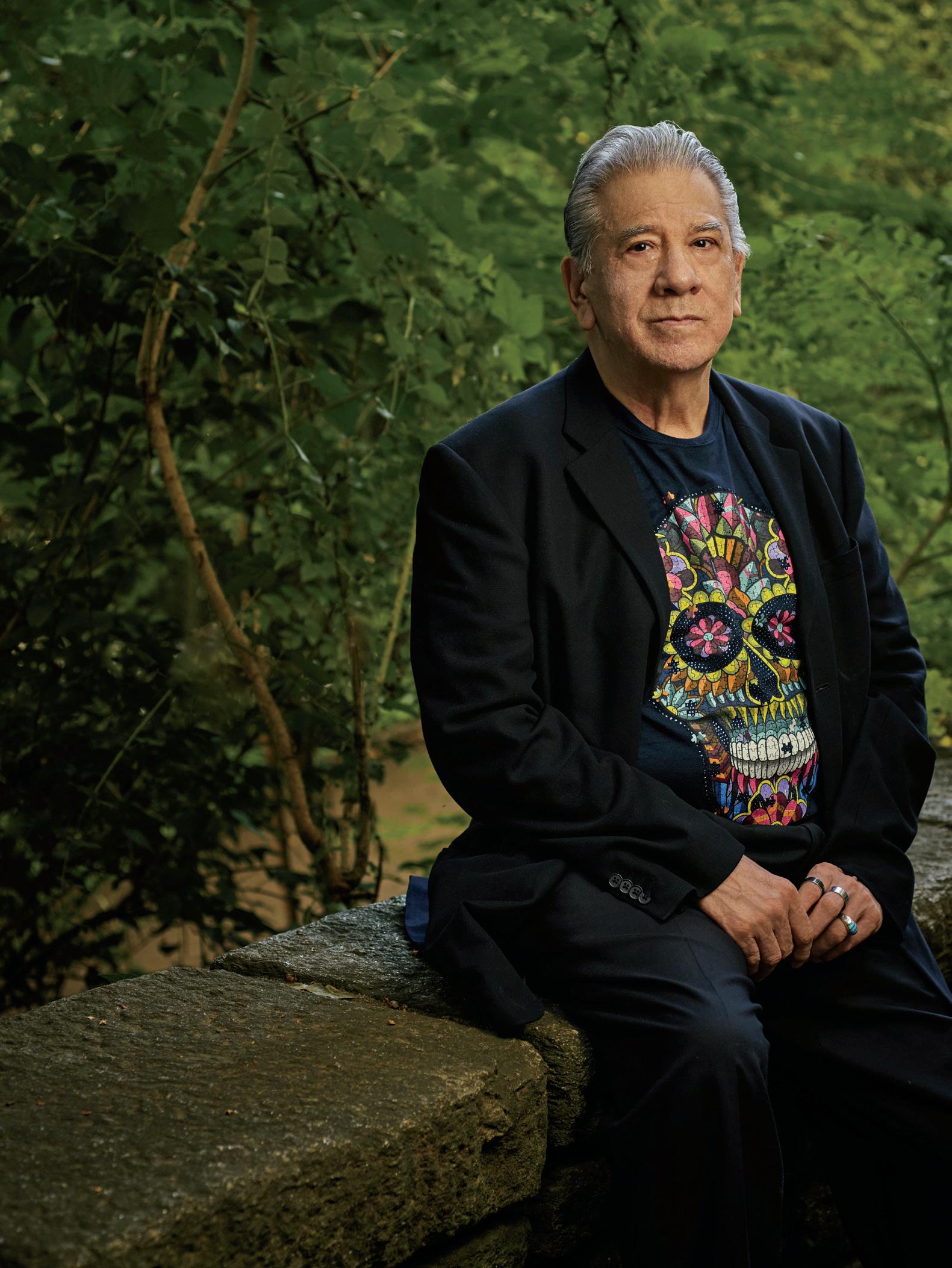
“I worked with the first magazine that was published in Spanish, SIDAAhora, by the People With AIDS Coalition,” Aburto says. “While working there, I was the first one to interview Pedro Zamora before he was on The Real World.” Zamora was lost to AIDS in 1994. (See our Q&A on page 4 for more about Zamora.)
Aburto’s media career spans print and radio. He founded the first publication dedicated to the Mexican community in New York City, Los Mexicanos. He is the executive producer of the weekly radio program La Nueva Alternativa, which has been catering to the Latino LGBTQ community for over 20 years. And for a de cade, he worked as the cultural and lifestyle editor for El Diario La Prensa, the largest and oldest U.S. Spanish-language newspaper.
He was a member of Activistas Latinos Contra el SIDA, the Latino group of ACT UP New York, when he met POZ founder Sean Strub and his partner, Xavier Morales. In 1997, they collaborated to launch POZ en Español.
They decided that the new venture was not going to be just a copy of POZ magazine in Spanish—POZ en Español would feature all original content. “It is one of the greatest works that I have ever done,” he says.
Aburto is working again with Strub, exe cutive director of the Sero Project, which fights HIV criminalization, as director of its Latin America Initiative.
Aburto was devastated when he tested HIV positive in 2014. After a routine checkup, his doctor asked him to come back in. “You know that something is wrong, but I never imagined that it was HIV.” His doctor did an extra test to confirm, but the result was the same. He started treatment immediately.
“It was a long process for me, because mostly I felt guilty. I had a lot of regrets,” he says. Aburto couldn’t believe that despite his knowledge about HIV, he had seroconverted. “After everything—and all the friends I’d lost— and suddenly, I’m HIV positive. At the begin ning, it was so hard for me to say, ‘I have HIV.’”
But Aburto’s message today is one of confi dence and optimism. He says the most impor tant thing to do when you are newly diagnosed is to find someone you can trust to talk to.
“If you don’t look for help, you’re going to be isolated and miserable,” he says. “Even with all the difficulties that we have, we can still have a better life. There is hope and there is help. You just need to find it.” ■
HEROES
BY CHARLES SANCHEZ
CREDIT HERE
48 POZ DECEMBER 2022 poz.com BILL
Gonzalo Aburto is the founding editor of POZ en Español.
WADMAN
Your opinions are always very important to us. We want to know how you read POZ, which topics matter to you and which sections of the magazine and website you enjoy. Please take the following survey and let us know what you think about POZ and POZ.com.


1 How do you read POZ? ❑ In print ❑ Online ❑ Both
❑
9 Do you receive the POZ email newsletter?
❑
10
11
12
13
14
15
16
17
18
19
20
21
22
Facebook ❑ Instagram
❑
23
Yes ❑ No 24 What year were you
Male ❑ Female
__ __ __ __
❑
❑
❑
❑
❑
❑
❑
Straight ❑ Bisexual
American Indian or Alaska Native
this
❑
SURVEY ISTOCK
❑
❑
❑
25
❑
❑
26
❑
❑
27
❑
❑
❑
❑
❑
❑
❑
❑
___________________ 28
2 If you read POZ in print, where do you get your copy of POZ magazine? (If no, skip to question 3.) ❑ AIDS service organization or community organization ❑ Doctor’s office or other health care facility __ __ __ __ __
Pharmacy ❑ Church ❑ School or other educational institution ❑ Government institution ❑ I’m a subscriber. ❑ Other 3 In general, how often do you visit POZ.com? ❑ Once a day
Several times a week
Once a week
Less than once a week 4 How would you rate our overall content?
Excellent ❑ Good
Fair ❑ Poor 5 How long have you been reading POZ? ❑ More than 25 years ❑ 10–15 years
20–25 years ❑ 5–10 years
15–20 years ❑ Less than 5 years 6 Have you ever visited POZ Personals? ❑ Yes ❑ No 7 Have you ever visited the POZ Forums? ❑ Yes ❑ No 8 Do you read the POZ Blogs?
Yes ❑ No
Yes ❑ No On a scale of 1 to 5, rate your interest in the following topics (1 = not very interested, 5 = very interested):
Advocacy and policy 1 2 3 4 5
Aging 1 2 3 4 5
Criminalization 1 2 3 4 5
Cure 1 2 3 4 5
Dating and relationships 1 2 3 4 5
Global issues 1 2 3 4 5
Lifestyle/fitness/nutrition 1 2 3 4 5
Long-term survivors 1 2 3 4 5
Mental health 1 2 3 4 5
Prevention 1 2 3 4 5
Real-people stories 1 2 3 4 5
Treatment and science 1 2 3 4 5
Do you follow POZ on social media?
Twitter
None of these
Have you seen a POZ Health Information poster in your community?
born?
What is your gender?
Transgender ❑ Other
What is your sexual orientation?
Gay/lesbian ❑ Other
What is your ethnicity? (Check all that apply.)
Arab or Middle Eastern
Asian
Black or African American
Hispanic or Latino
Native Hawaiian or other Pacific Islander
White
Other (Please specify.):
What is your ZIP code?
Scan
QR code with your
to
this survey
READER SURVEY
smartphone
take
at poz.com/survey. Or email a photo of your completed survey to website@poz.com
Everyone deserves compassionate care.
Avita is committed to reducing health inequities by offering compassionate LGBTQ+, HIV, PrEP, and sexual wellness care.
Proud supporter of LGBTQ+ community
Culturally competent, gender-affirming care
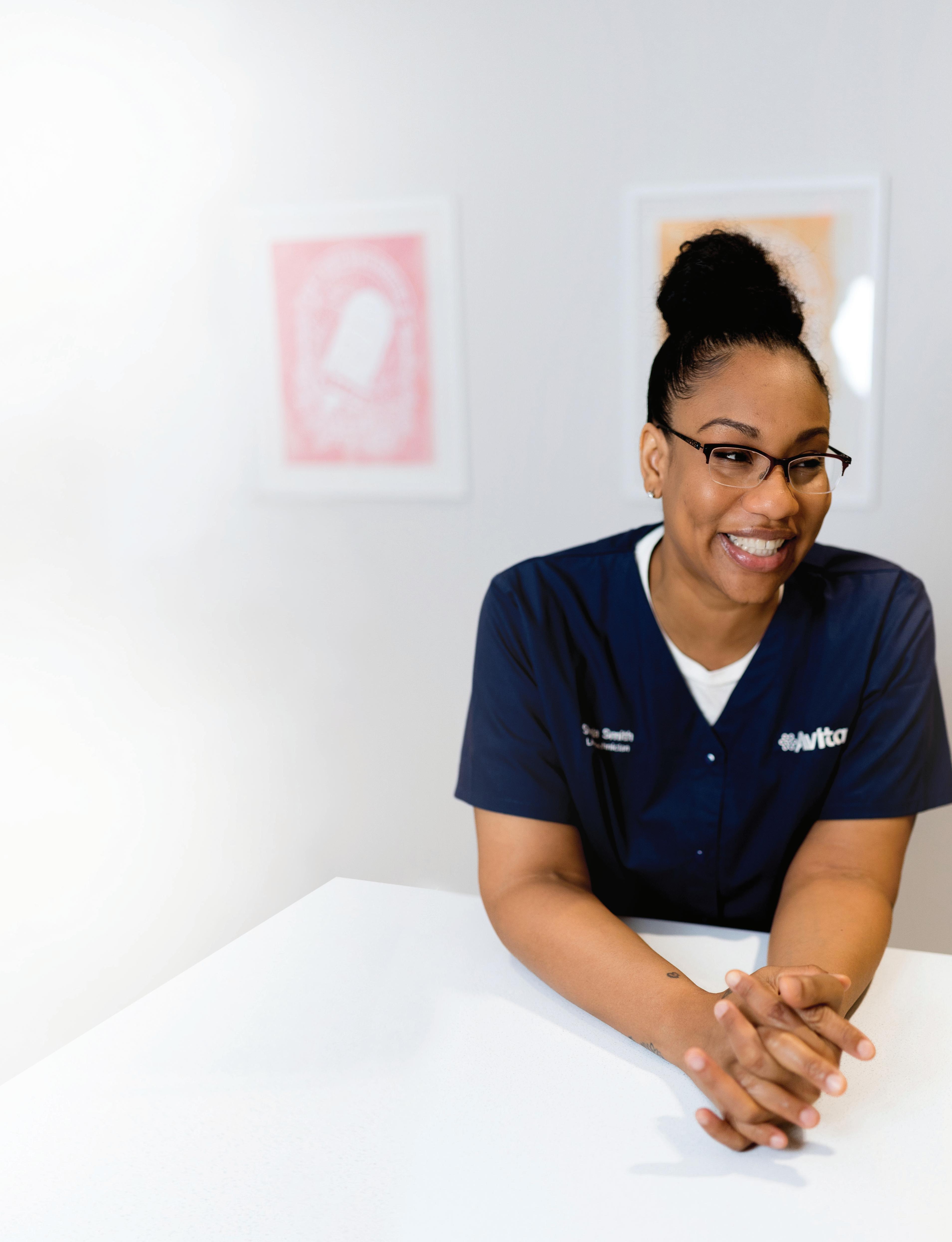
Free delivery of HIV and PrEP meds
Financial assistance support
OneClick Refill by text
Scan here to learn more and transfer your prescriptions to Avita today.


























































































































































































































 JEAN HERNANDEZ Birmingham, Alabama
JEAN HERNANDEZ Birmingham, Alabama













 GABRIEL SAN EMETERIO Brooklyn, New York
GABRIEL SAN EMETERIO Brooklyn, New York


 LI ANN ESTRELLA SÁNCHEZ Atlanta, Georgia
LI ANN ESTRELLA SÁNCHEZ Atlanta, Georgia











